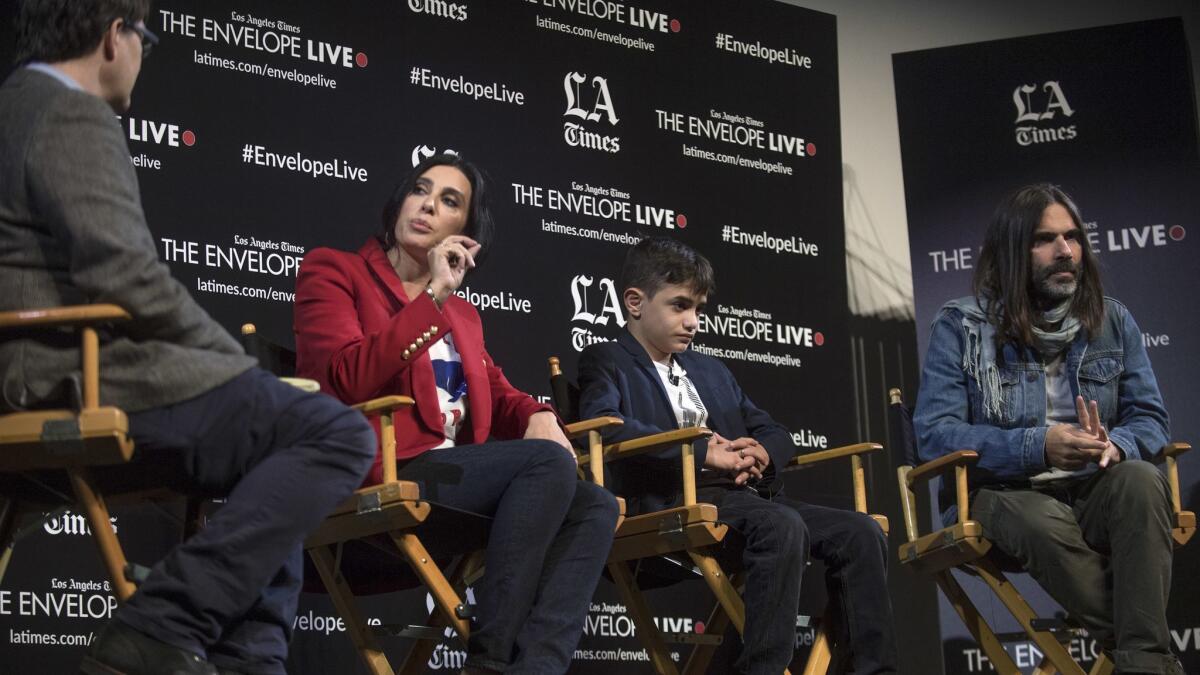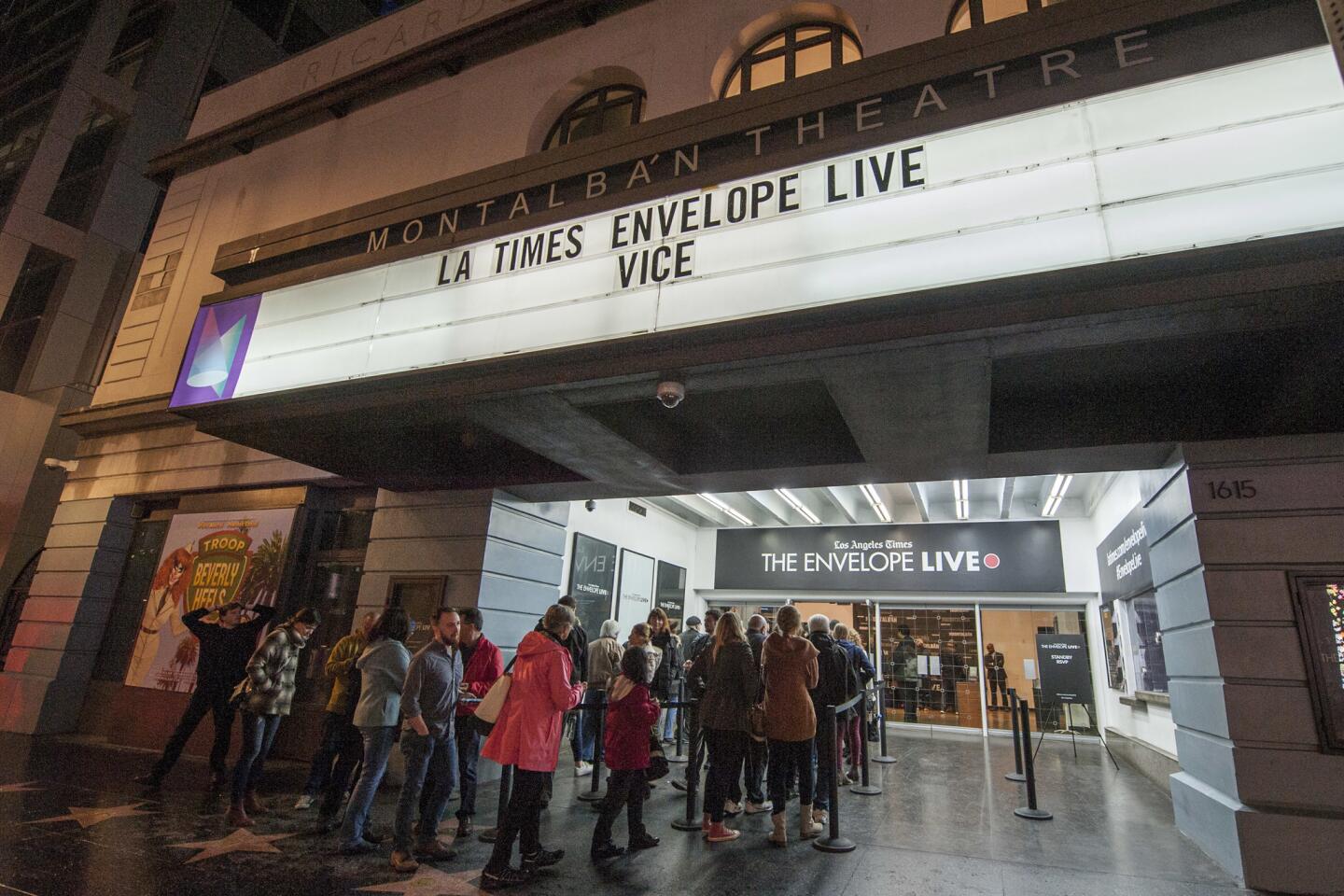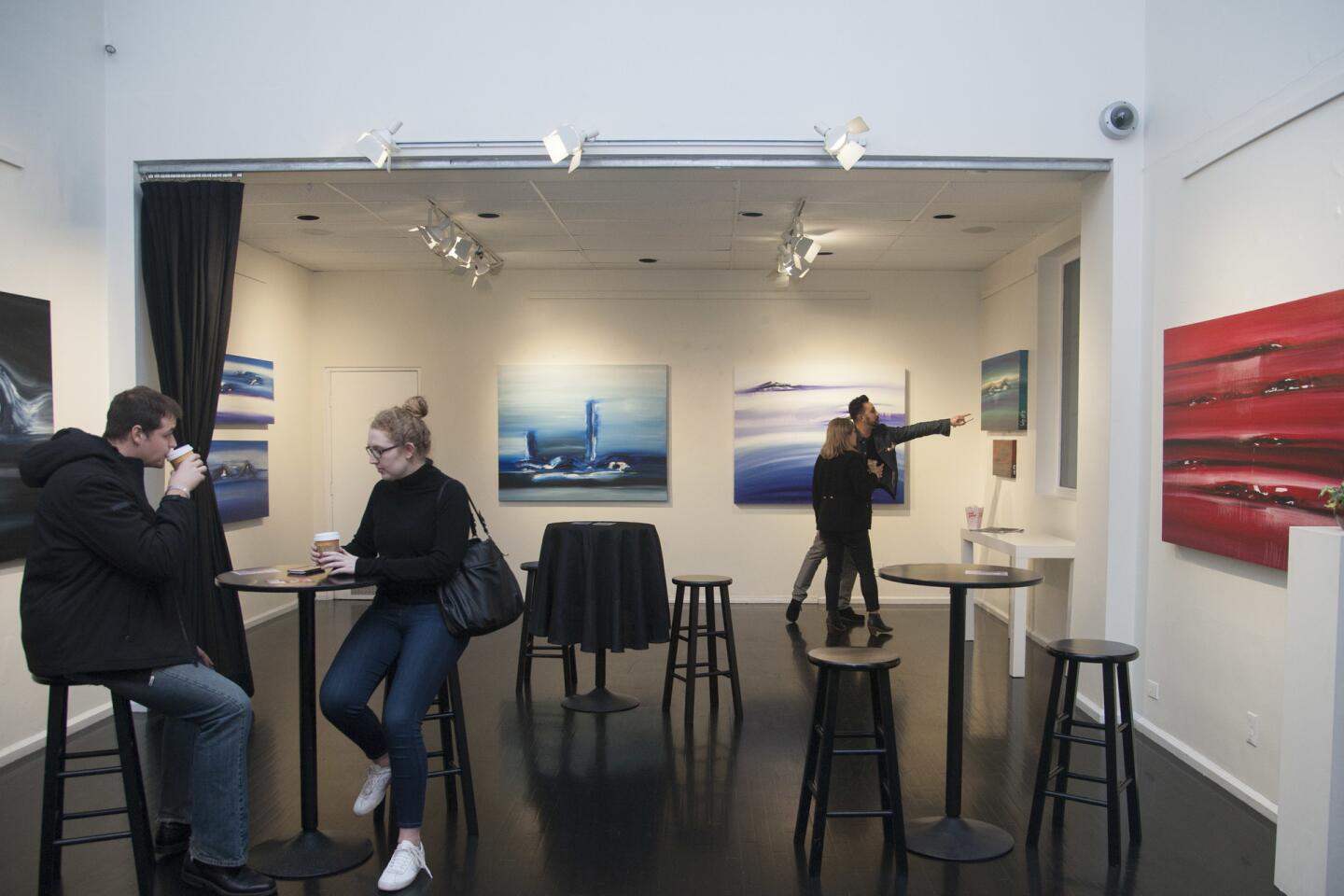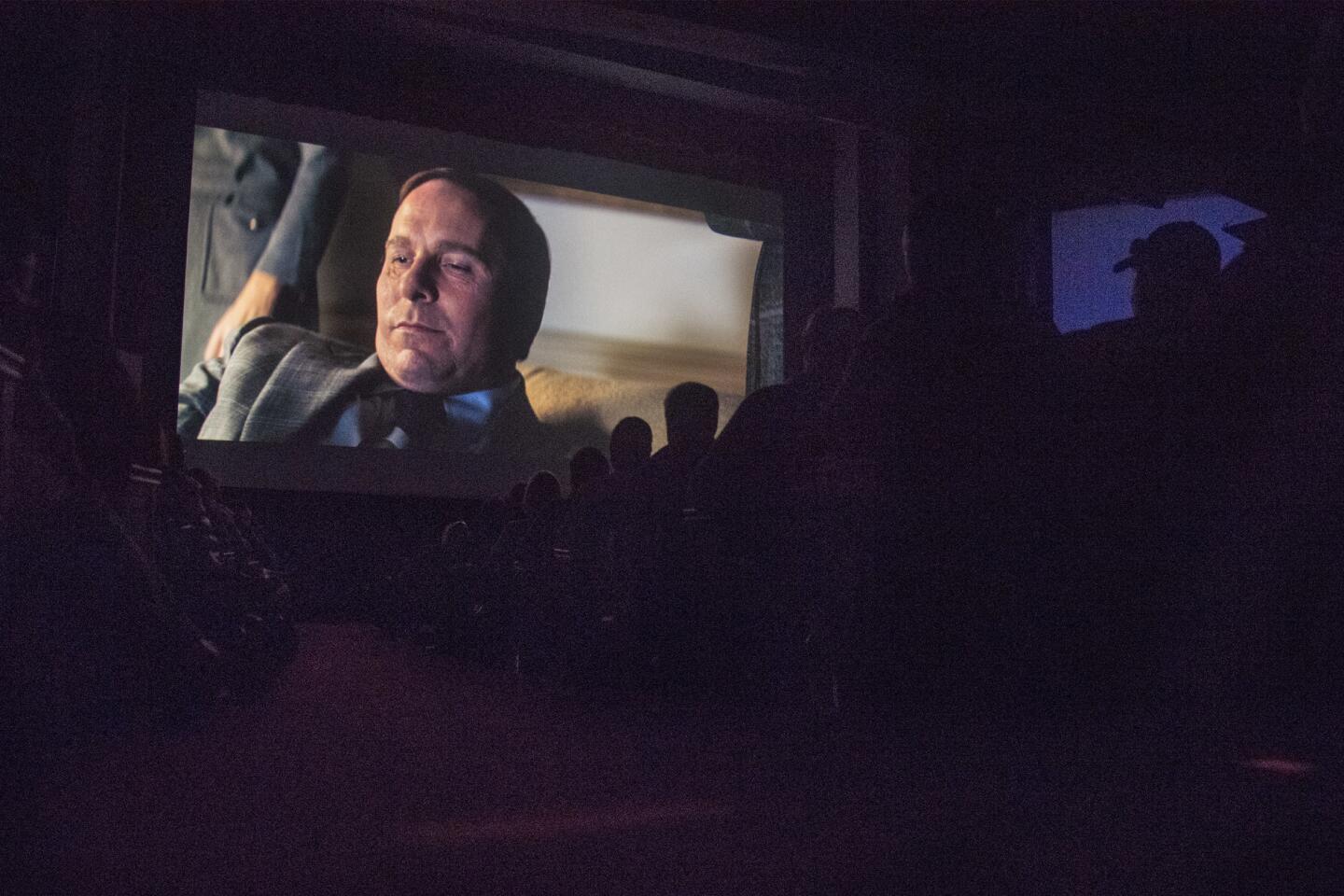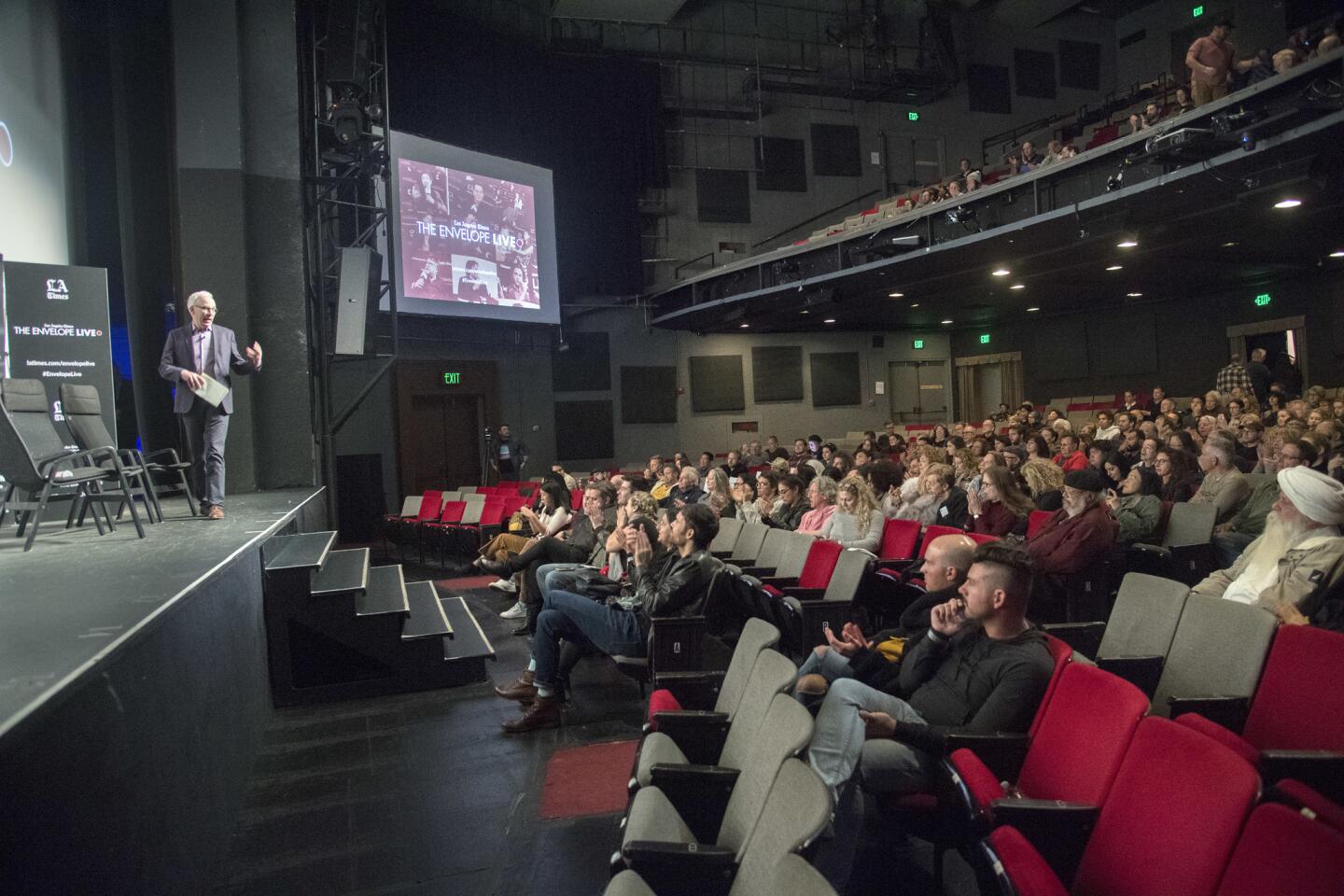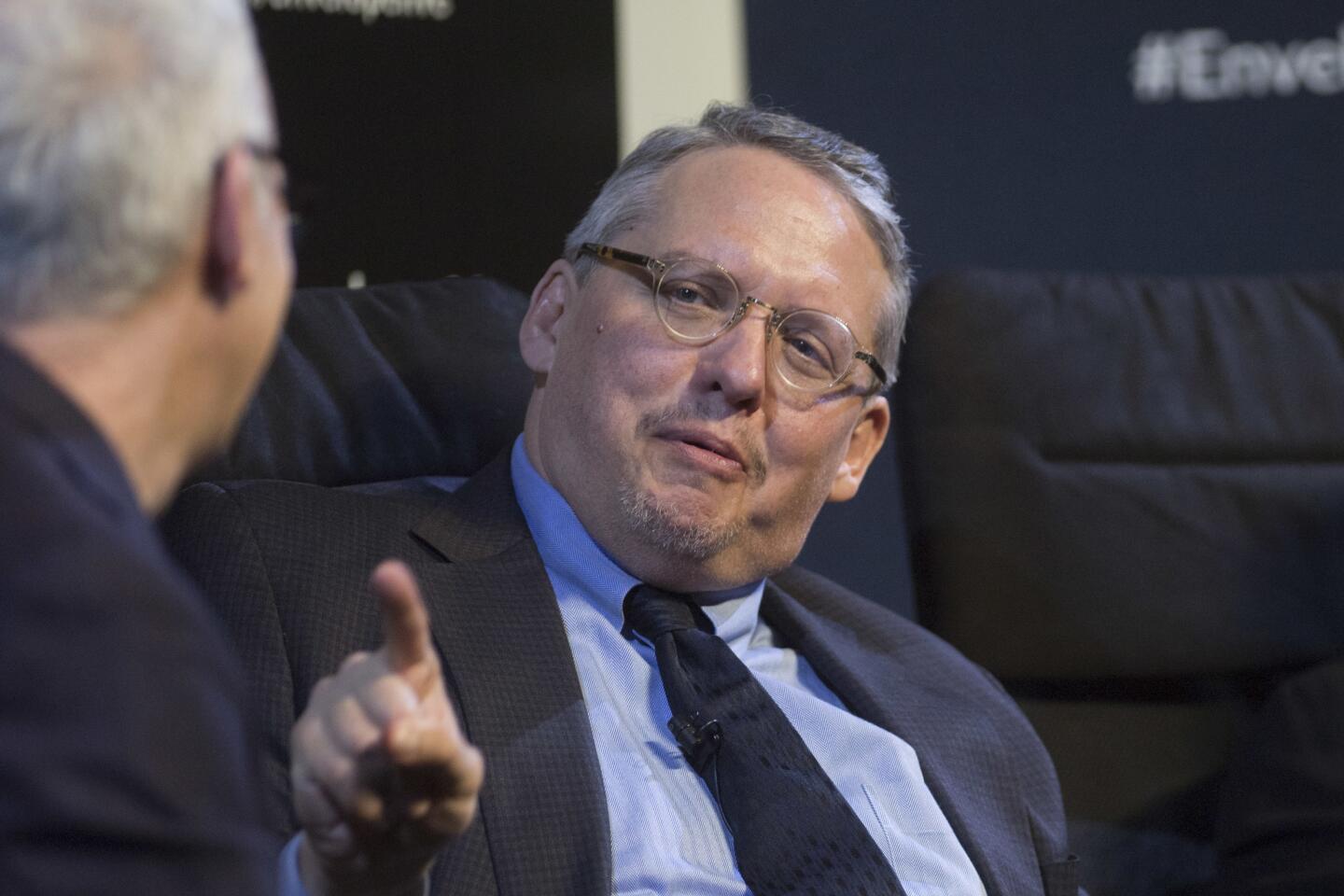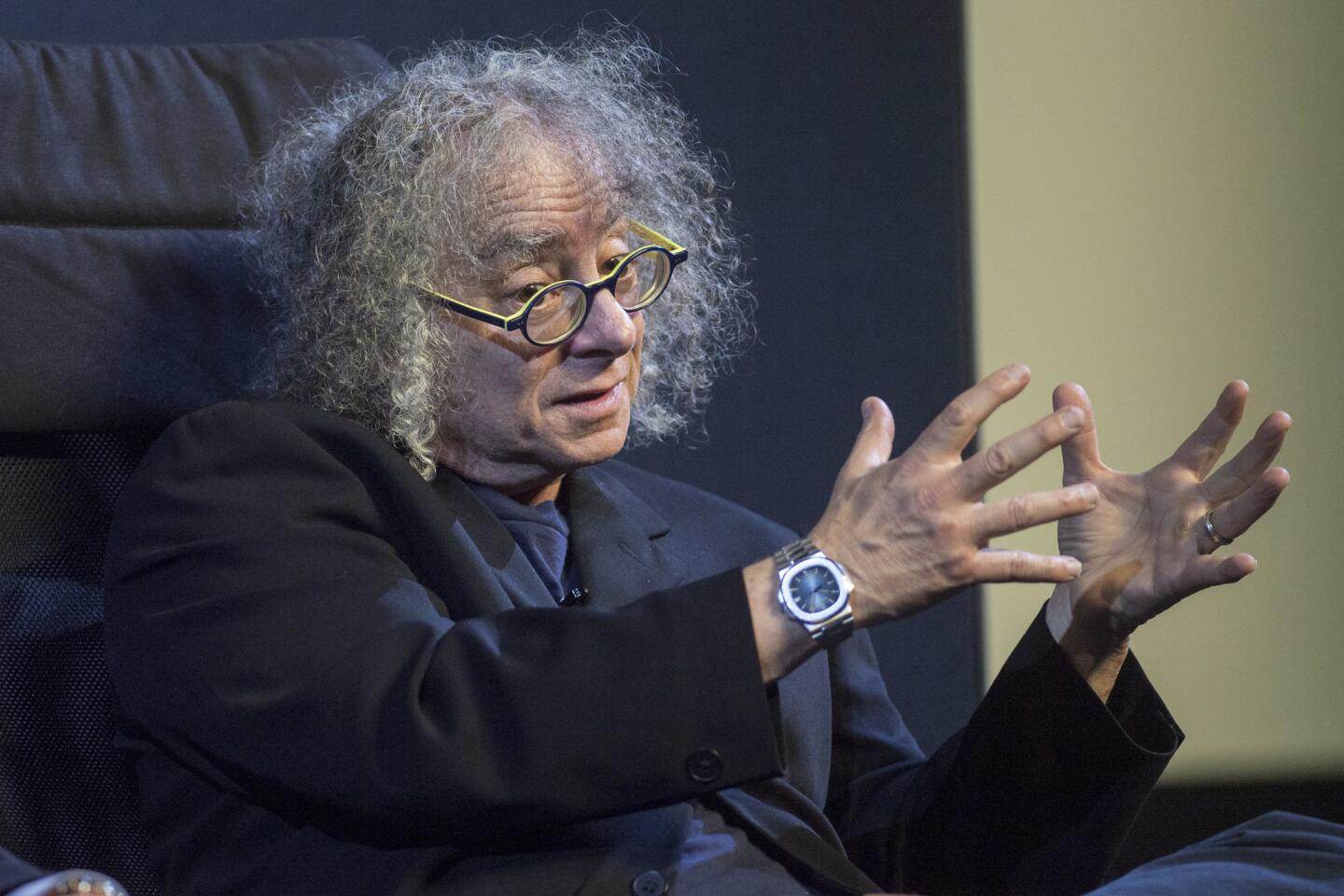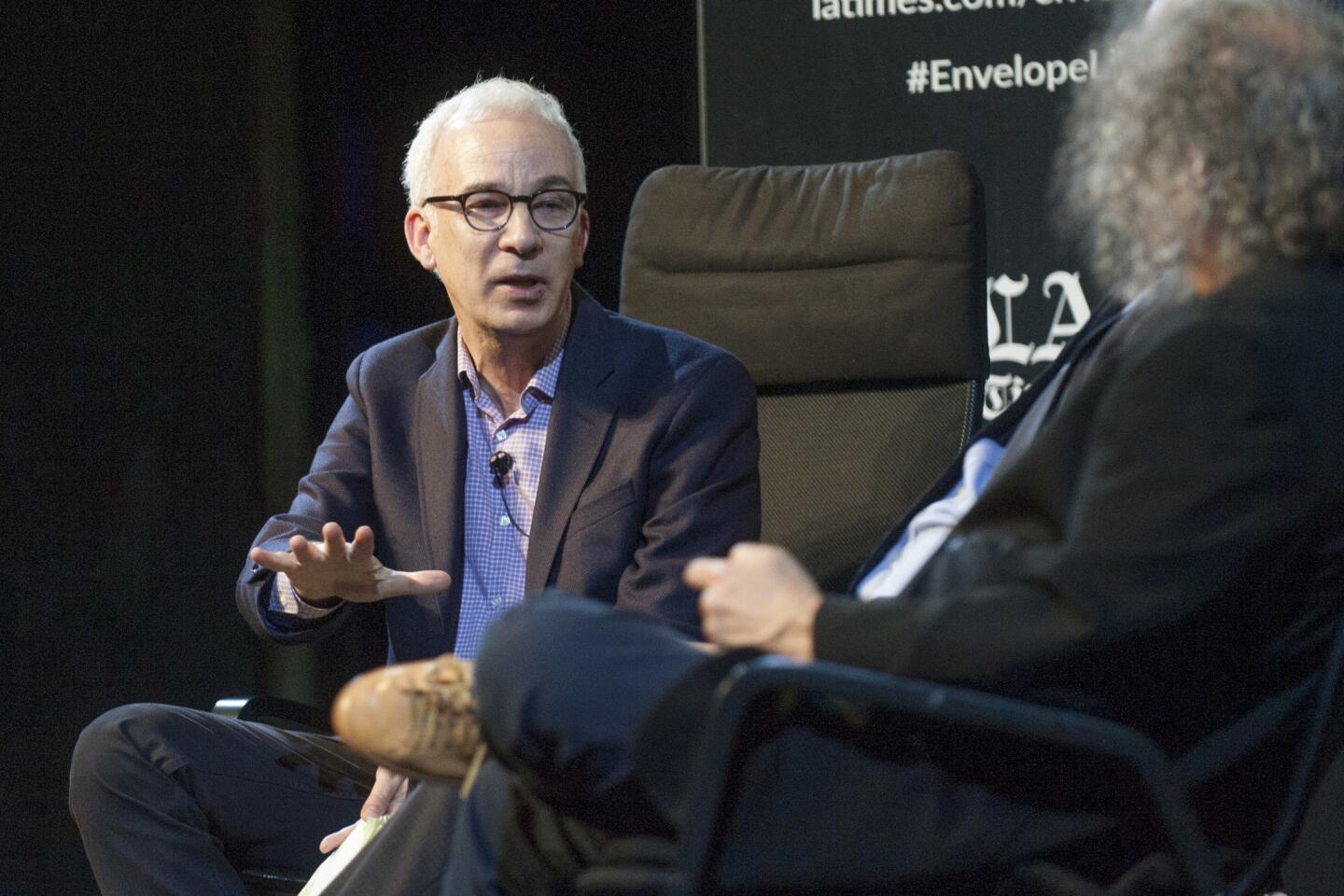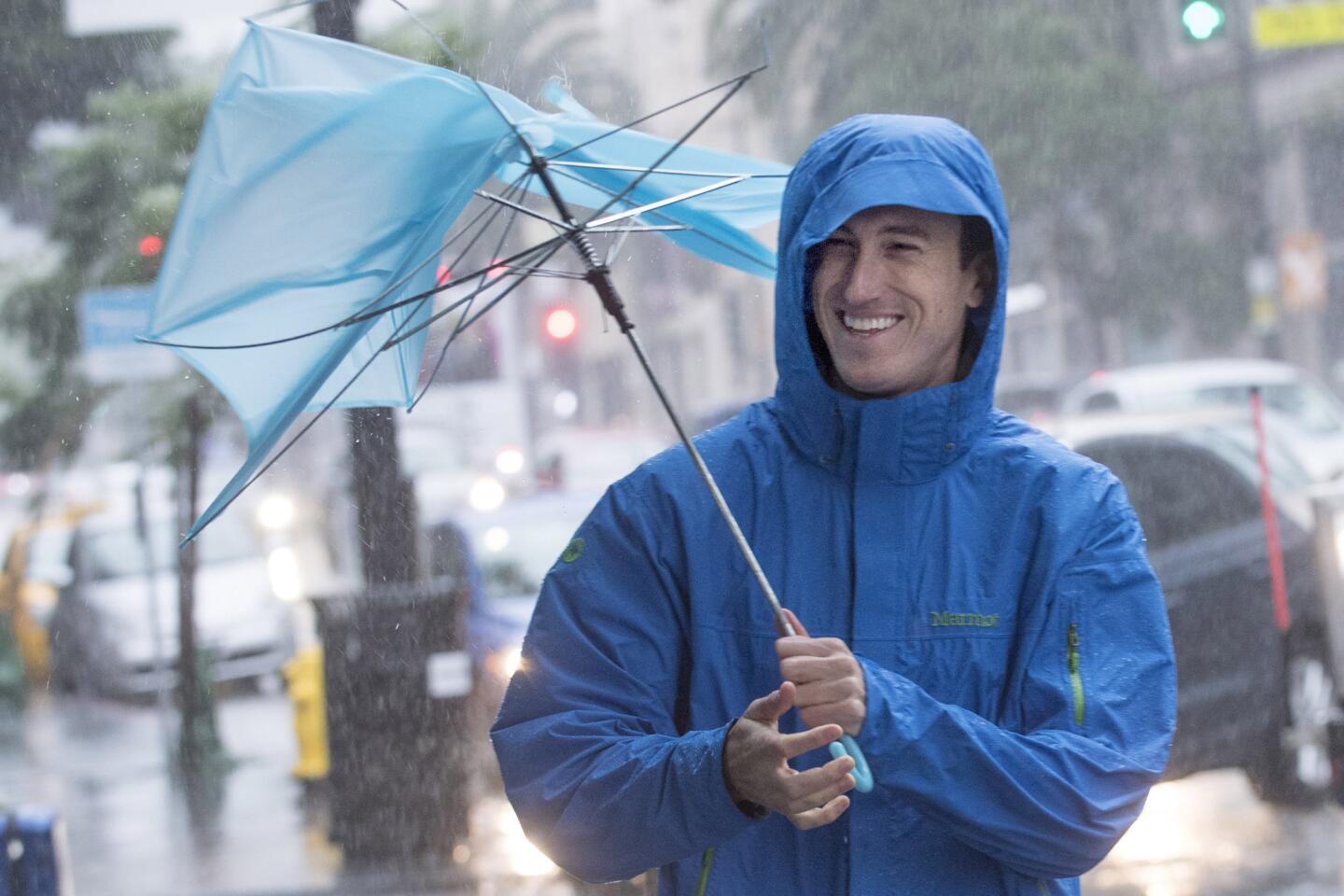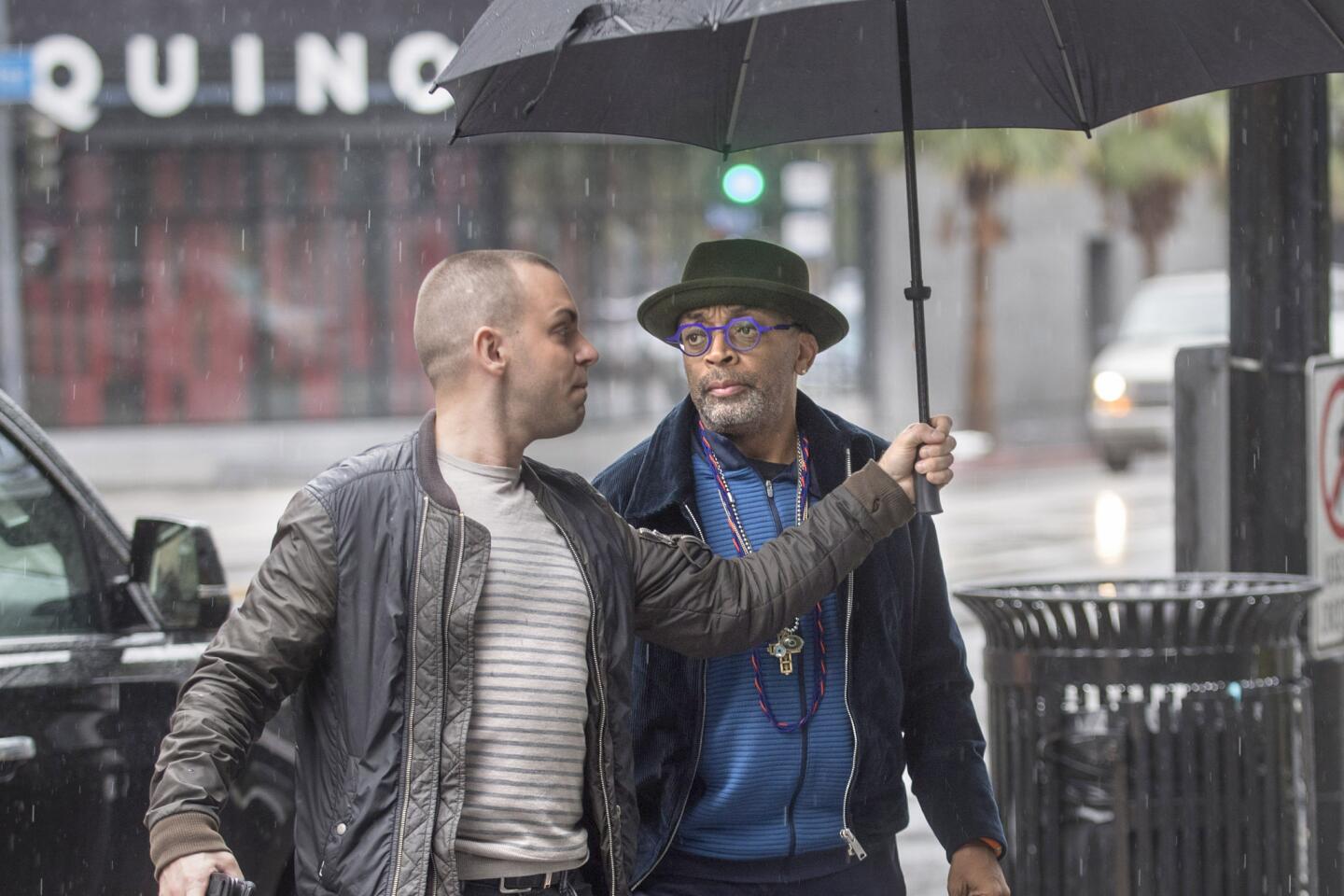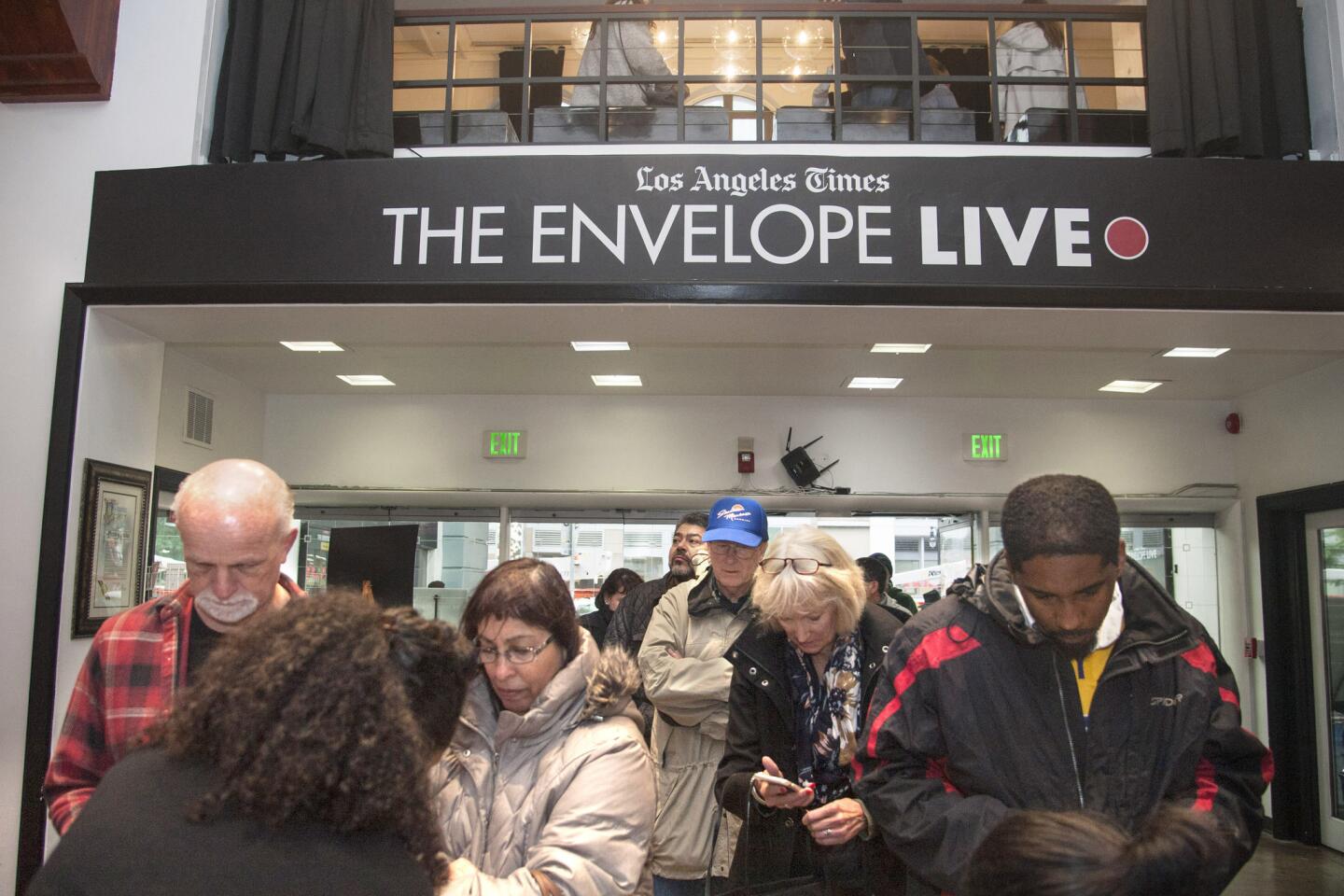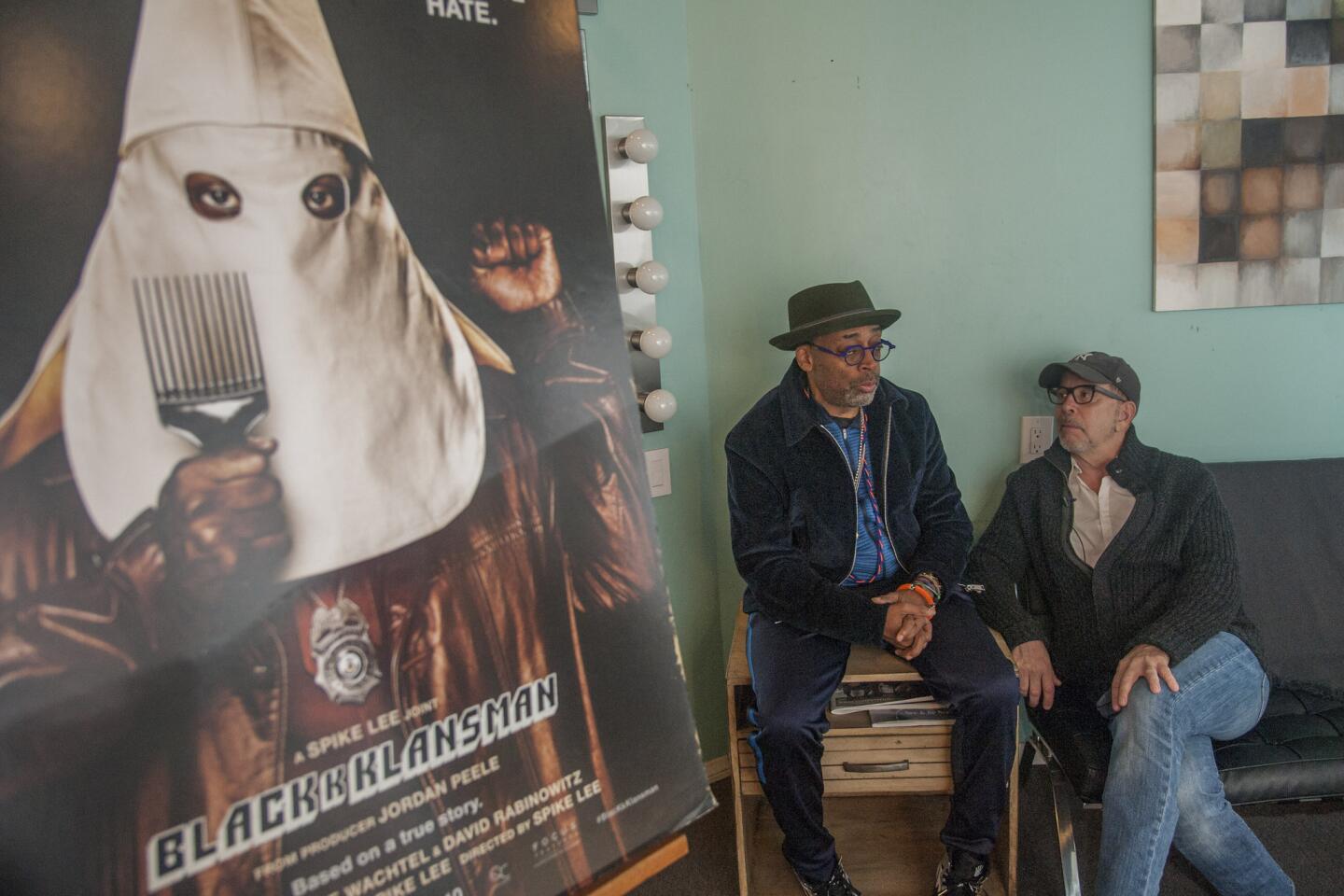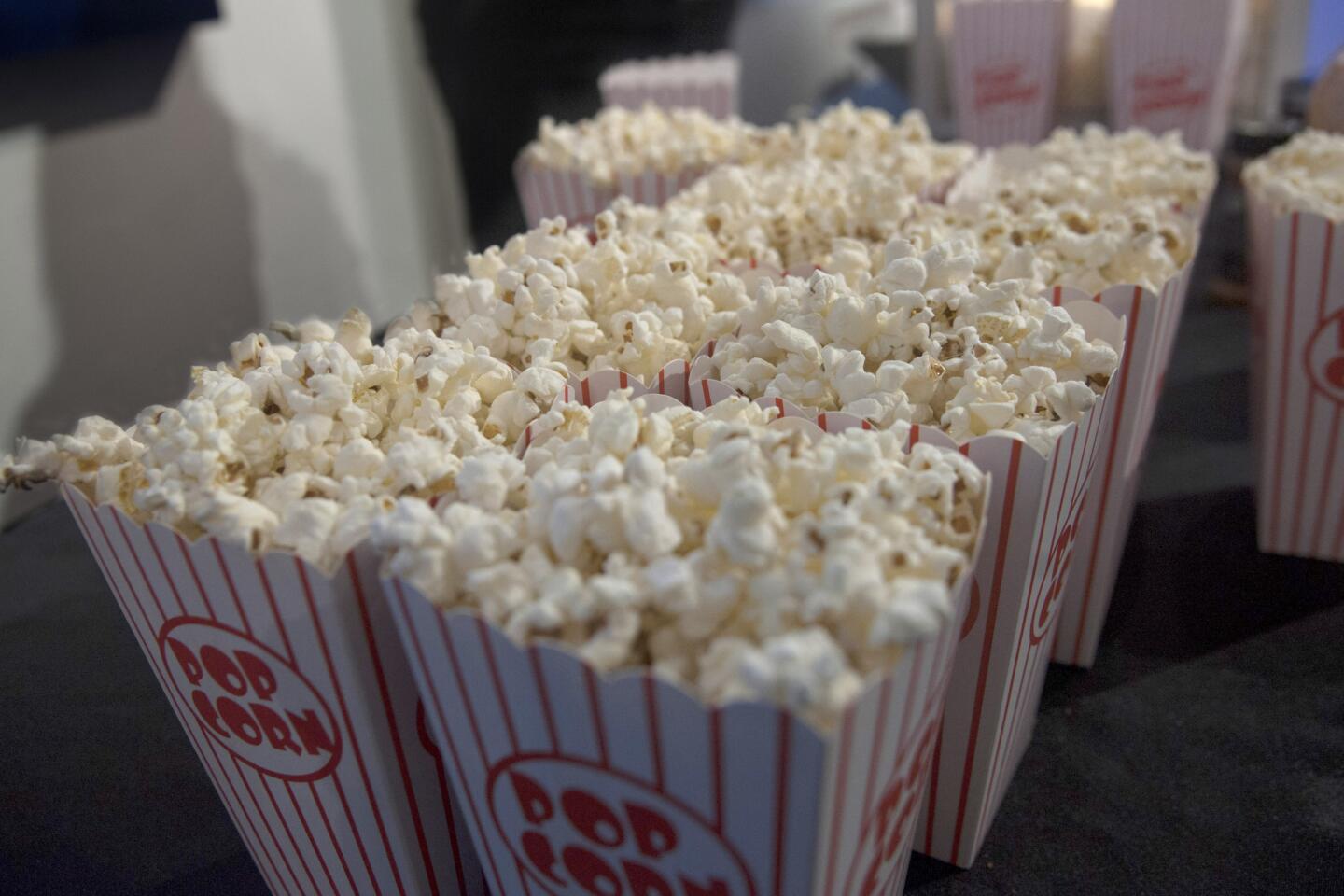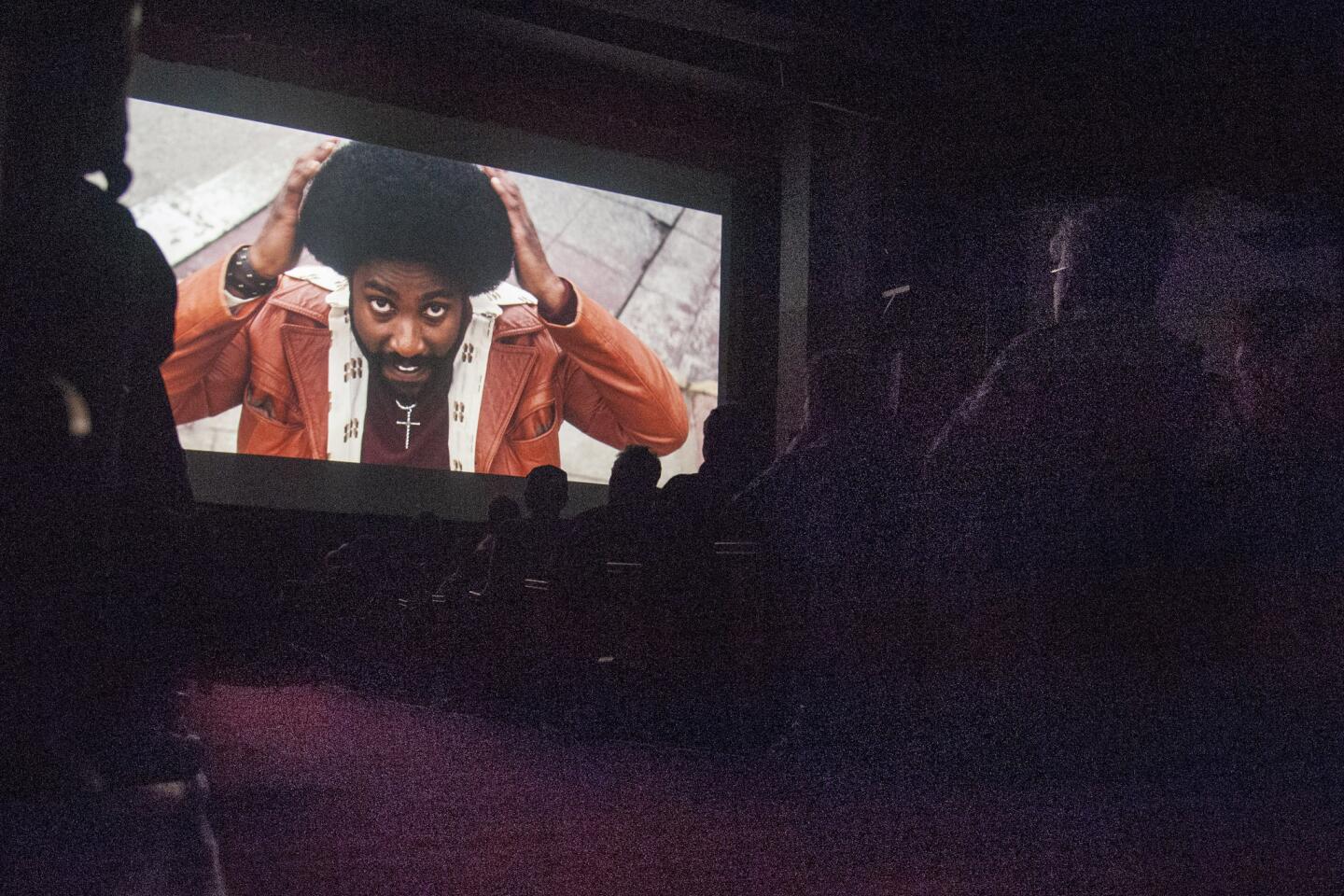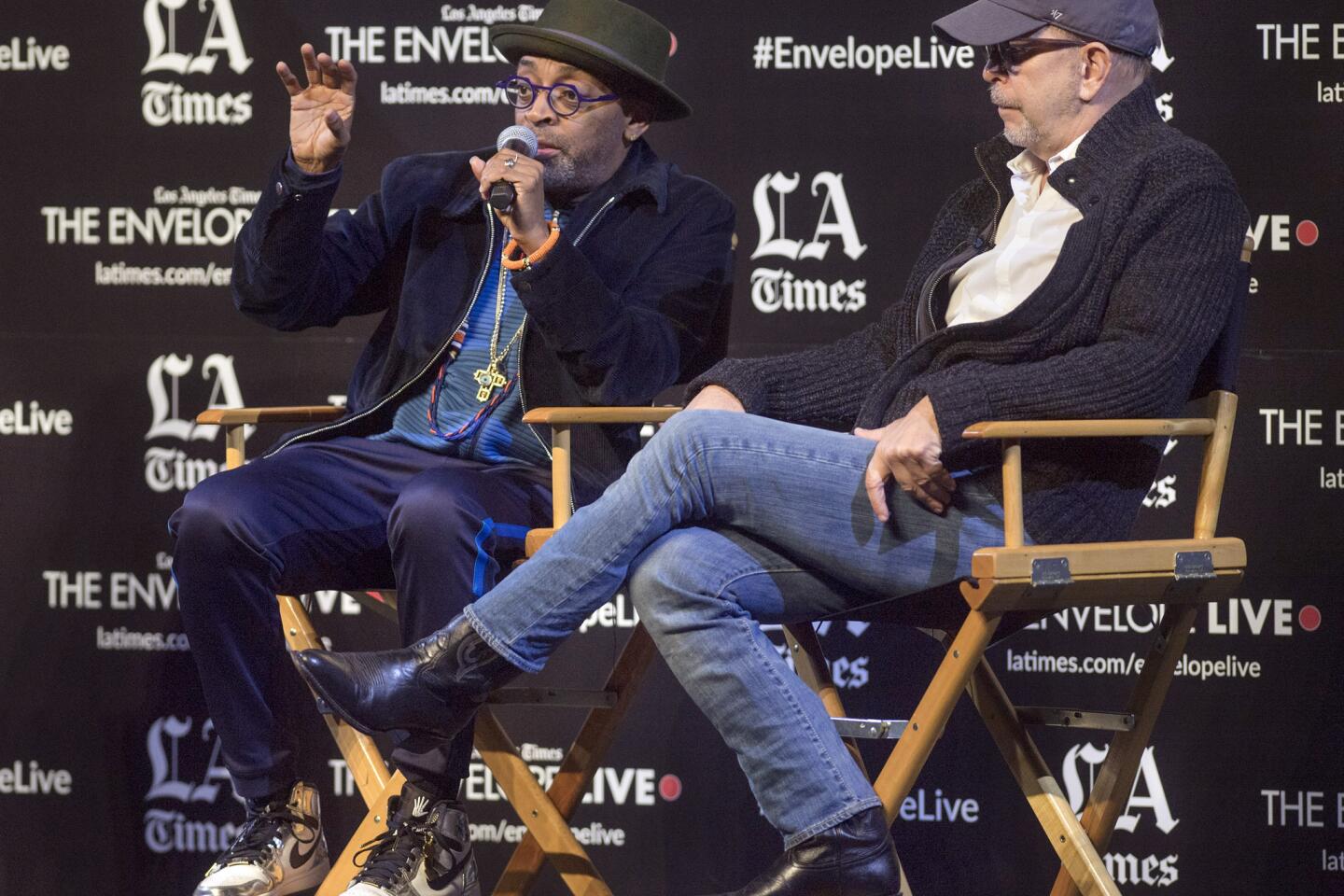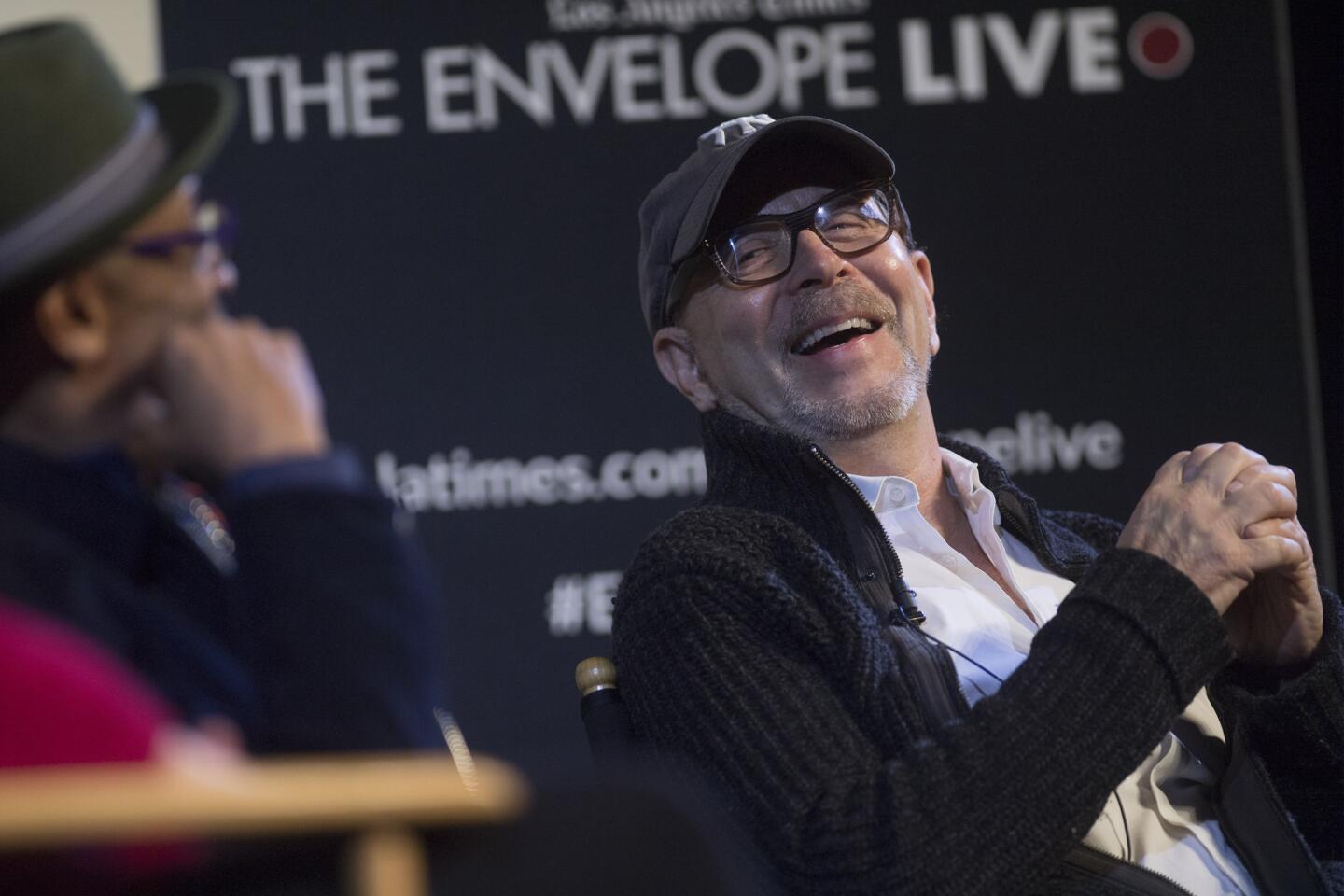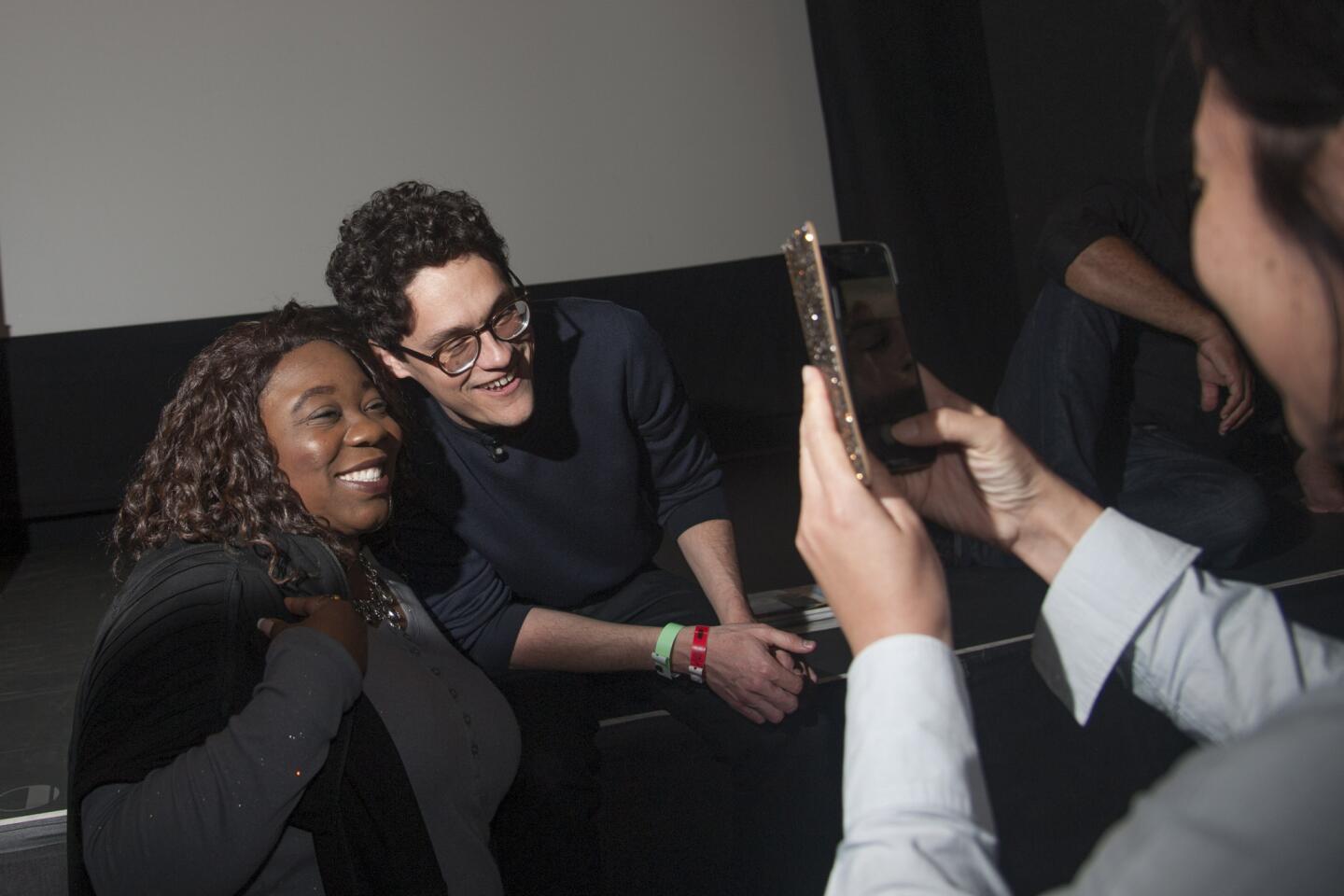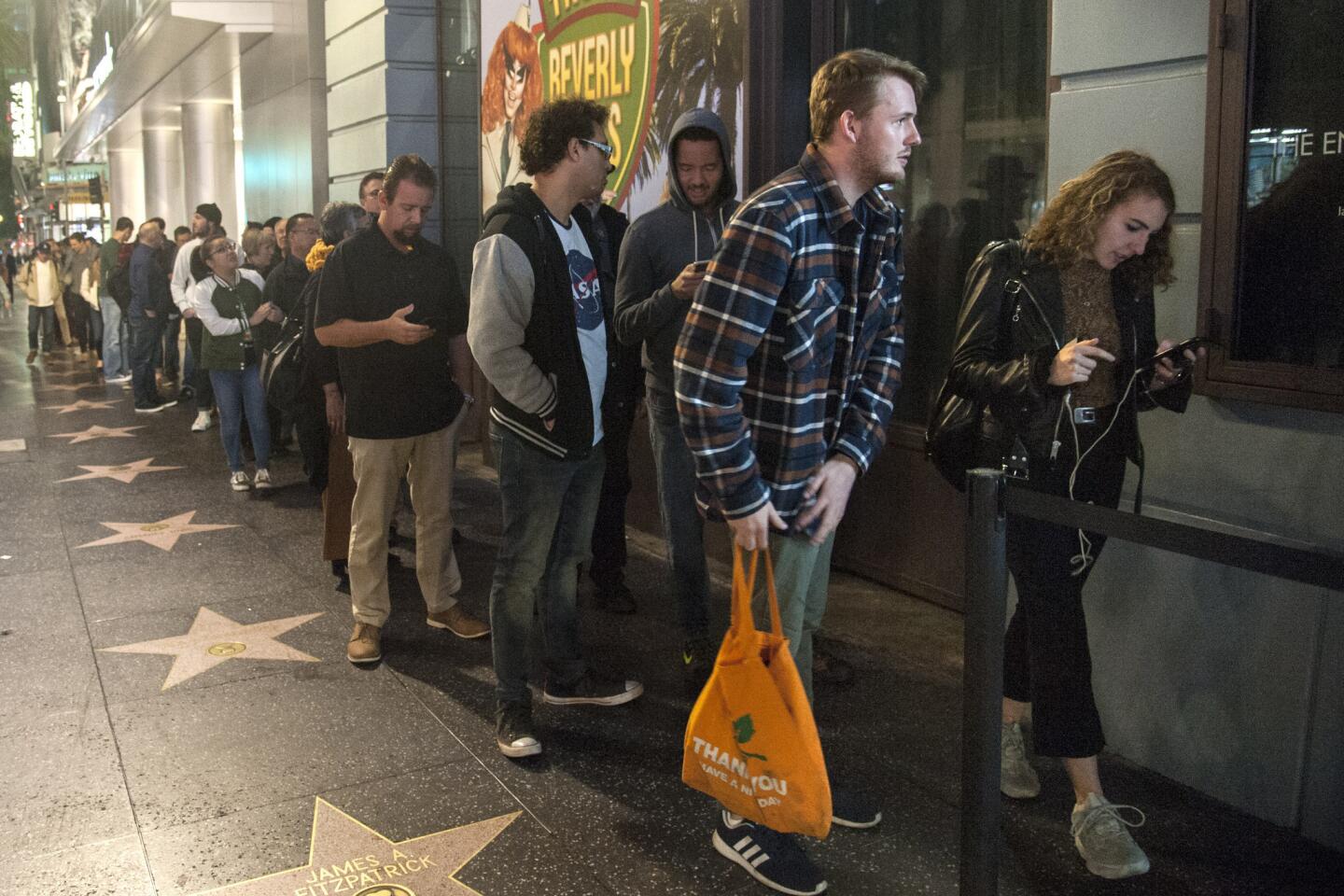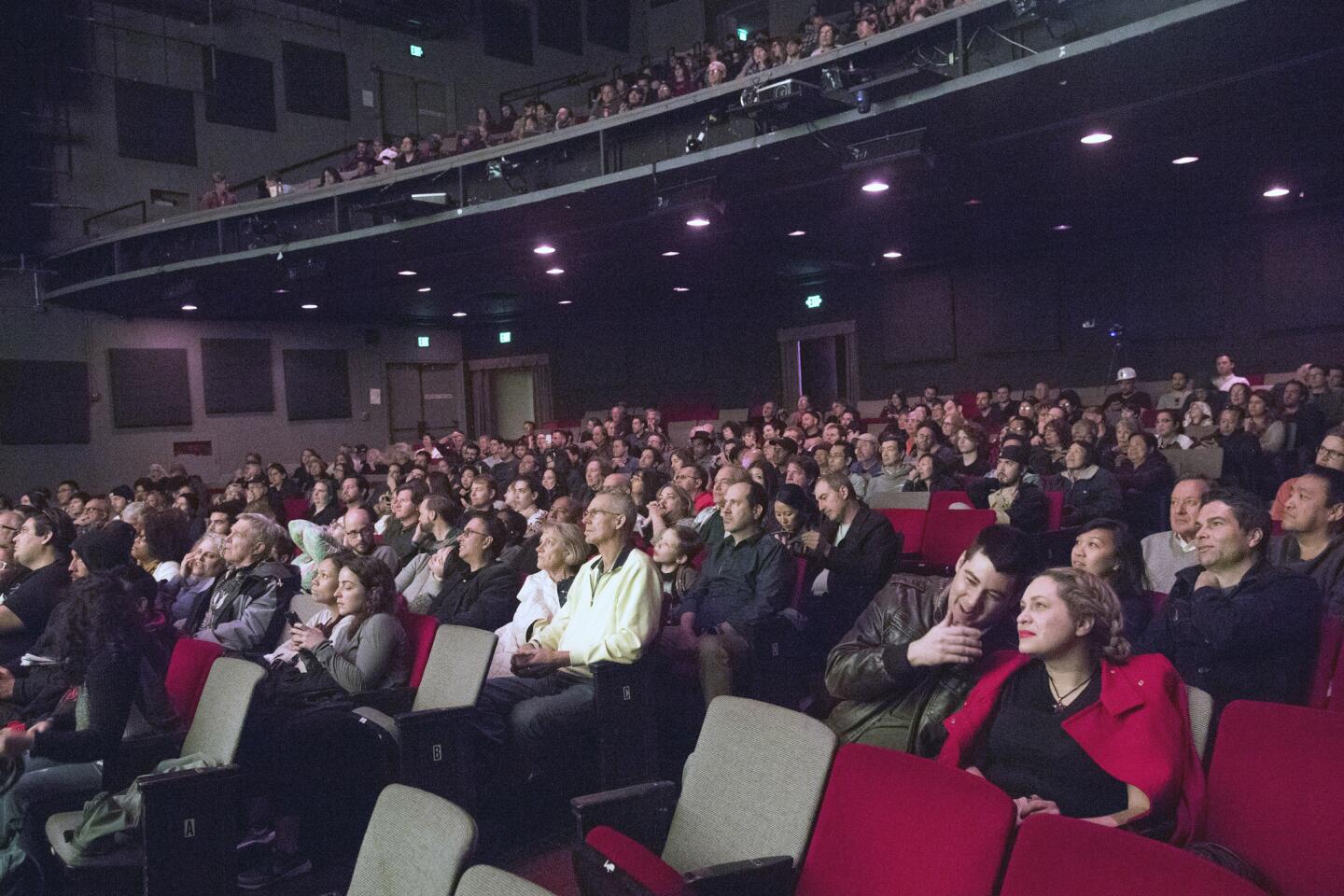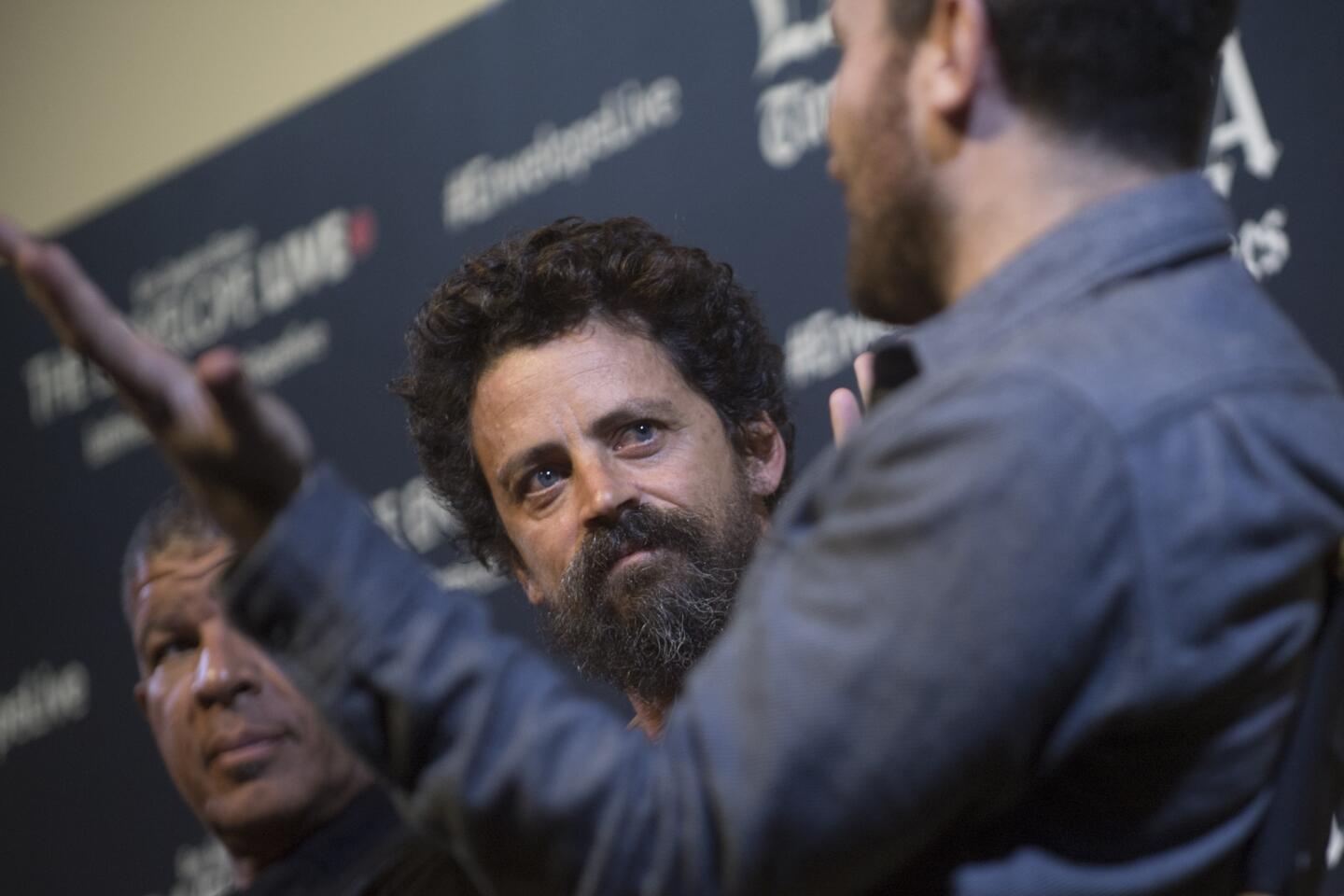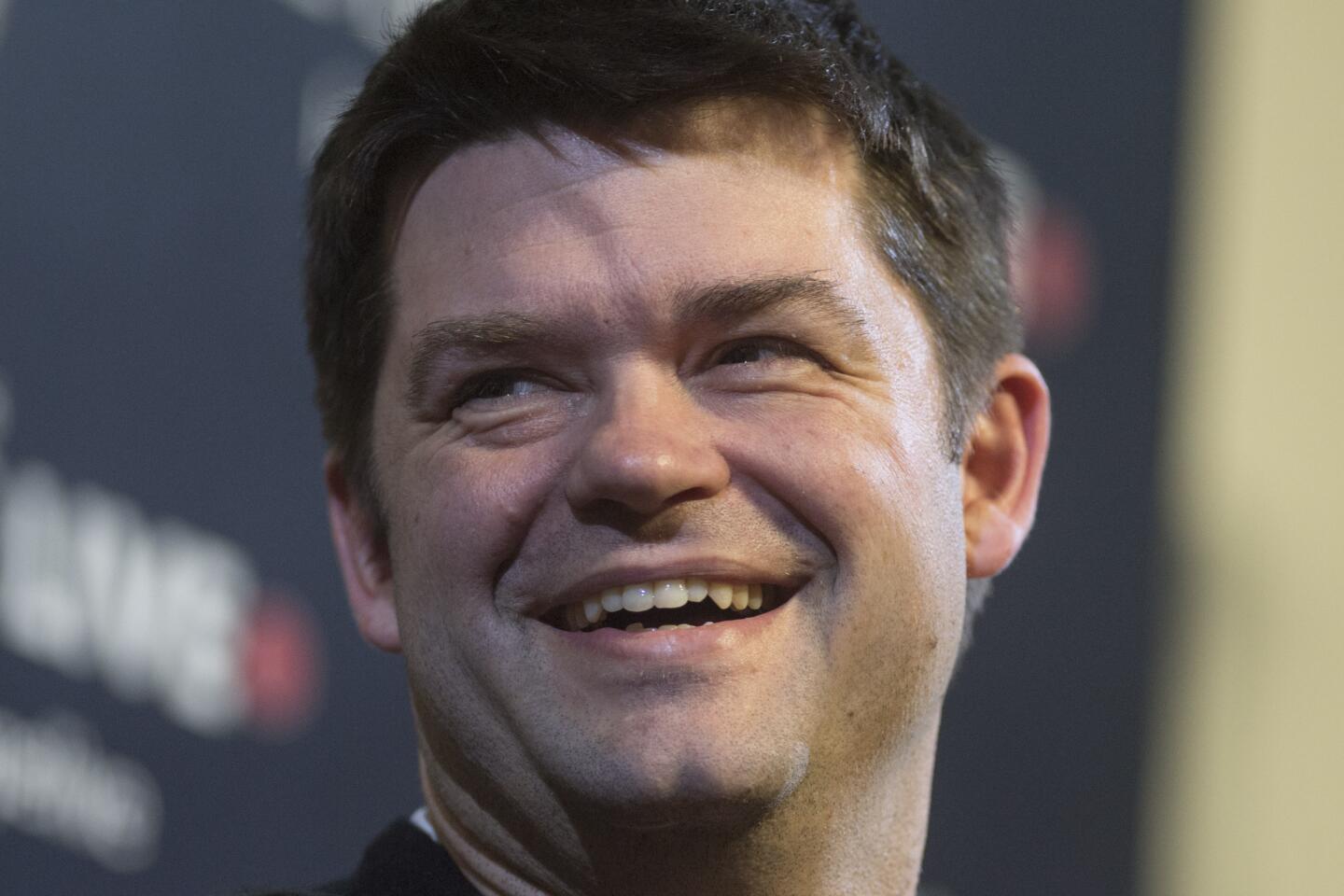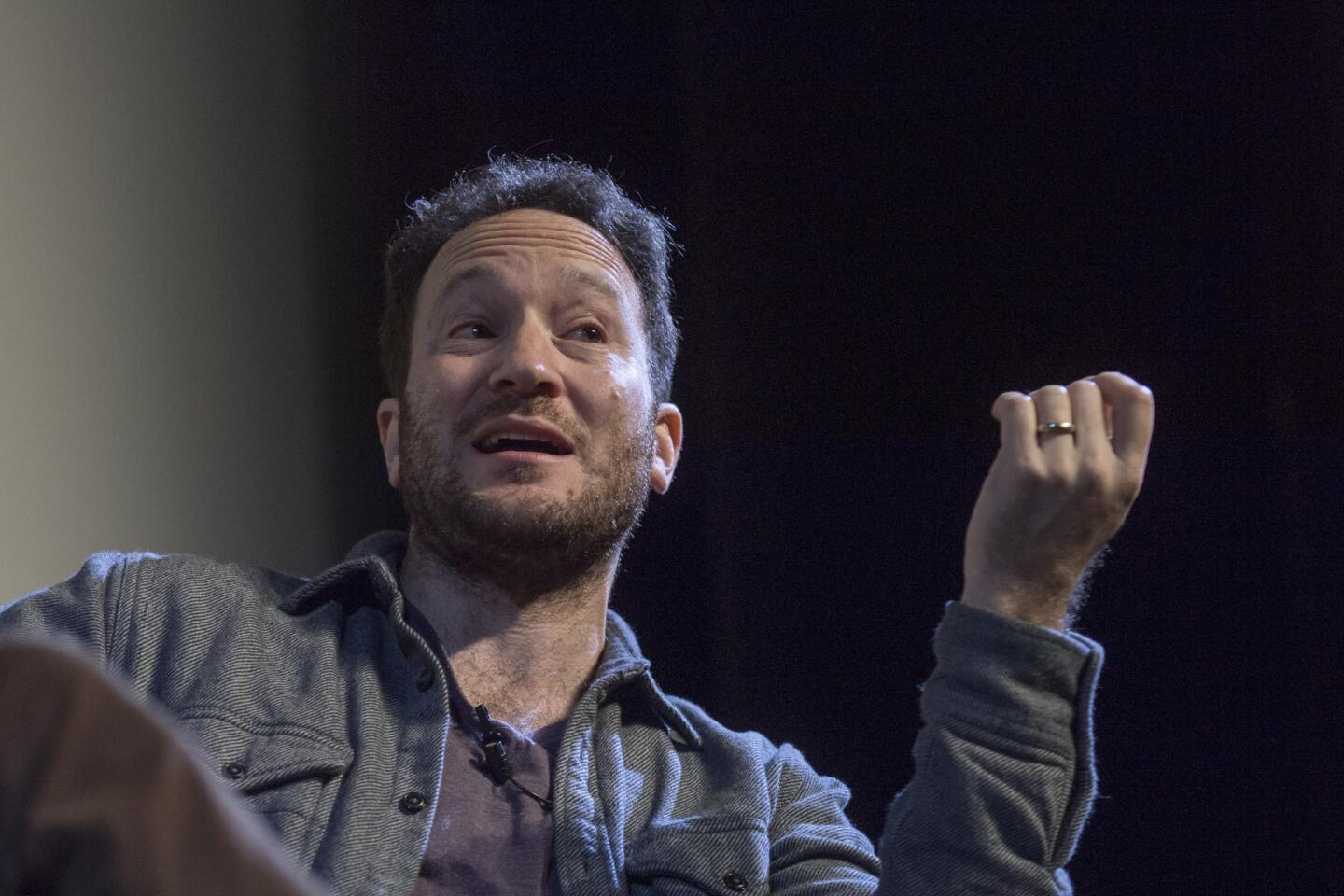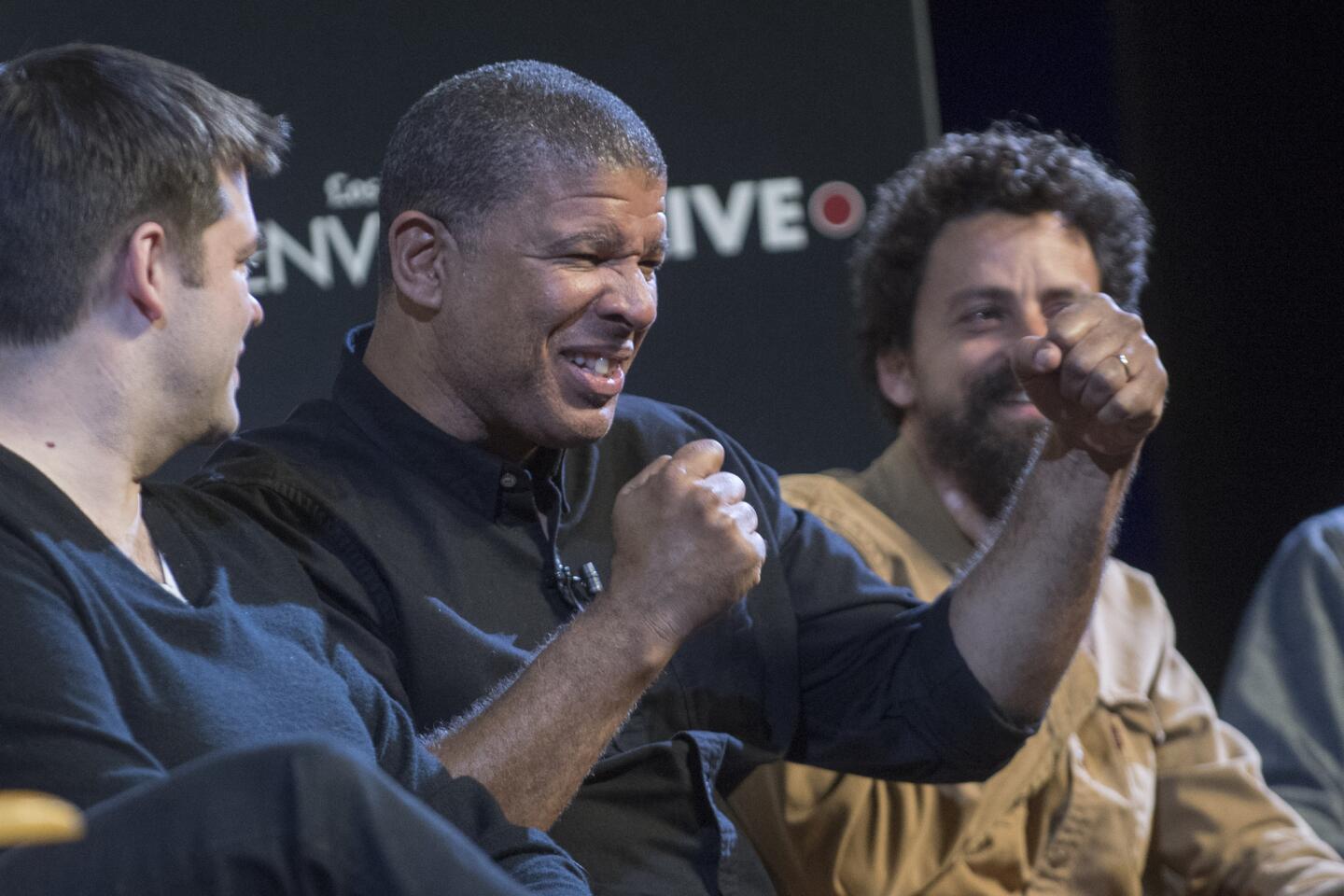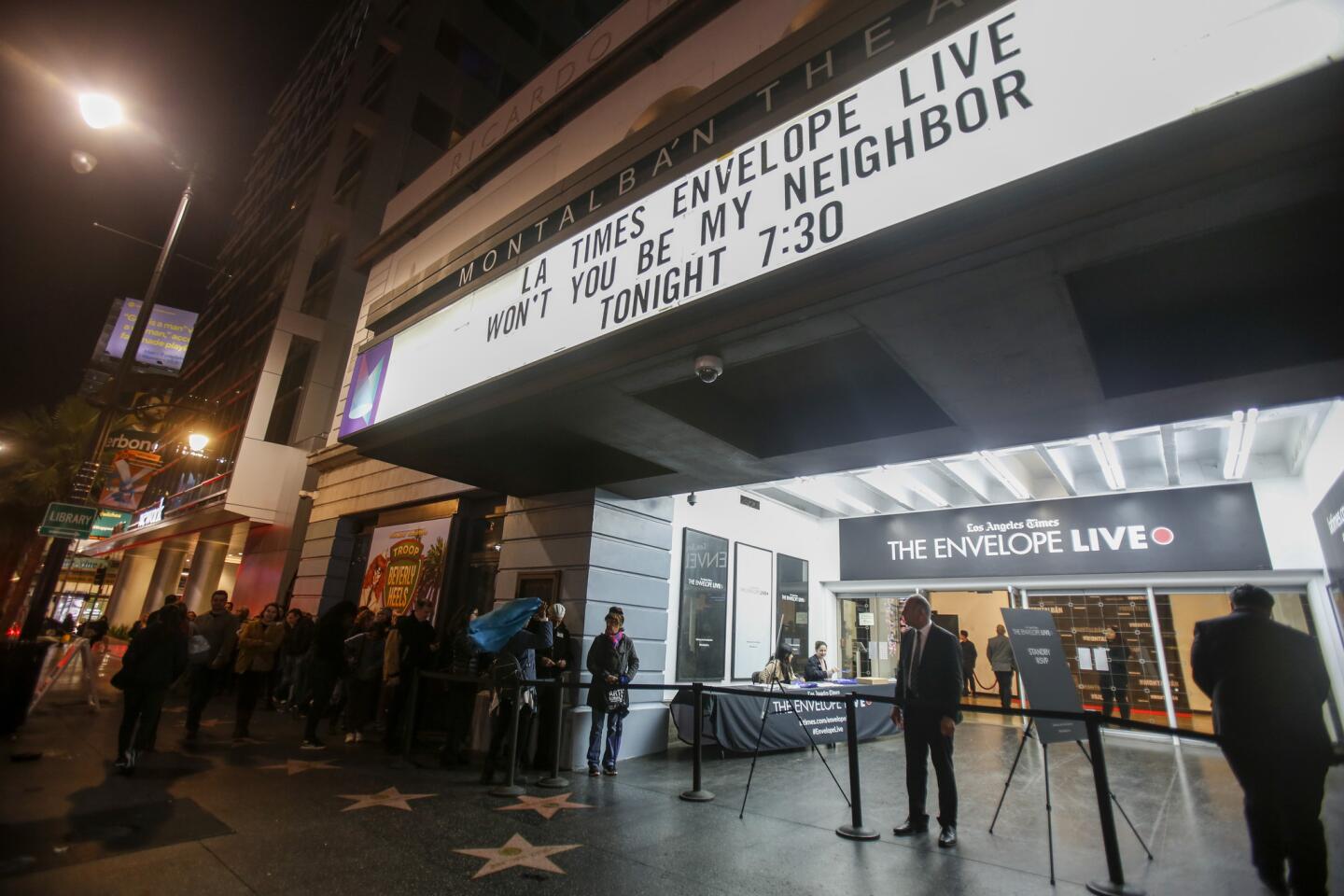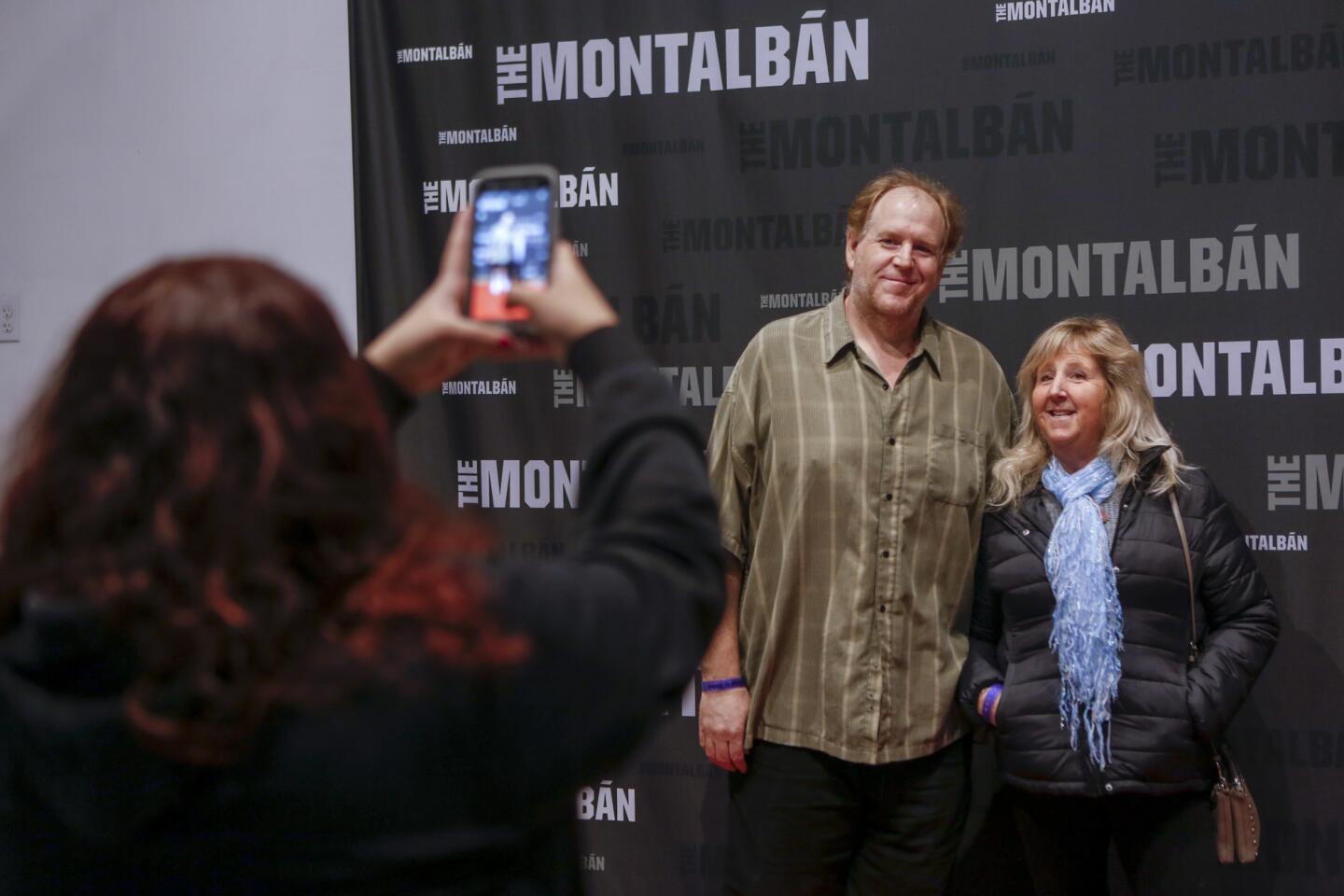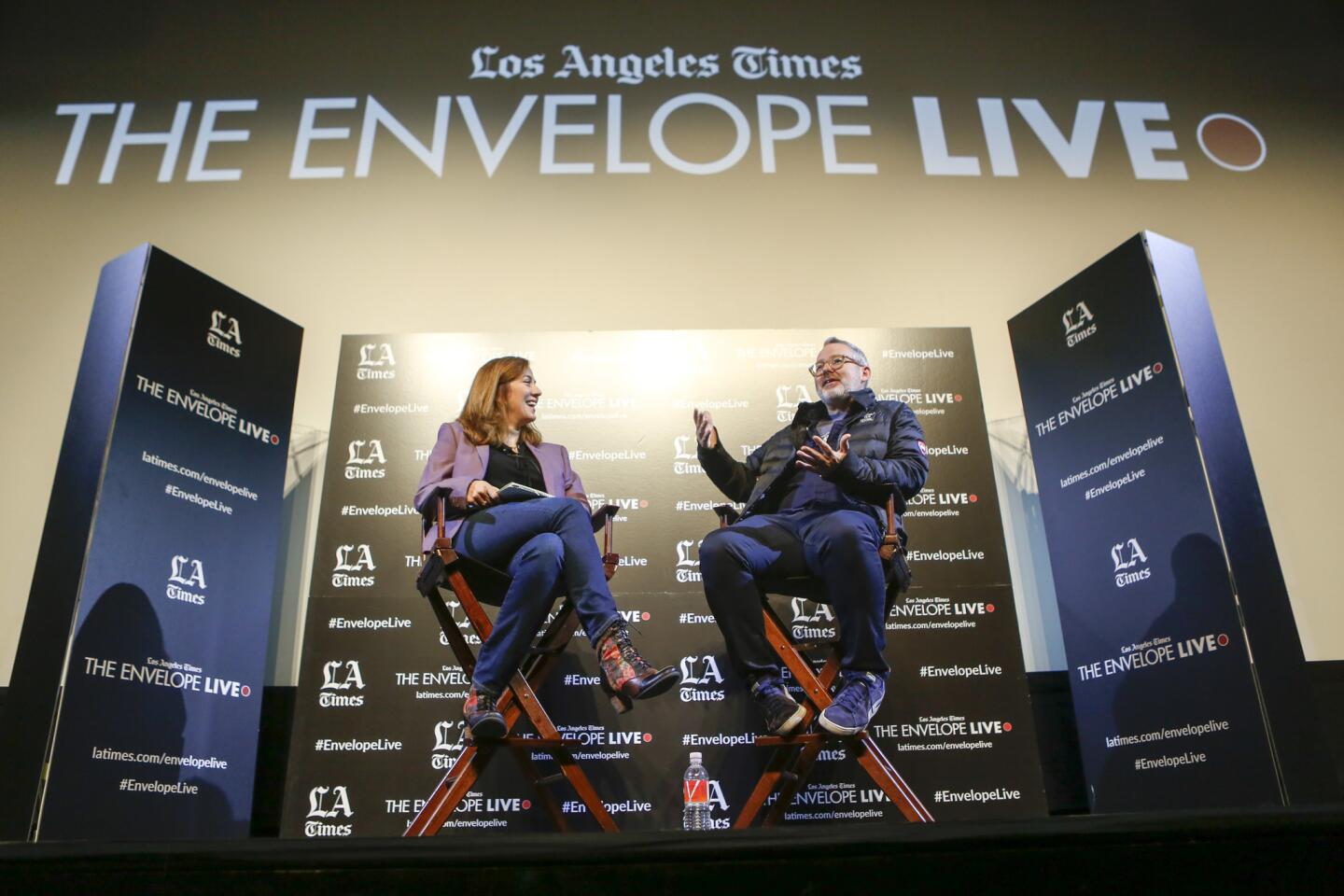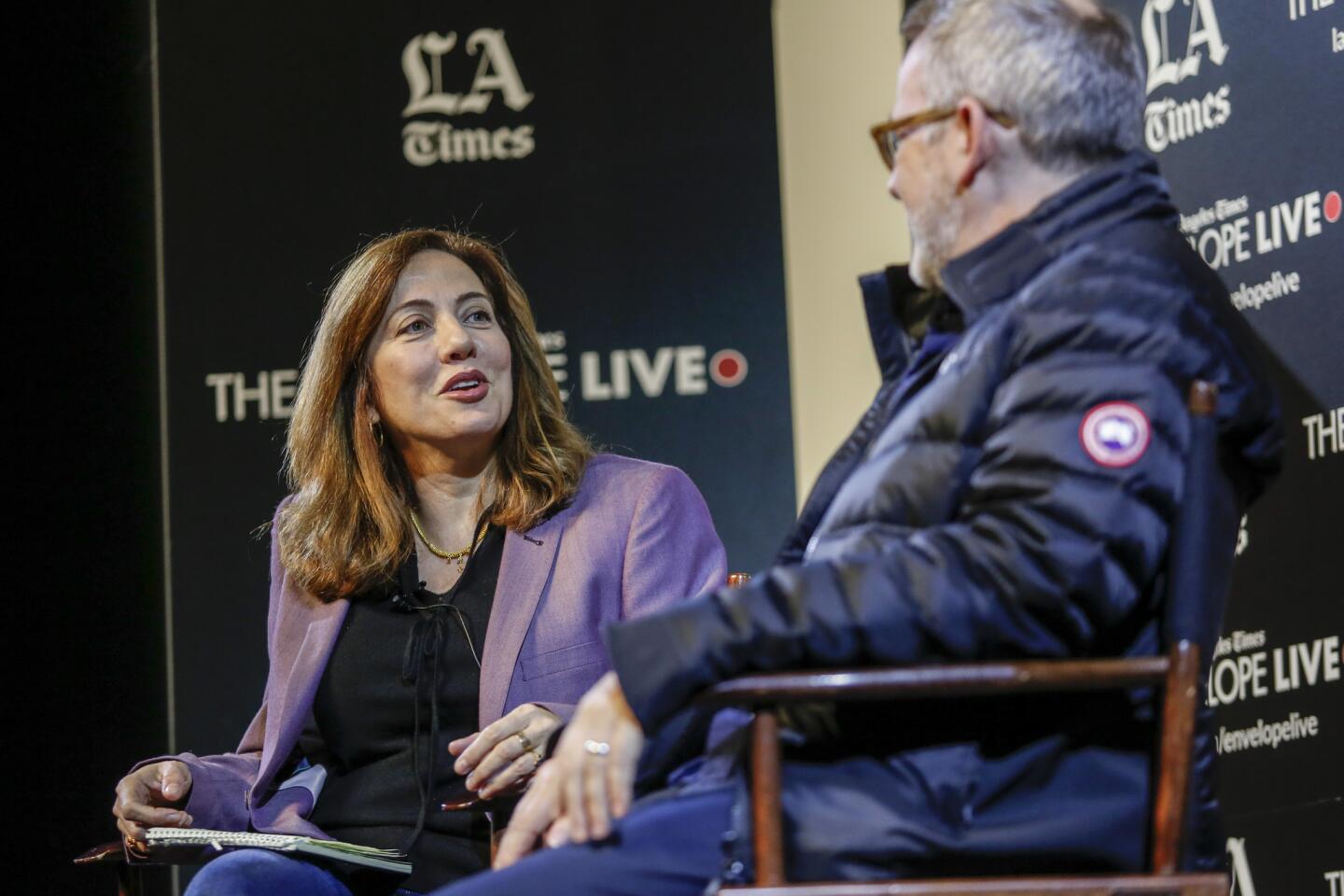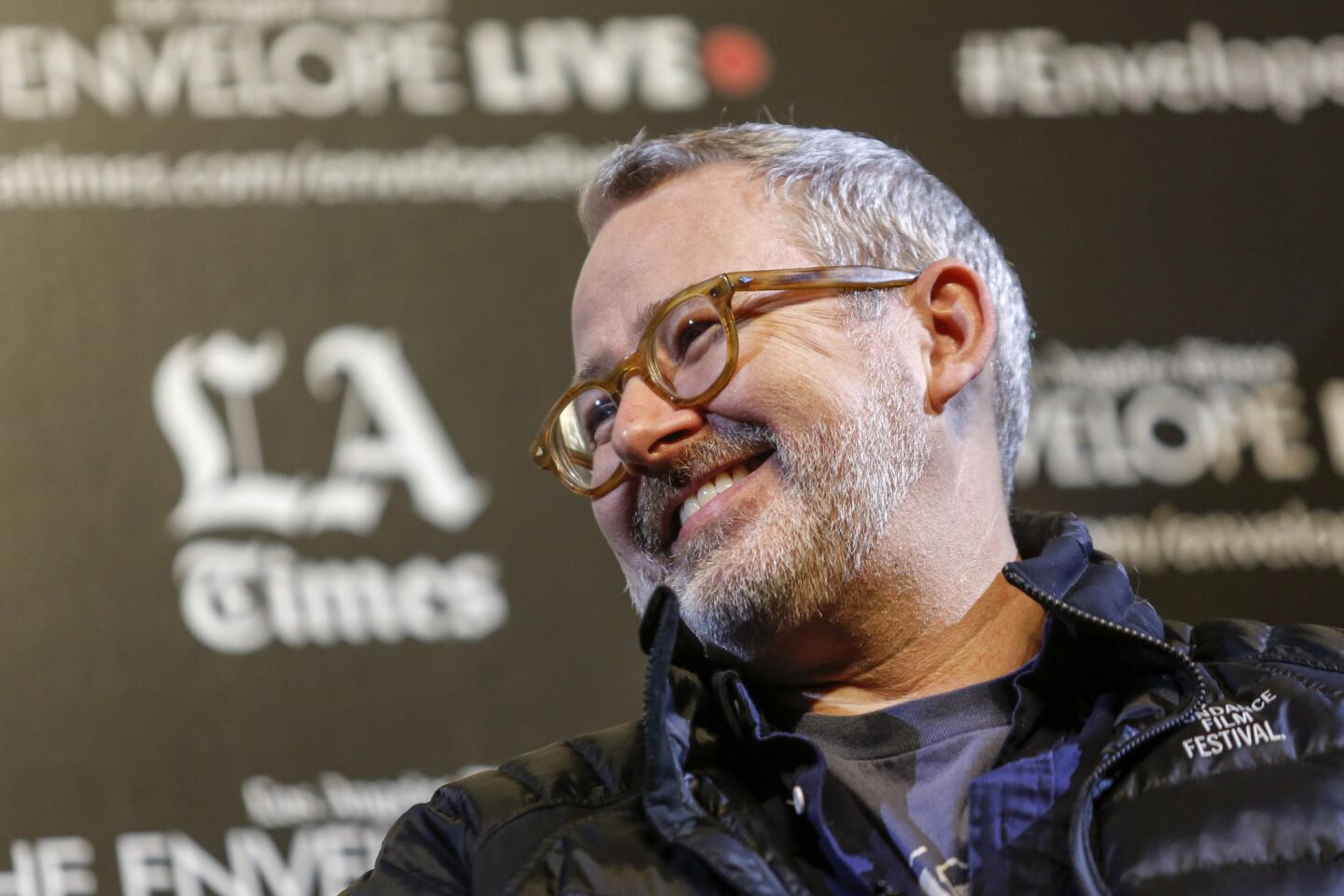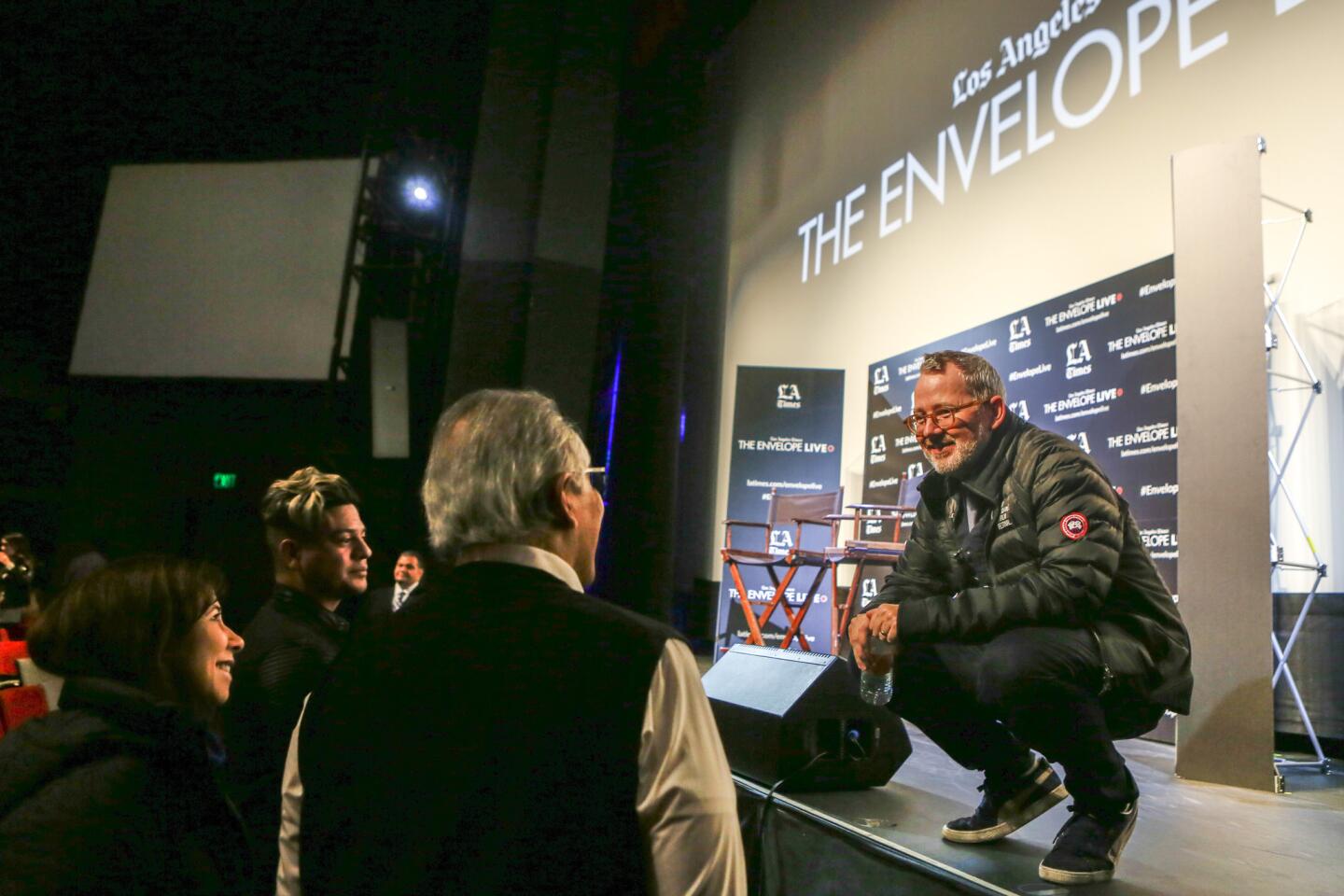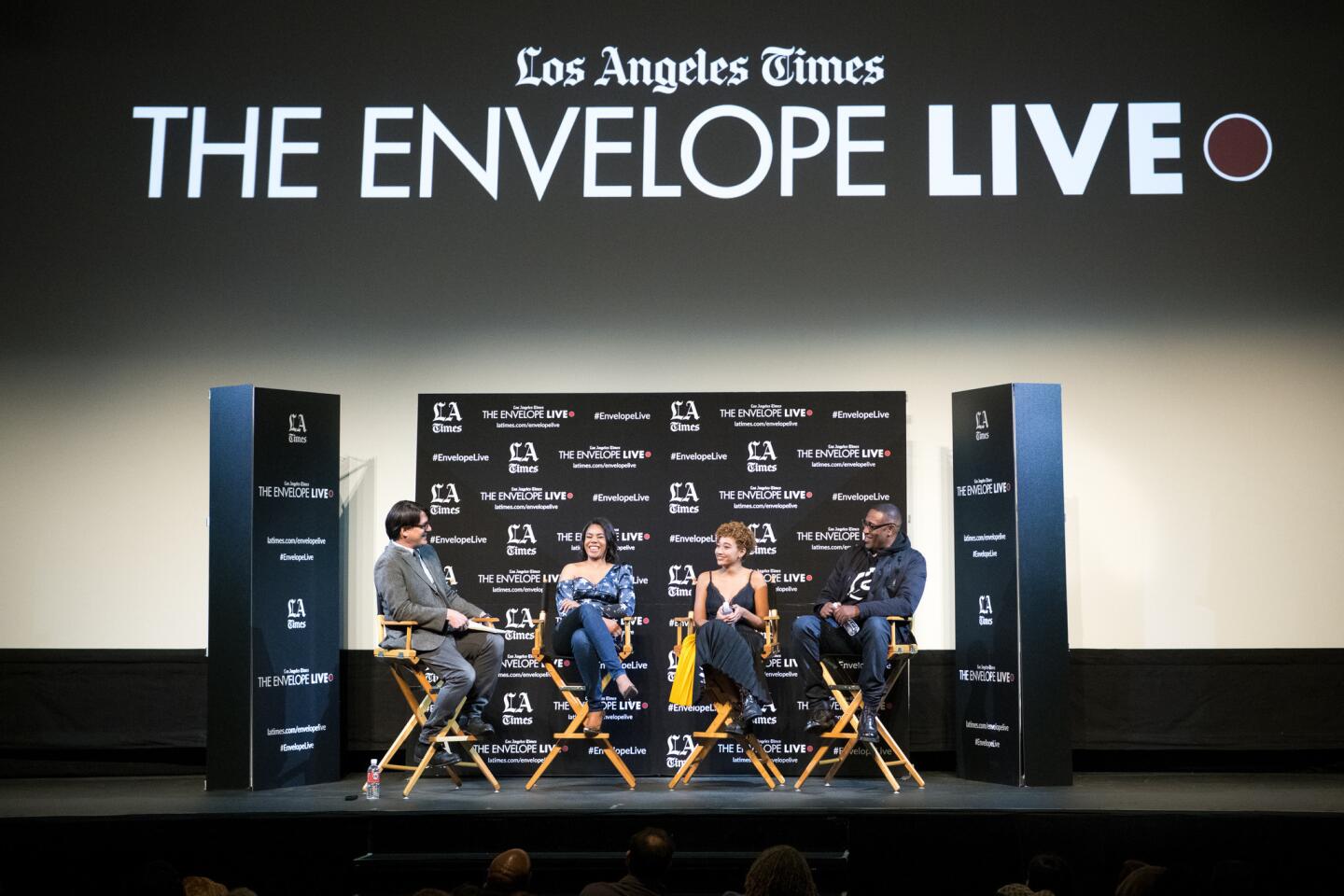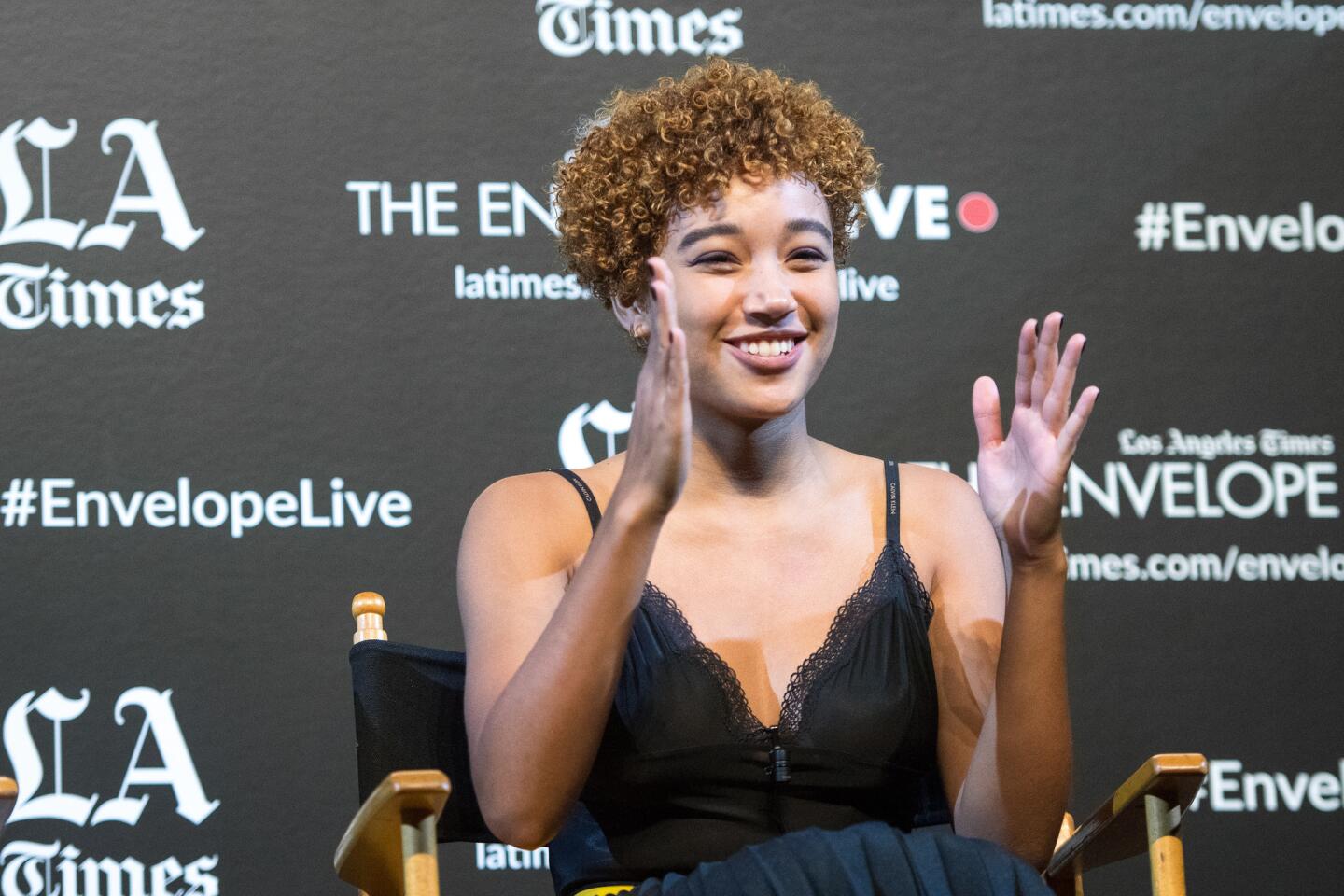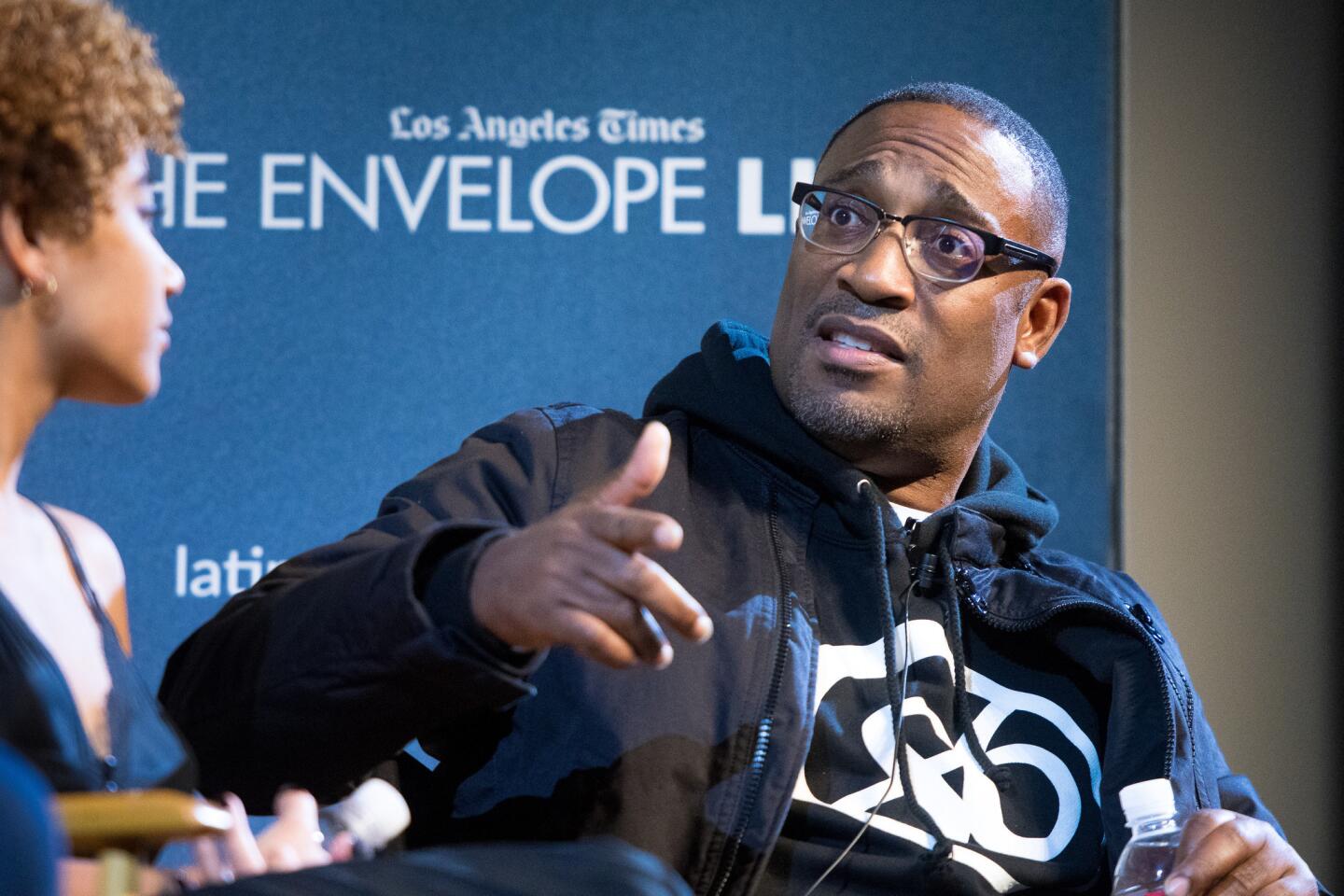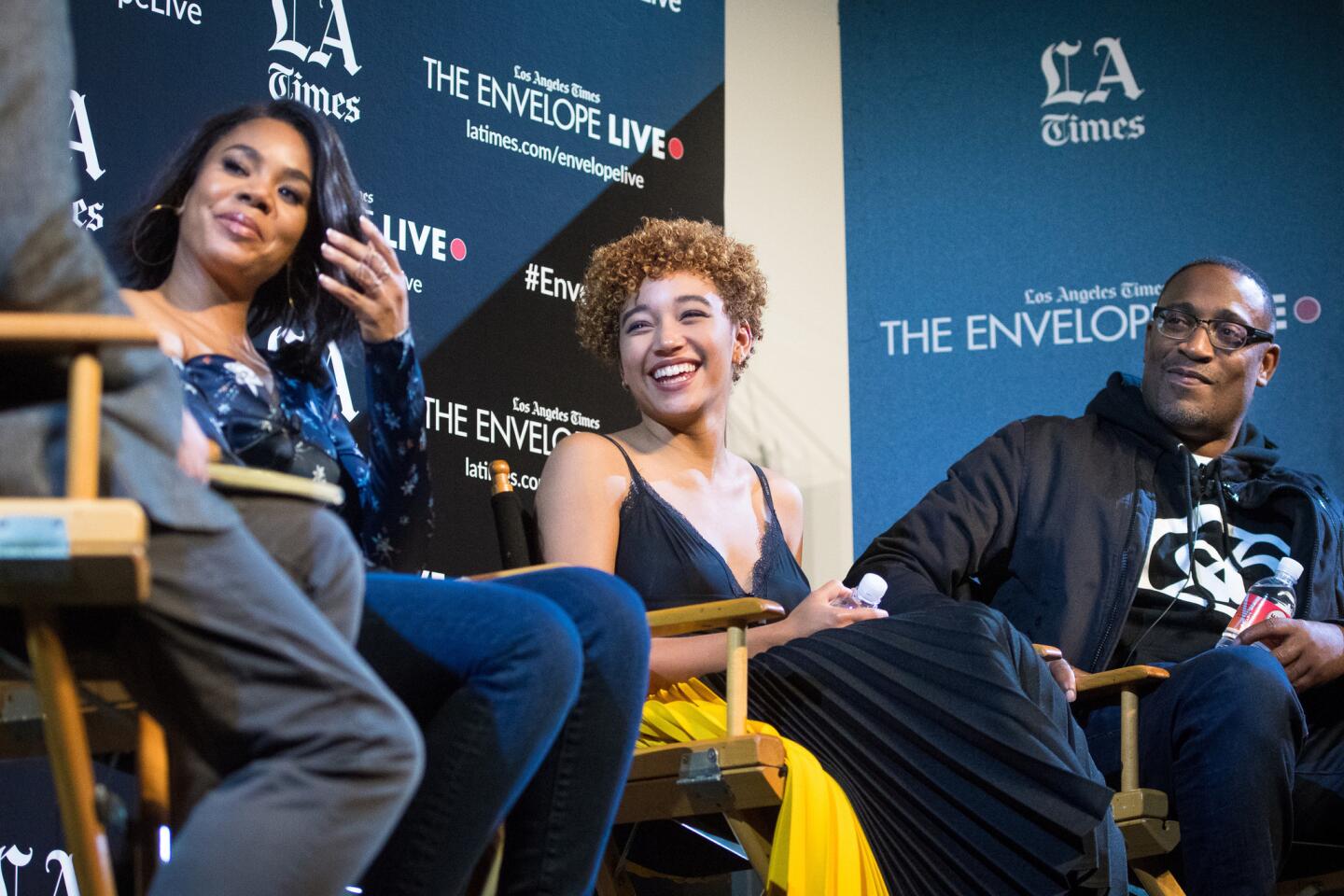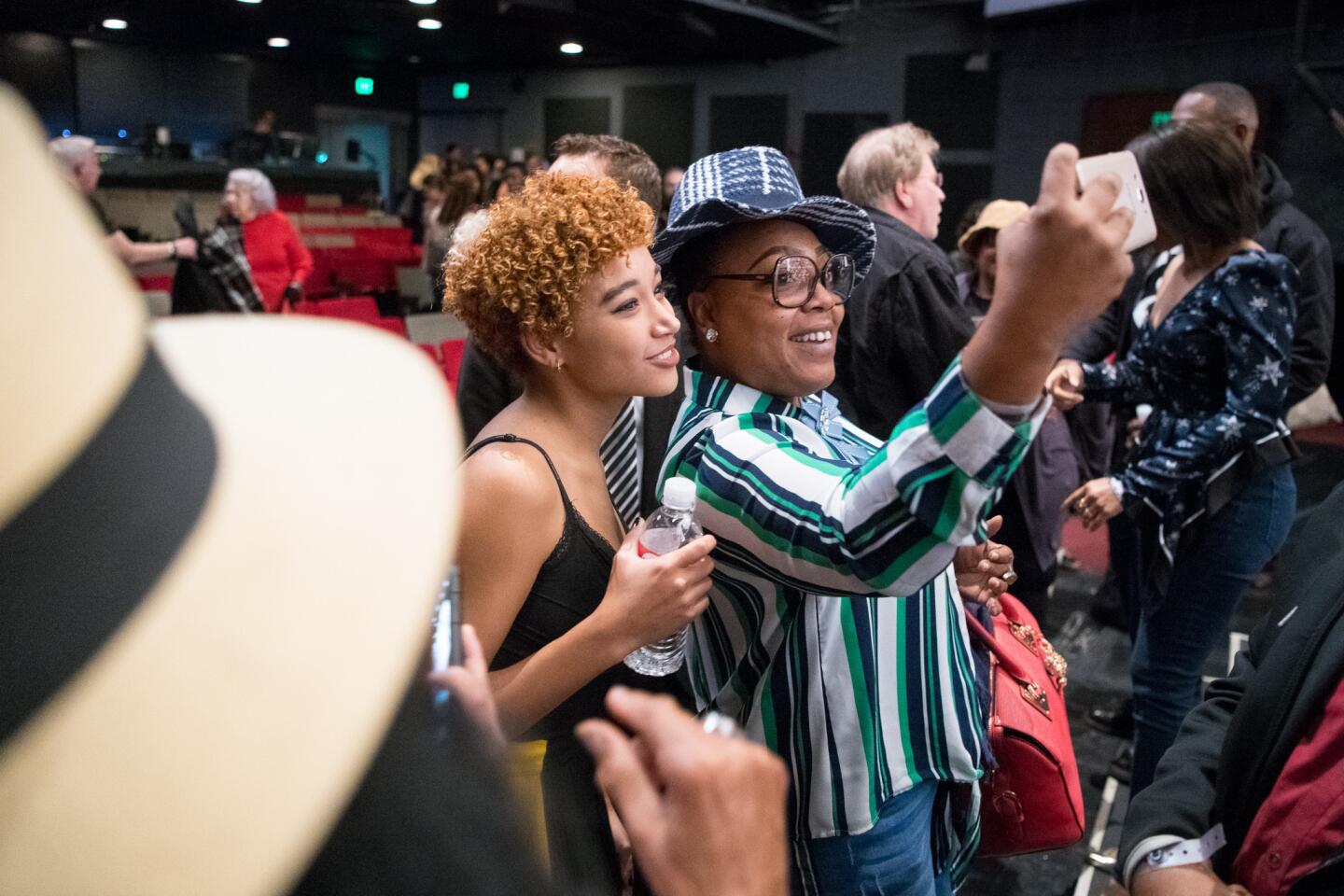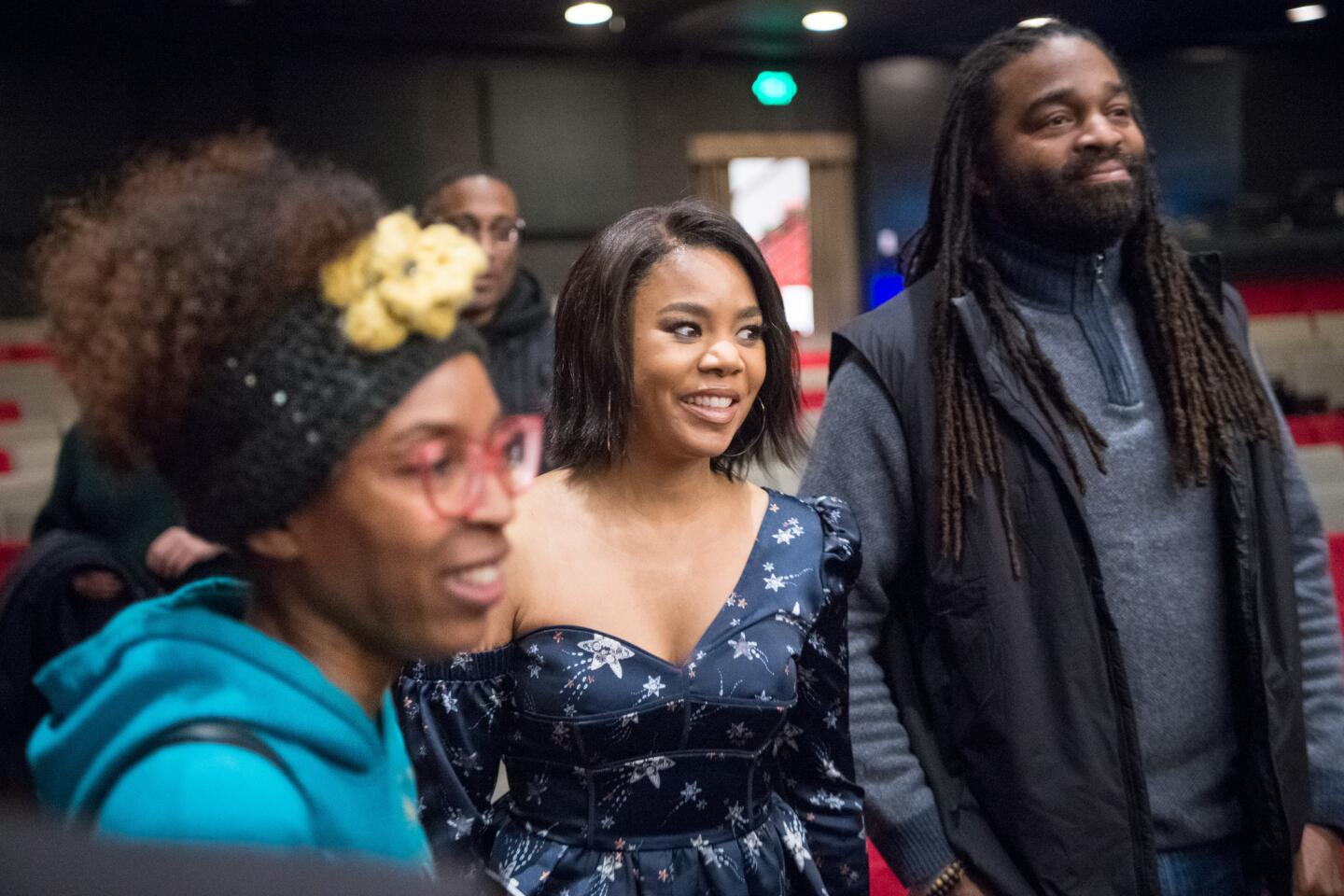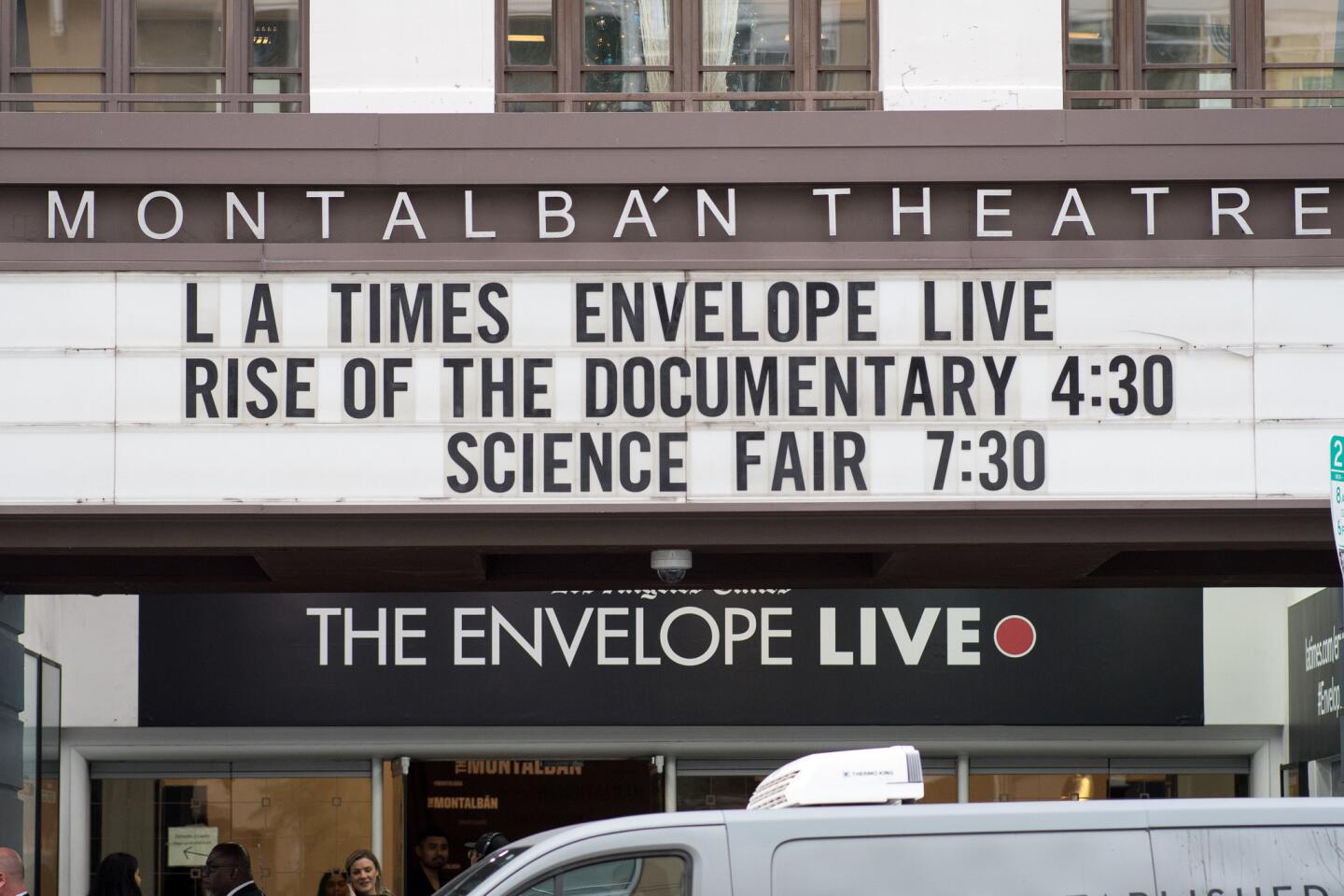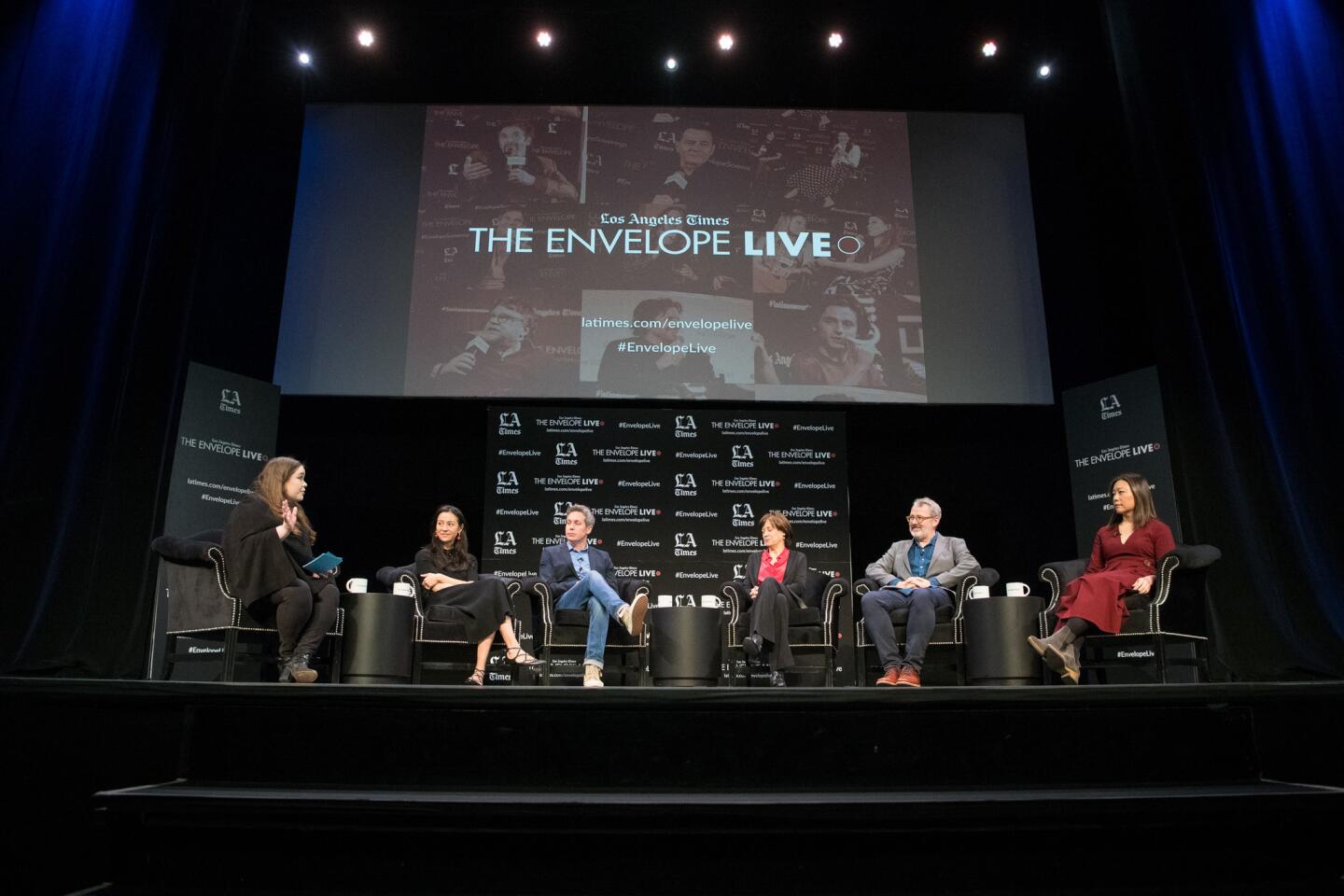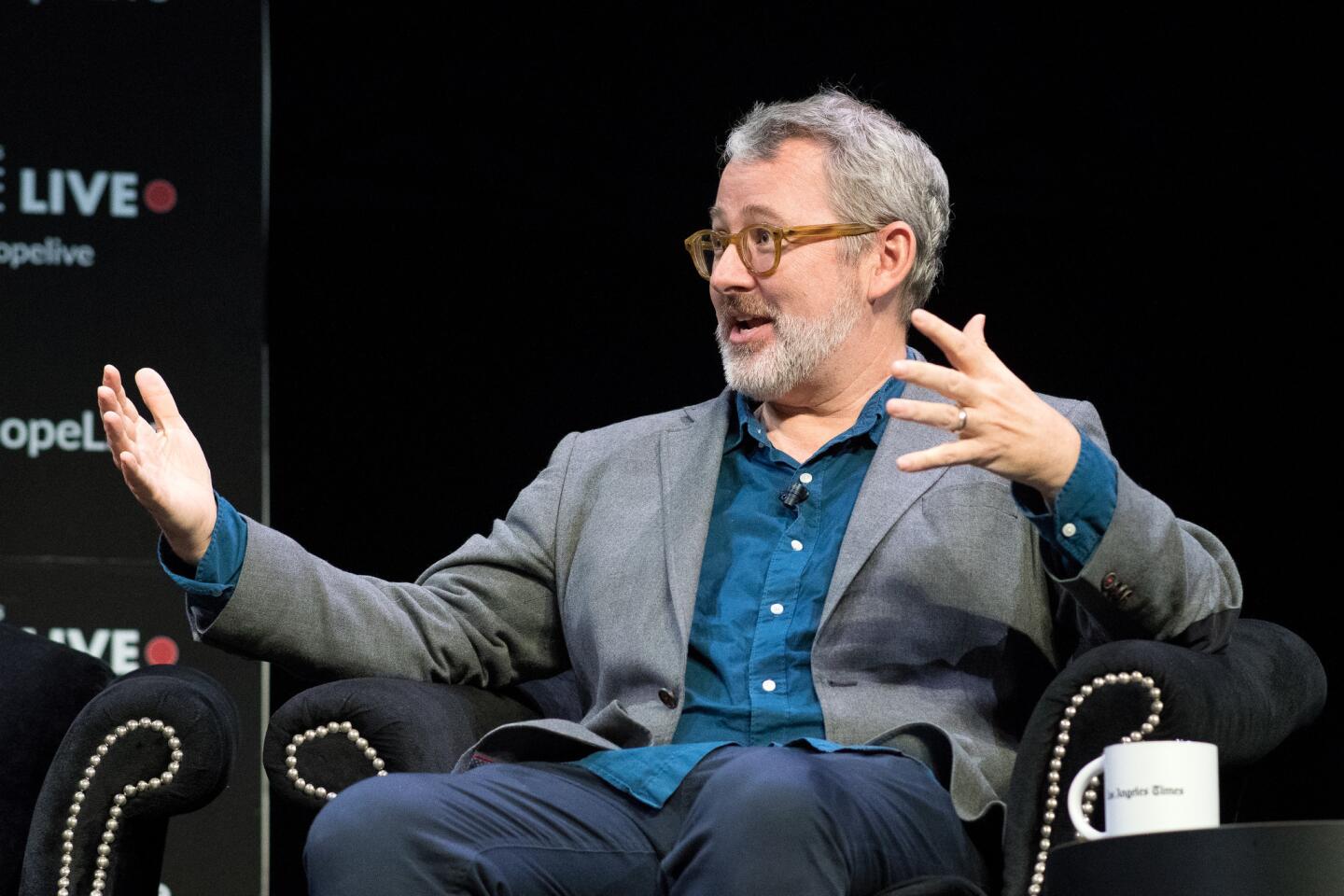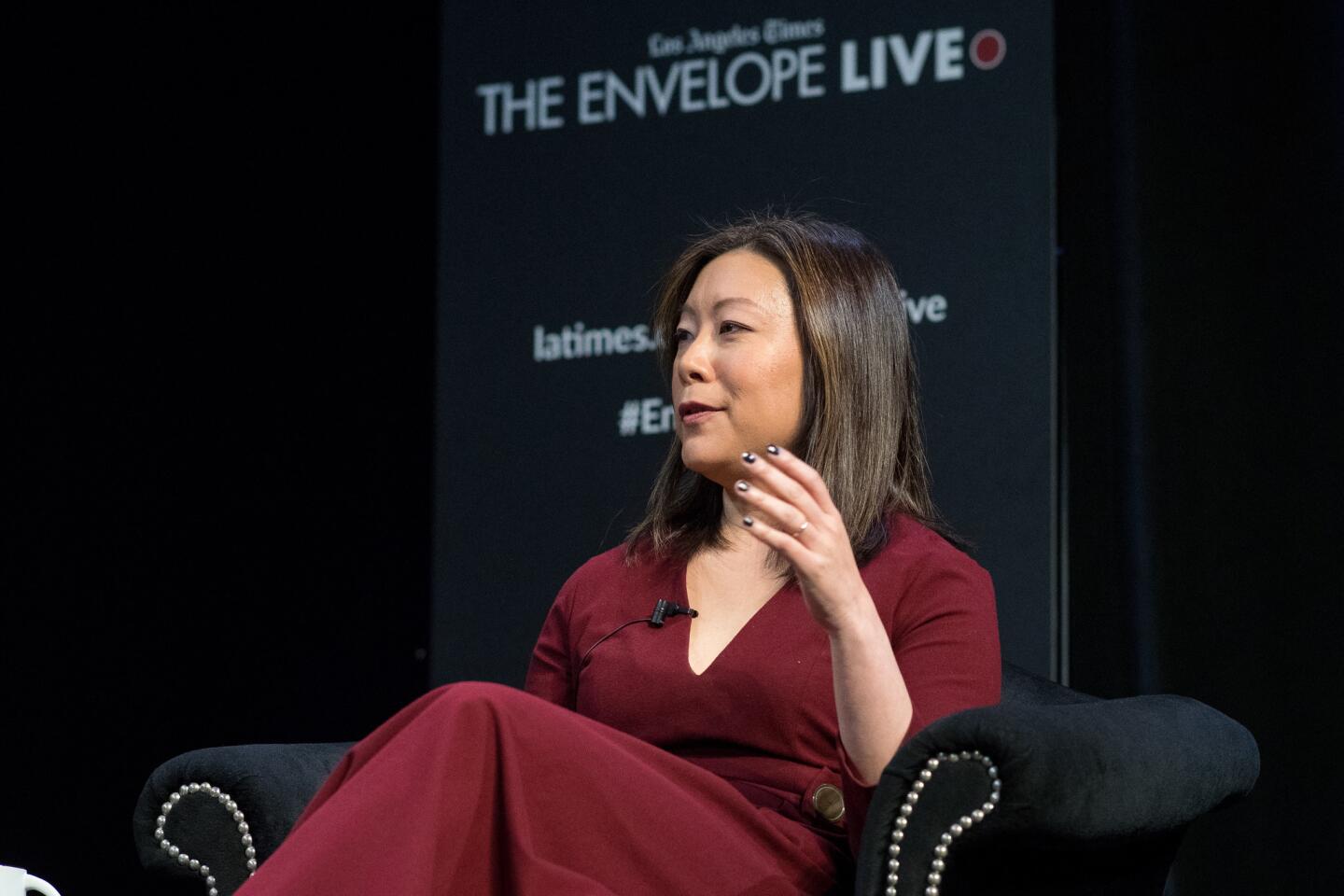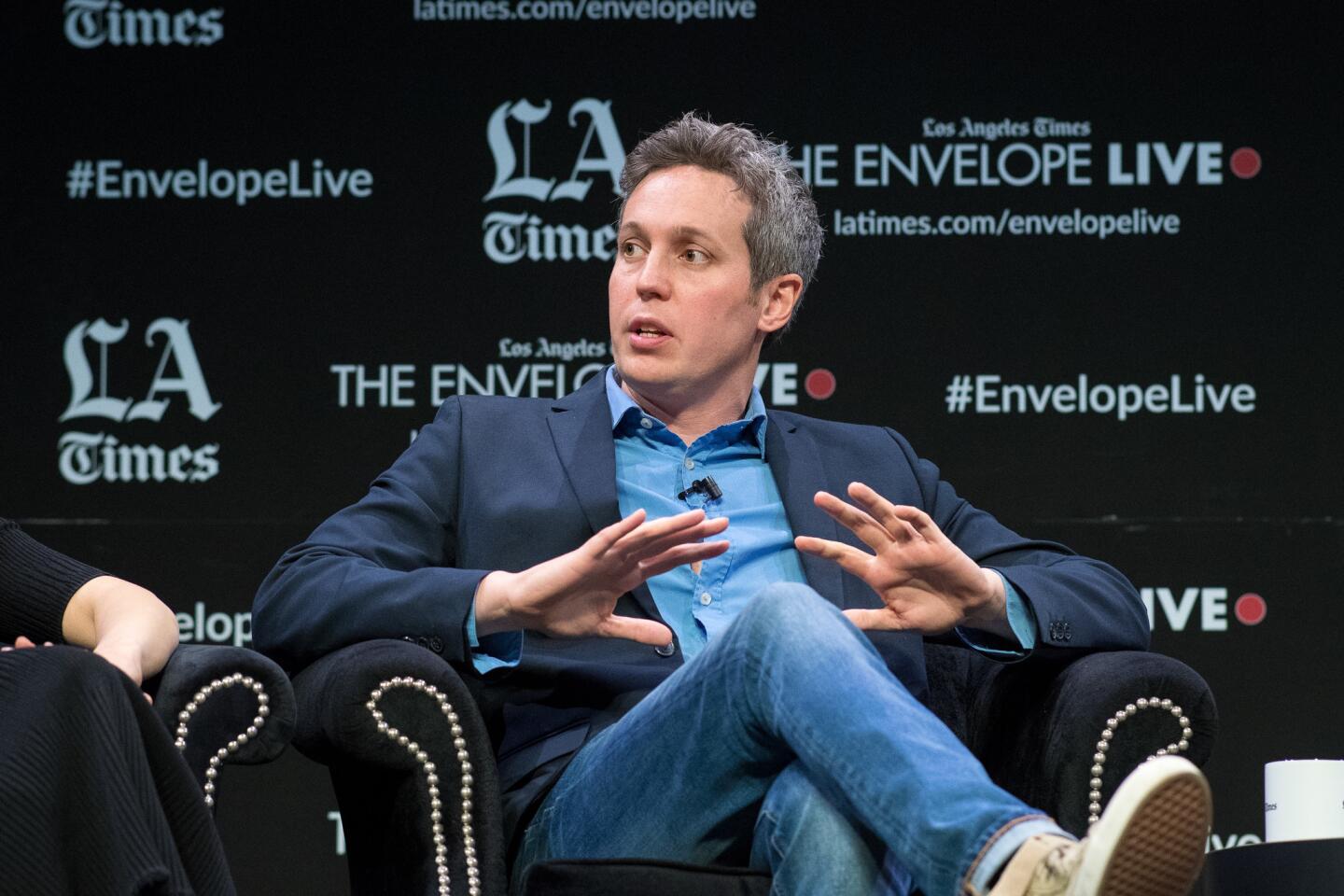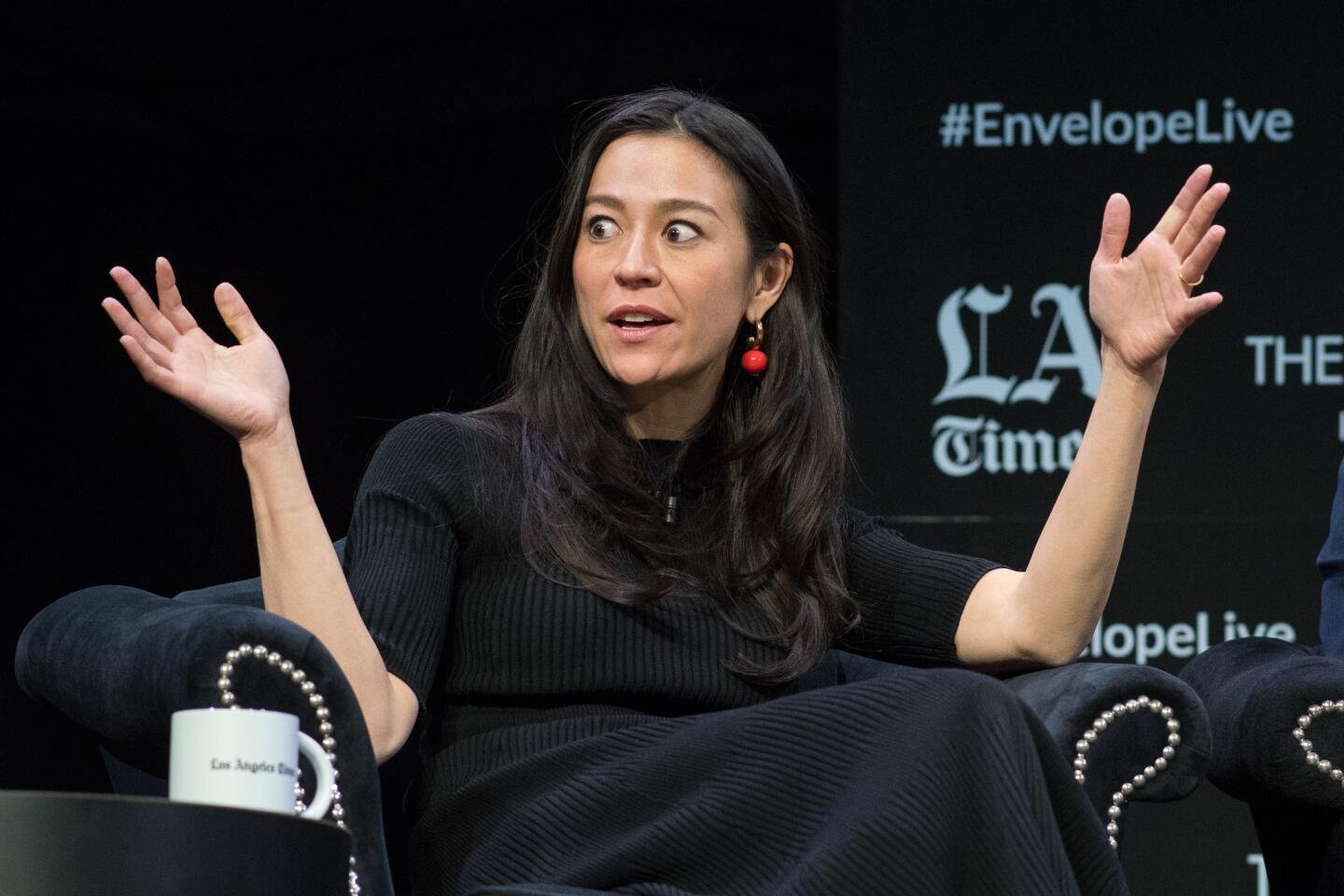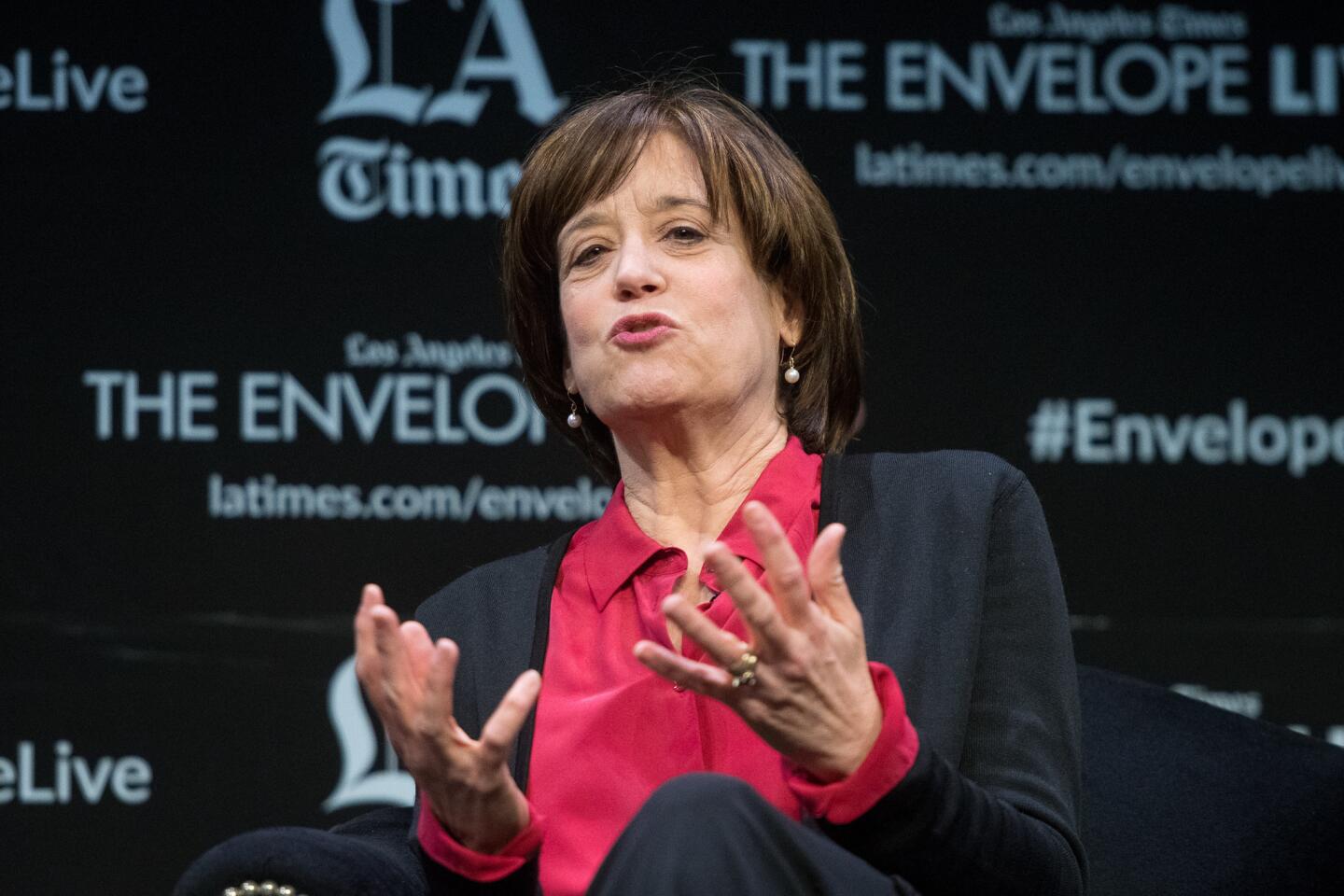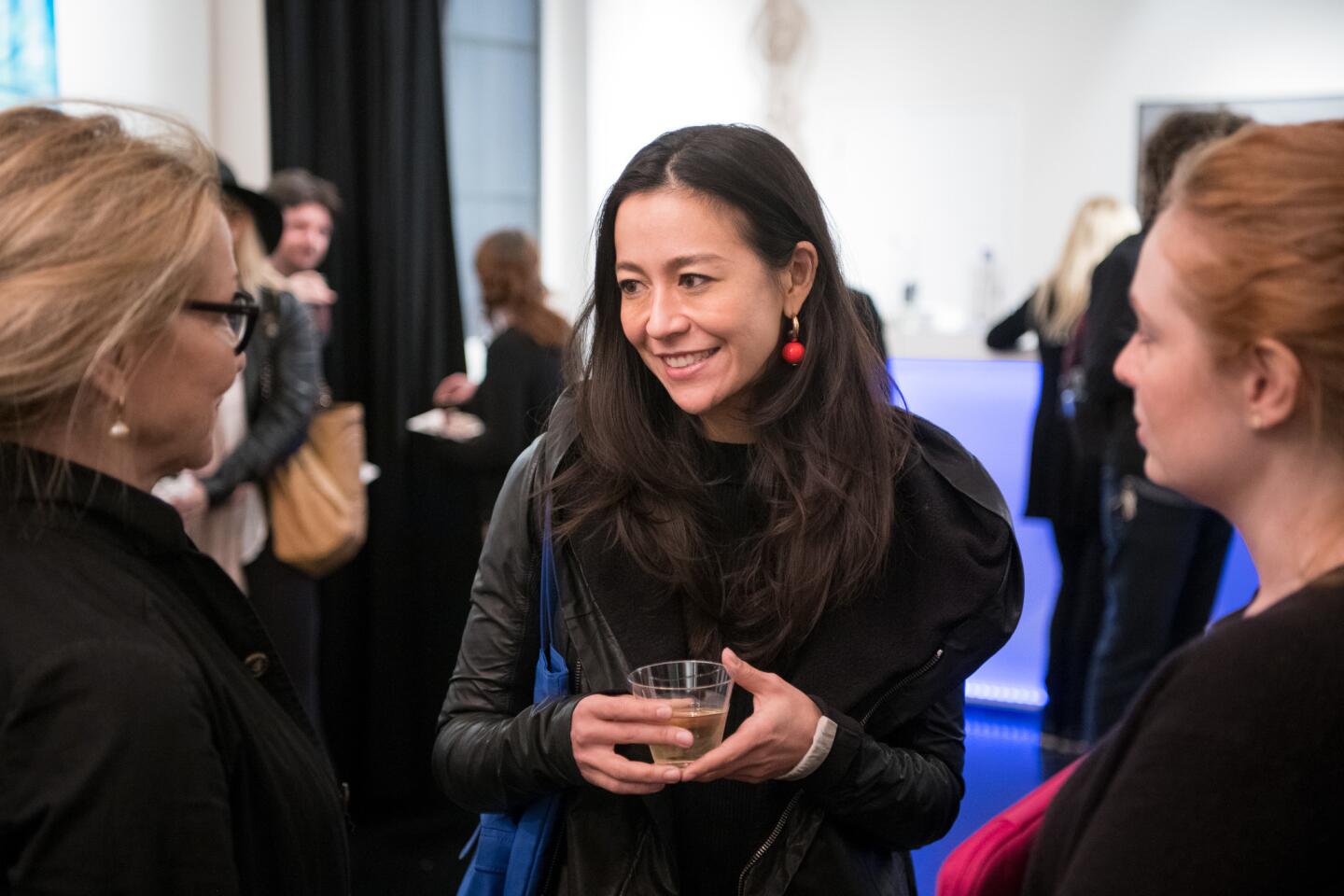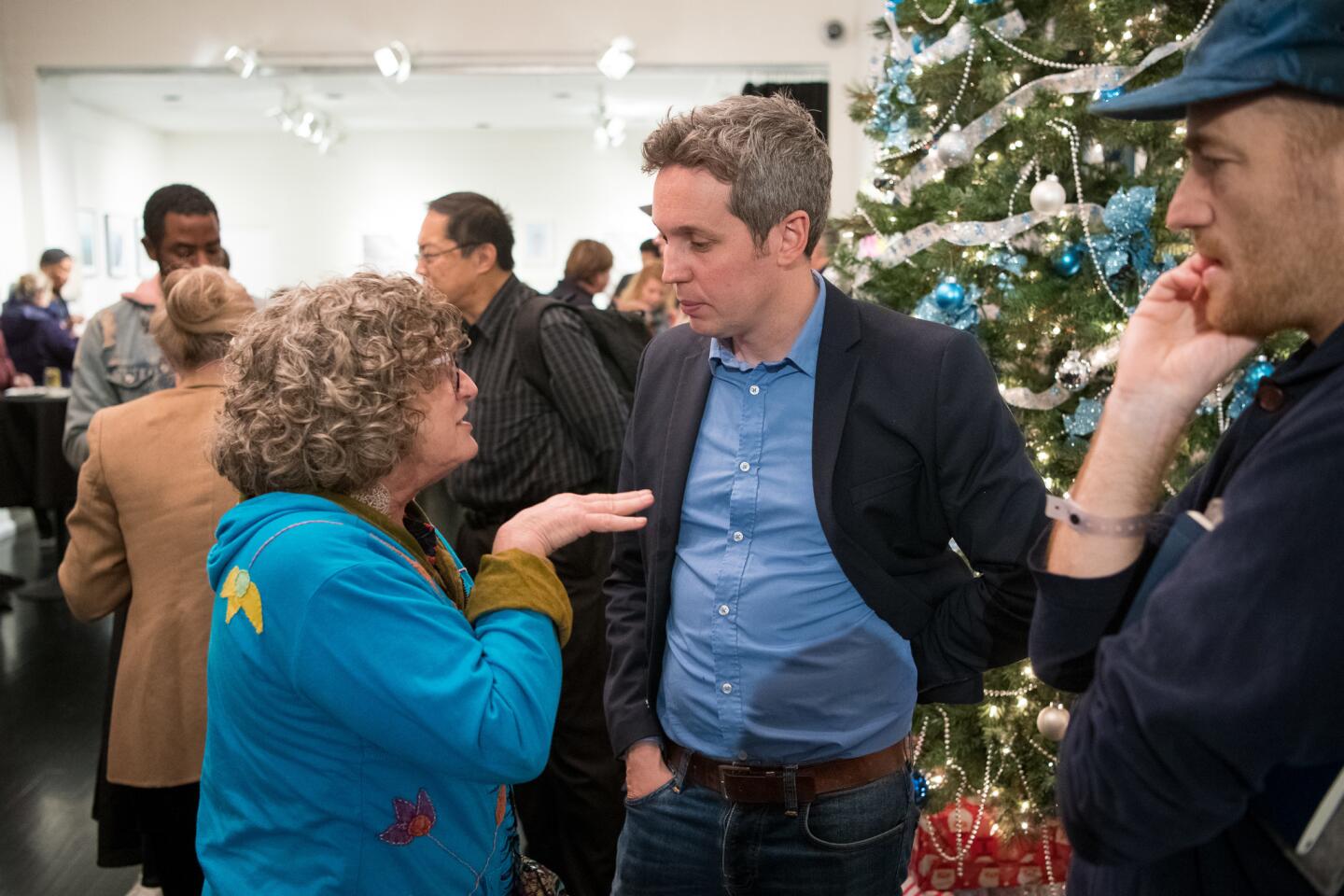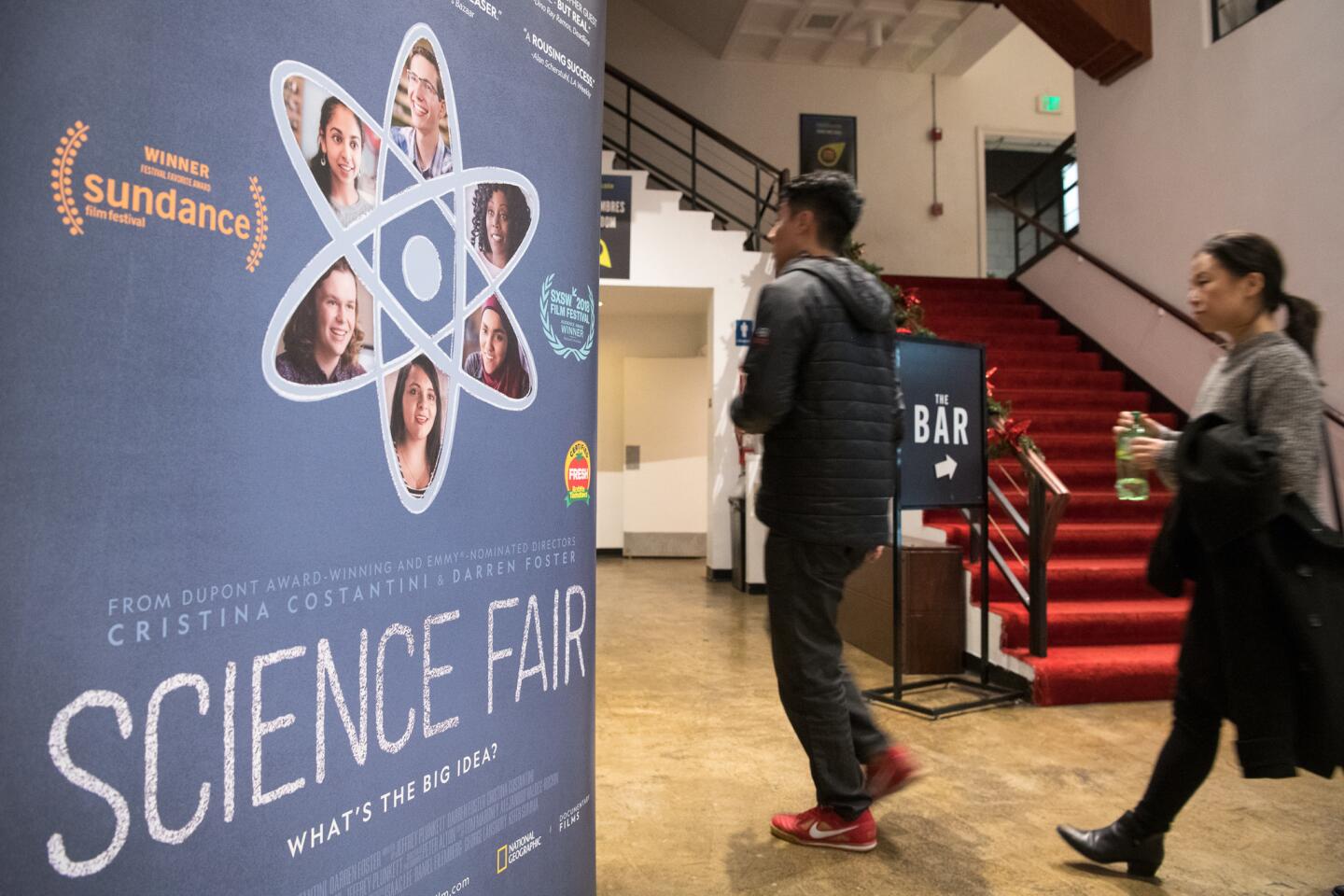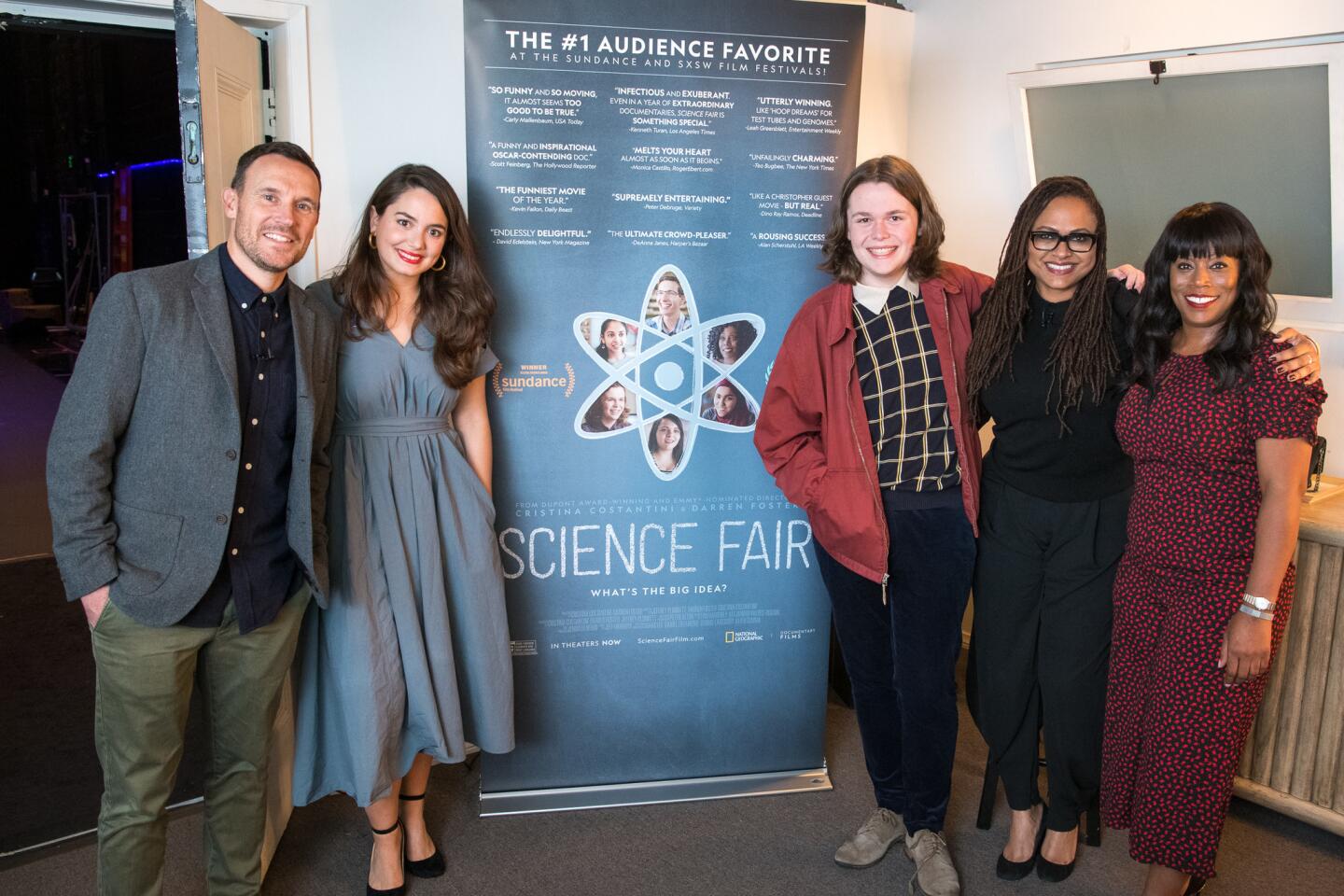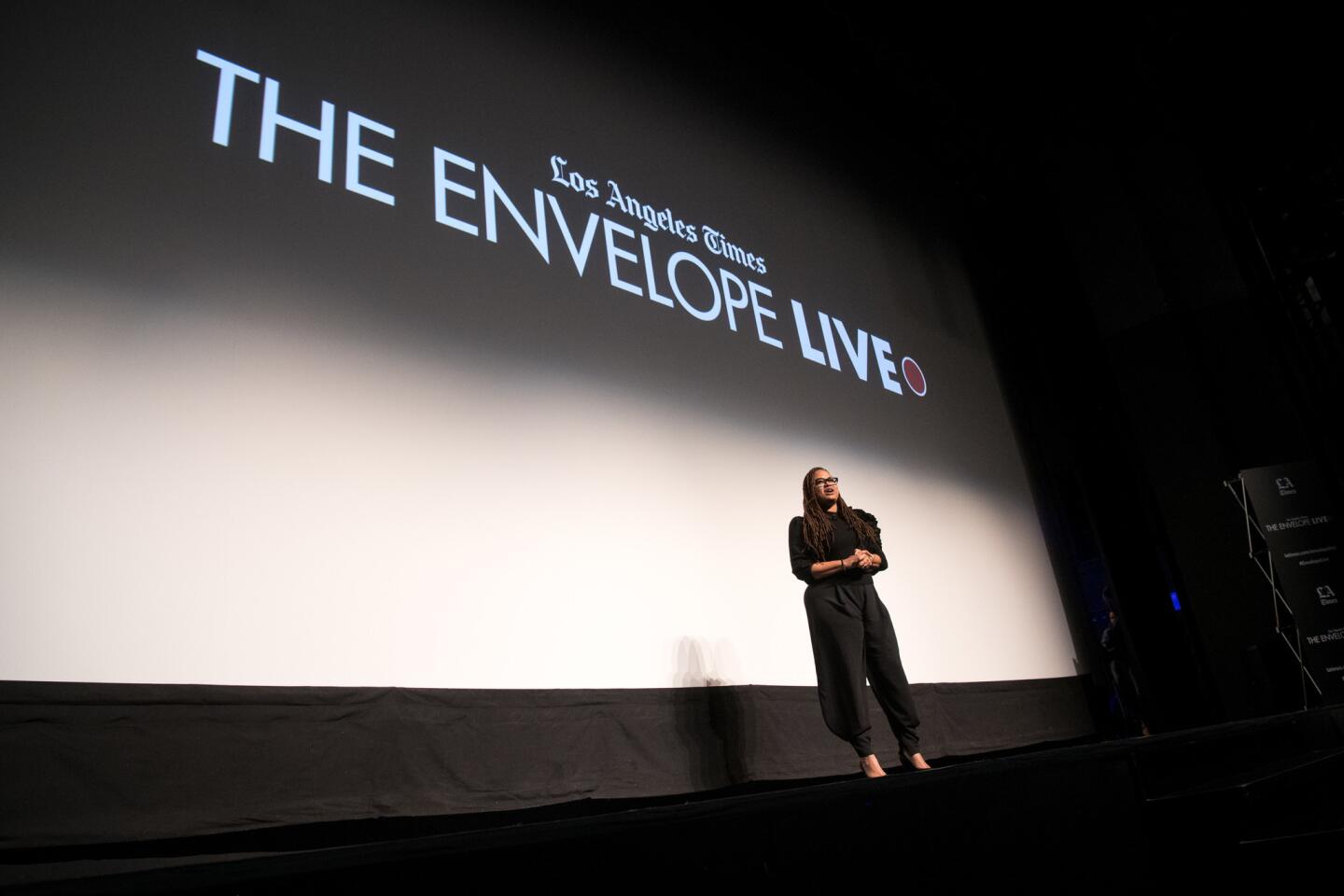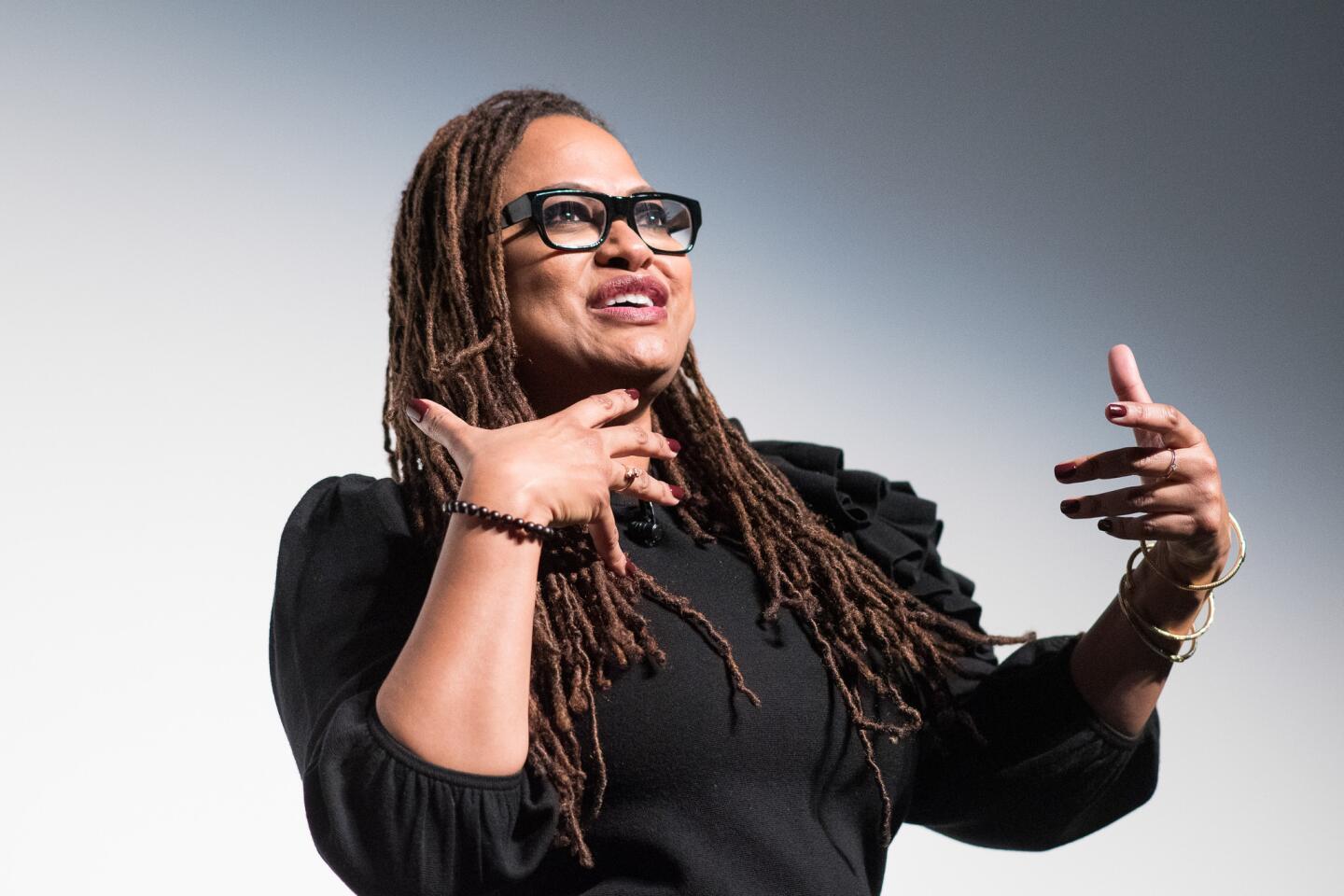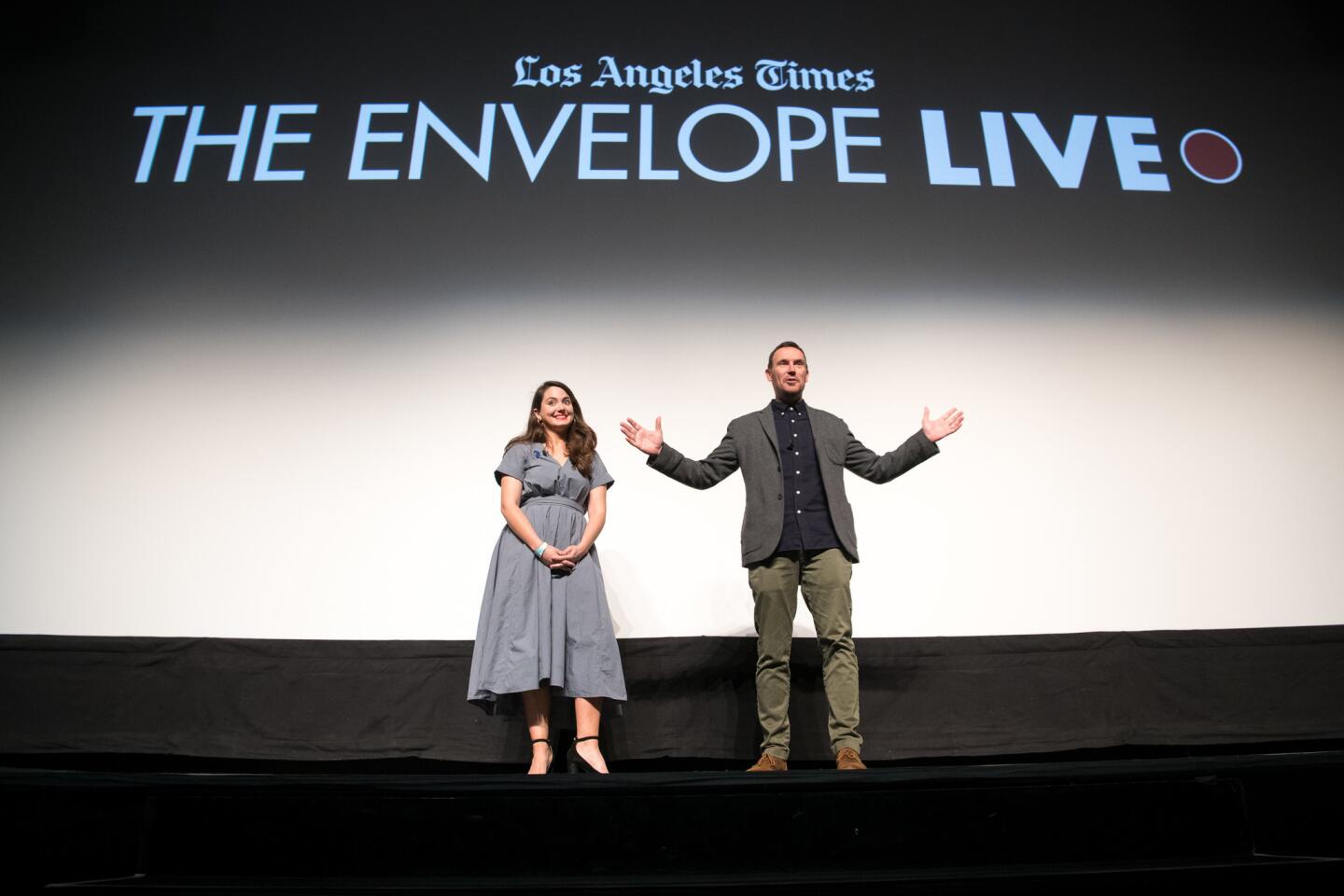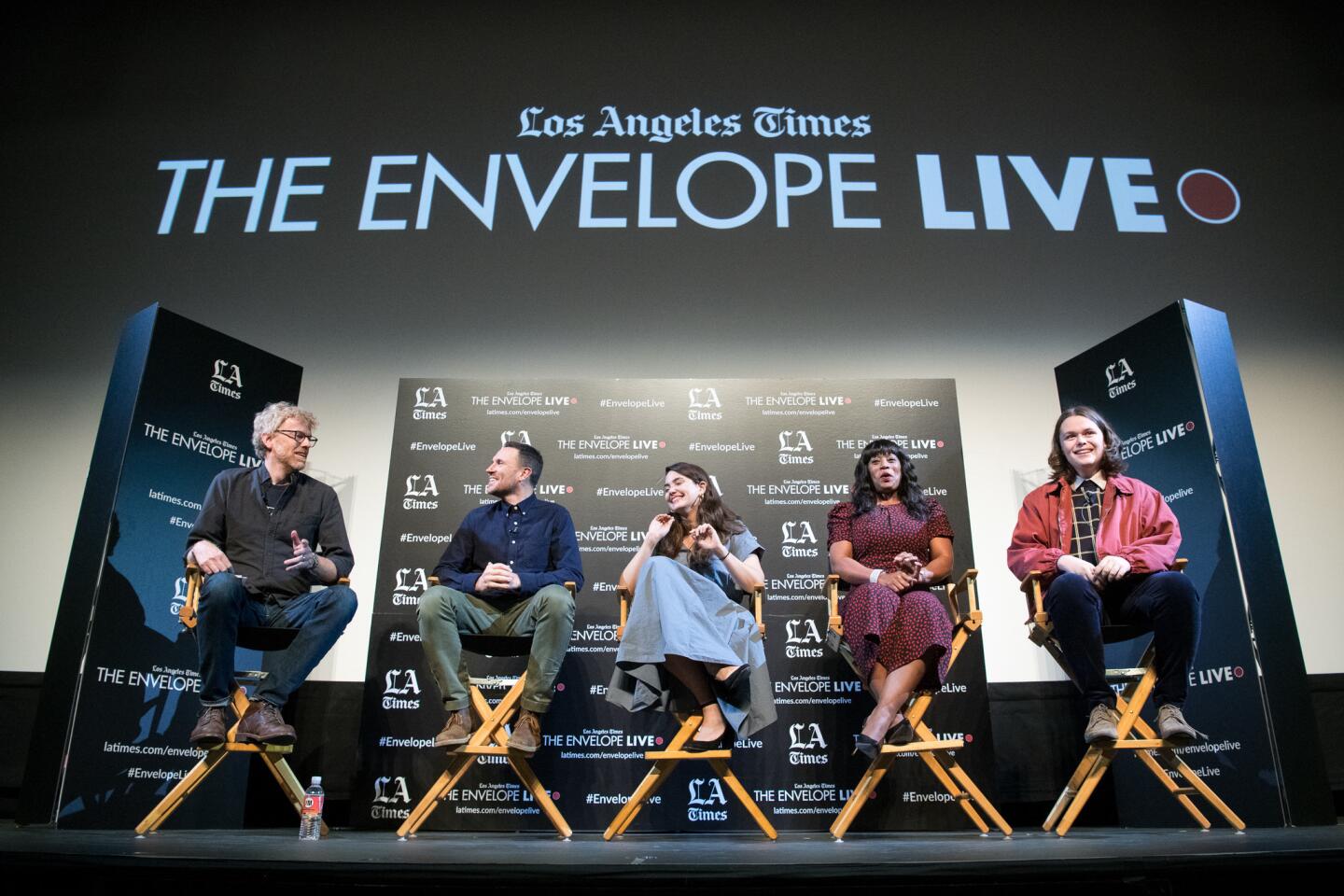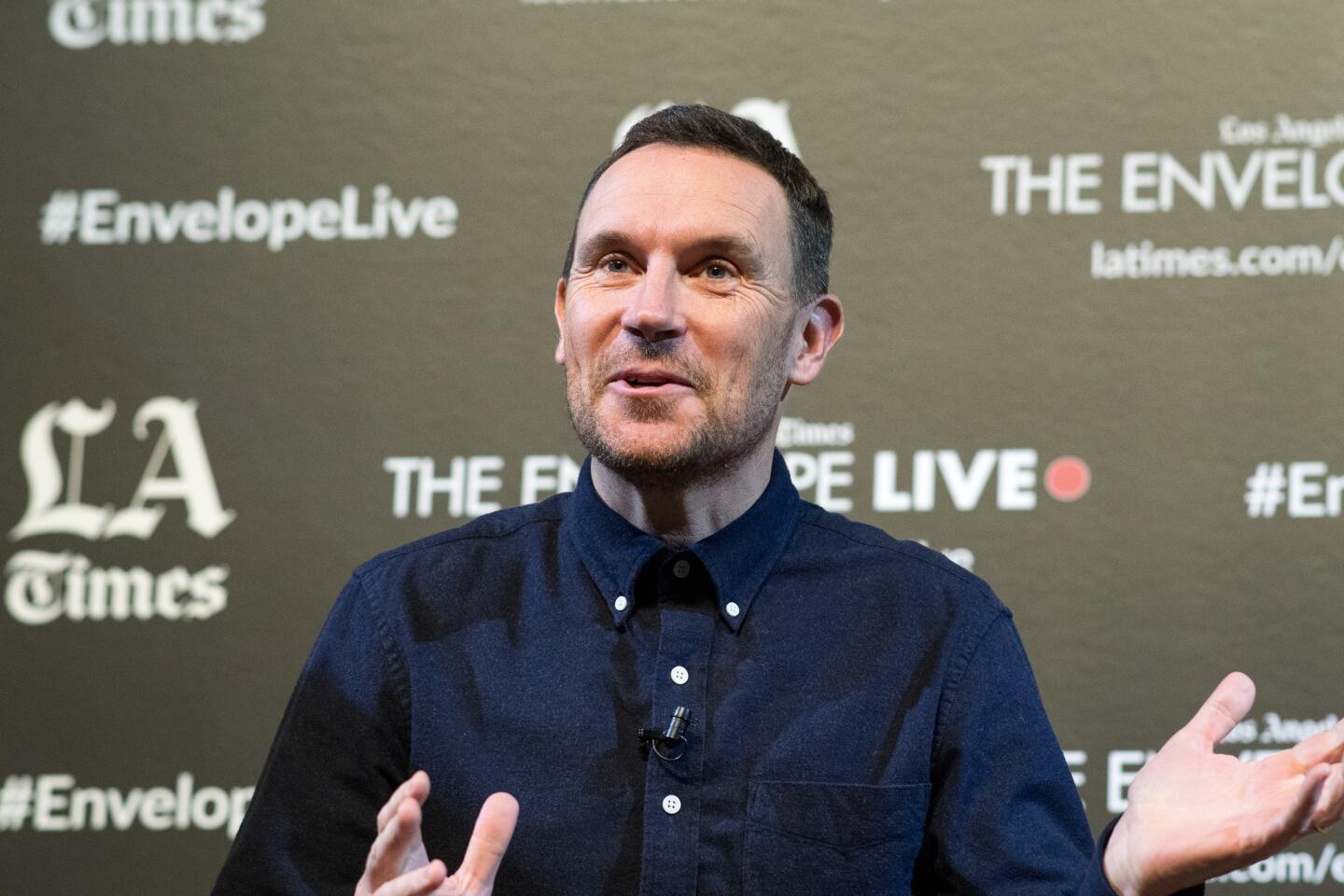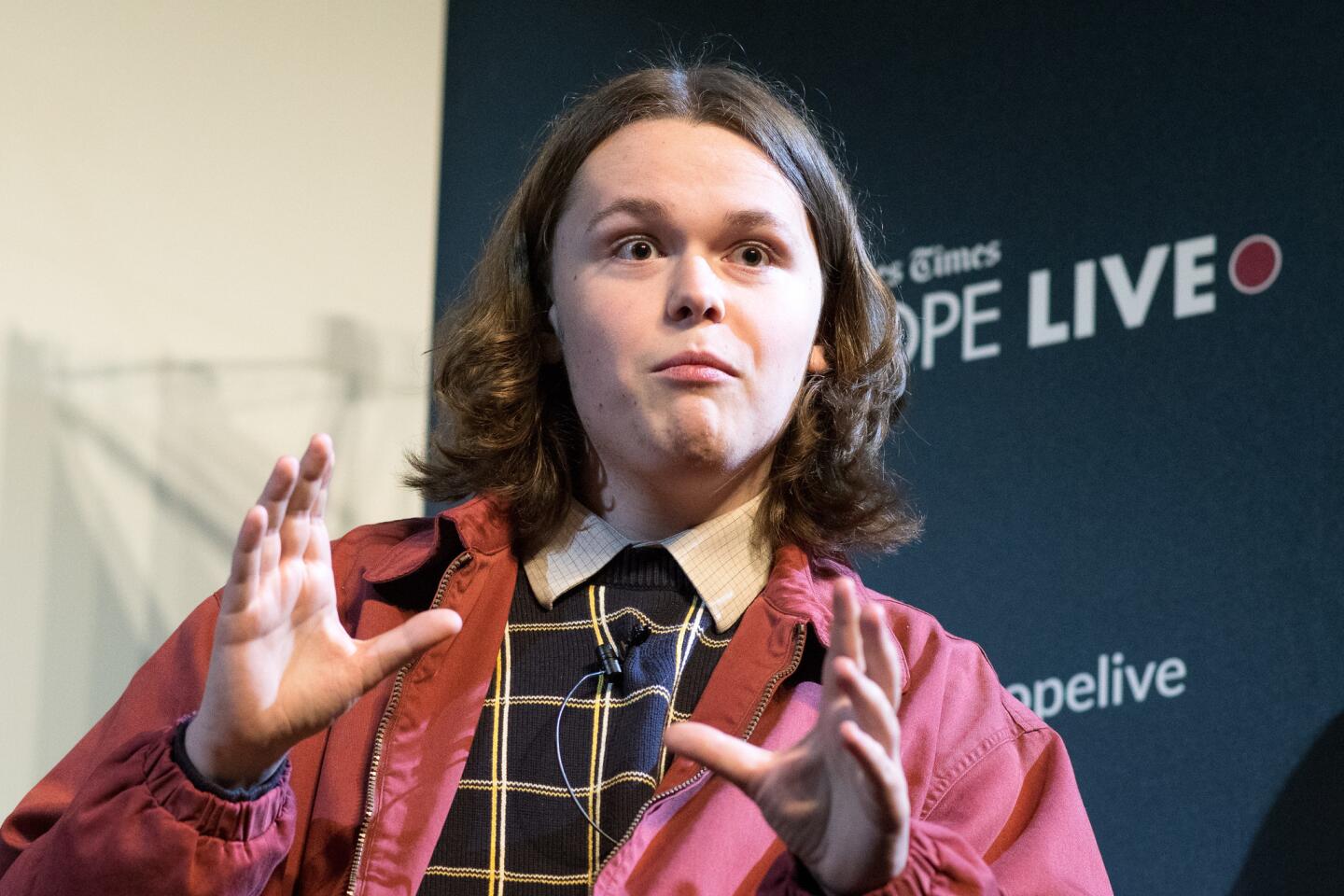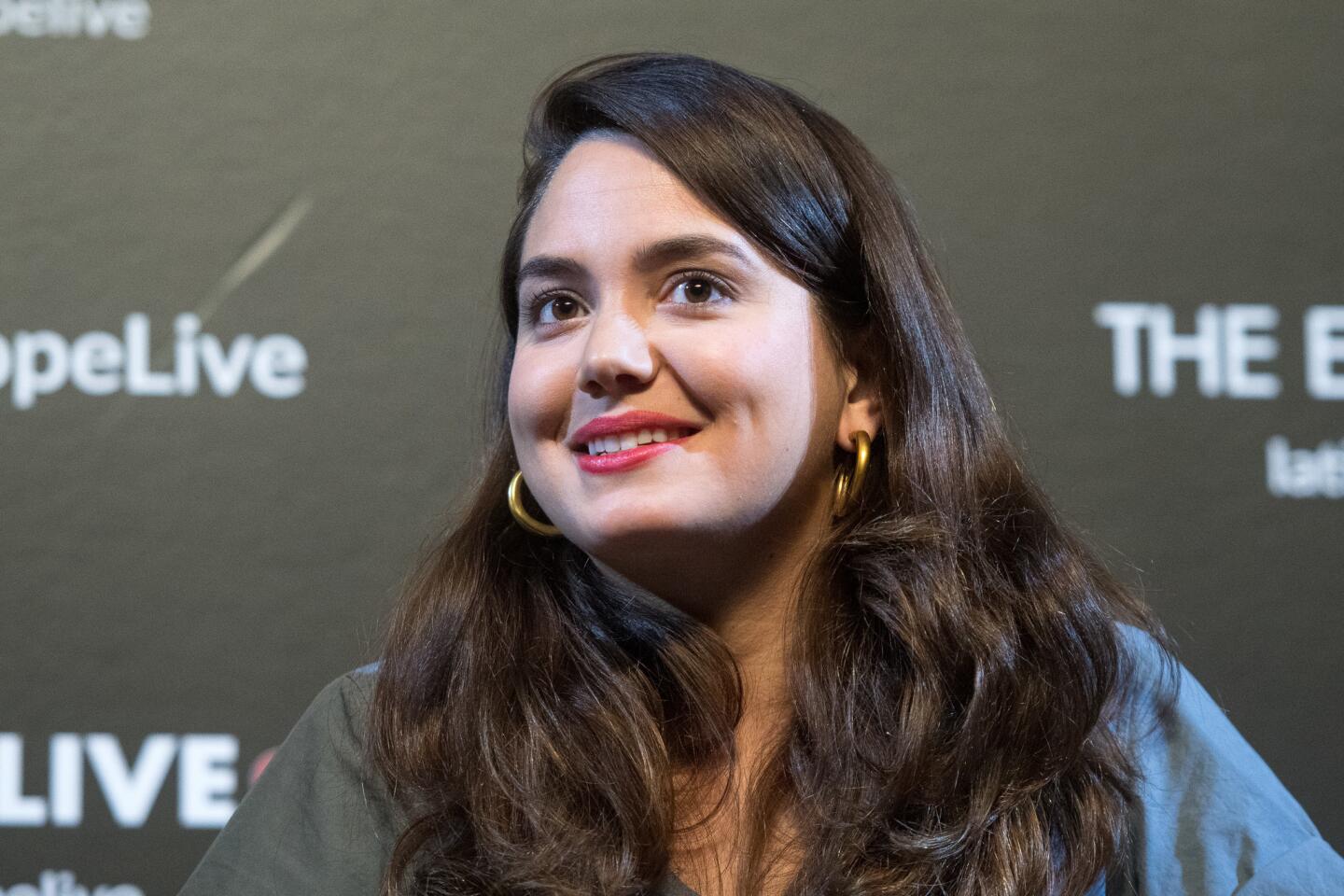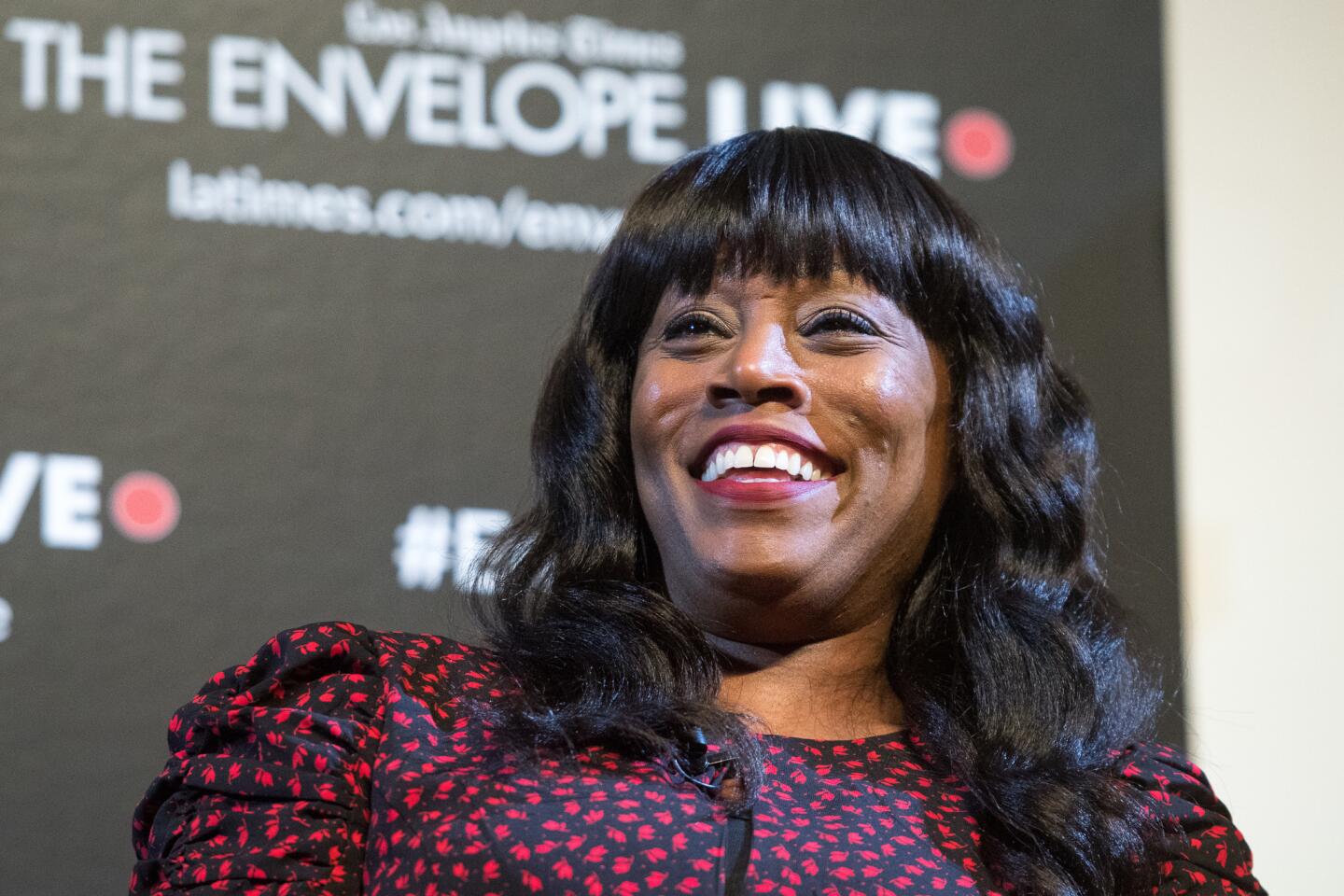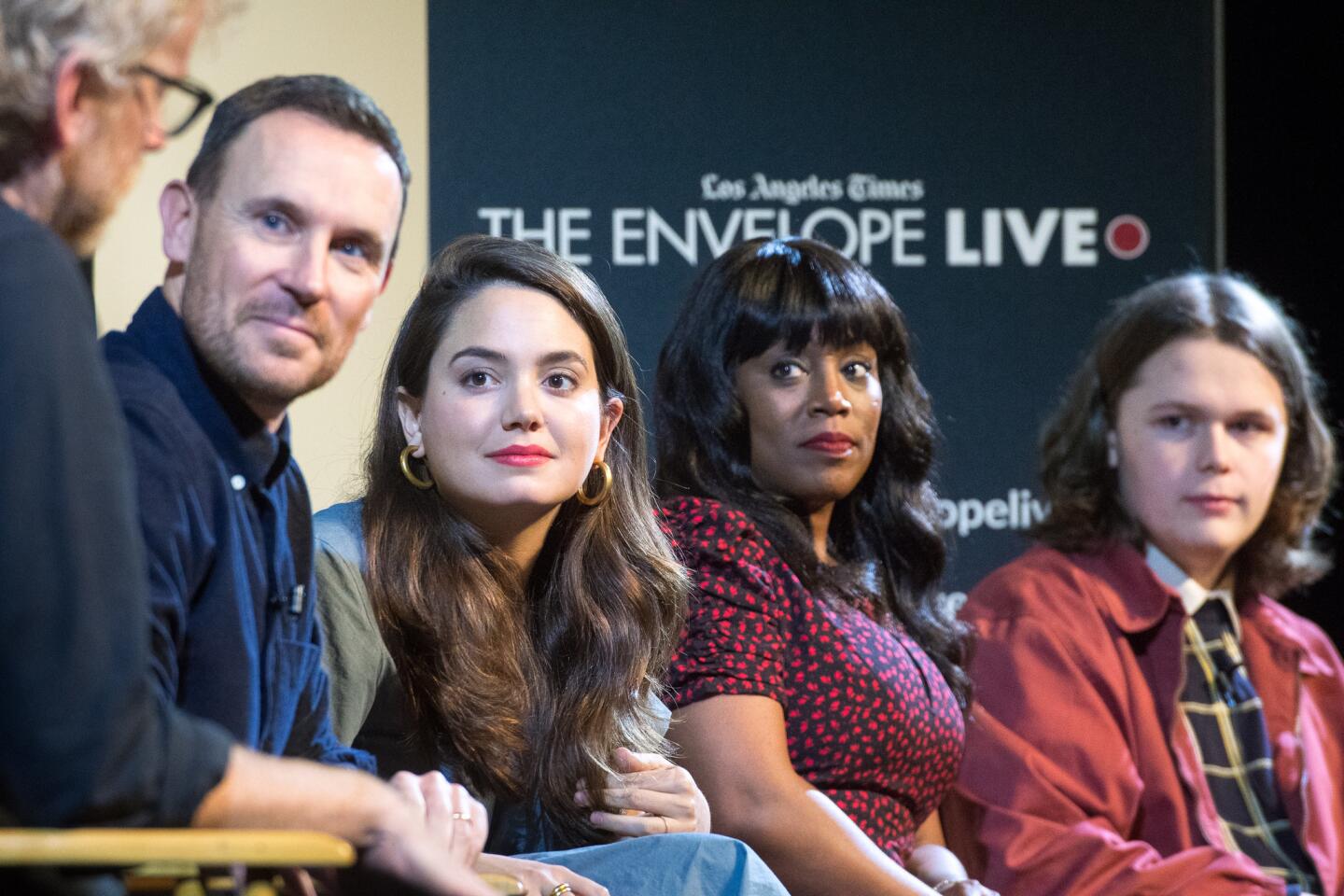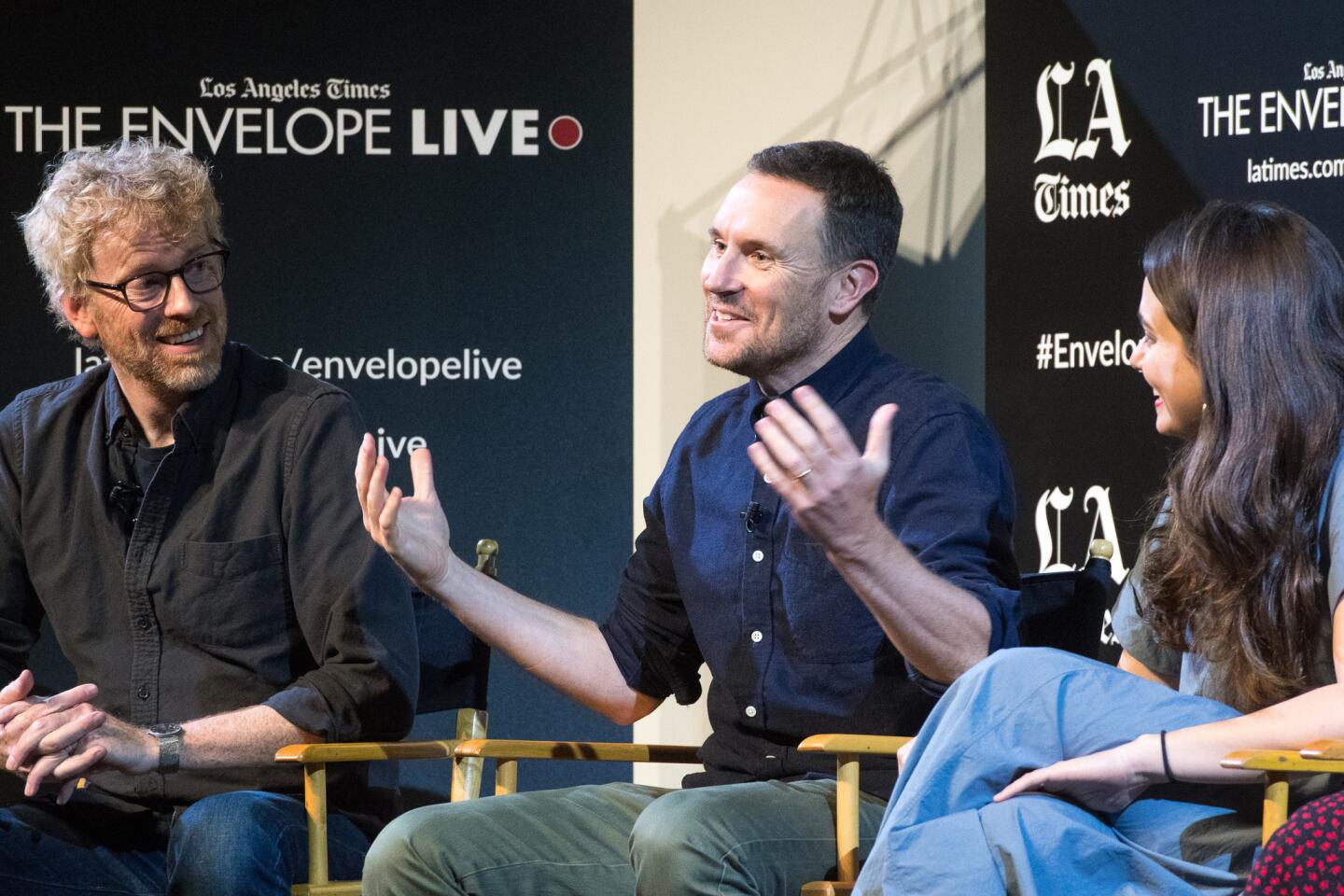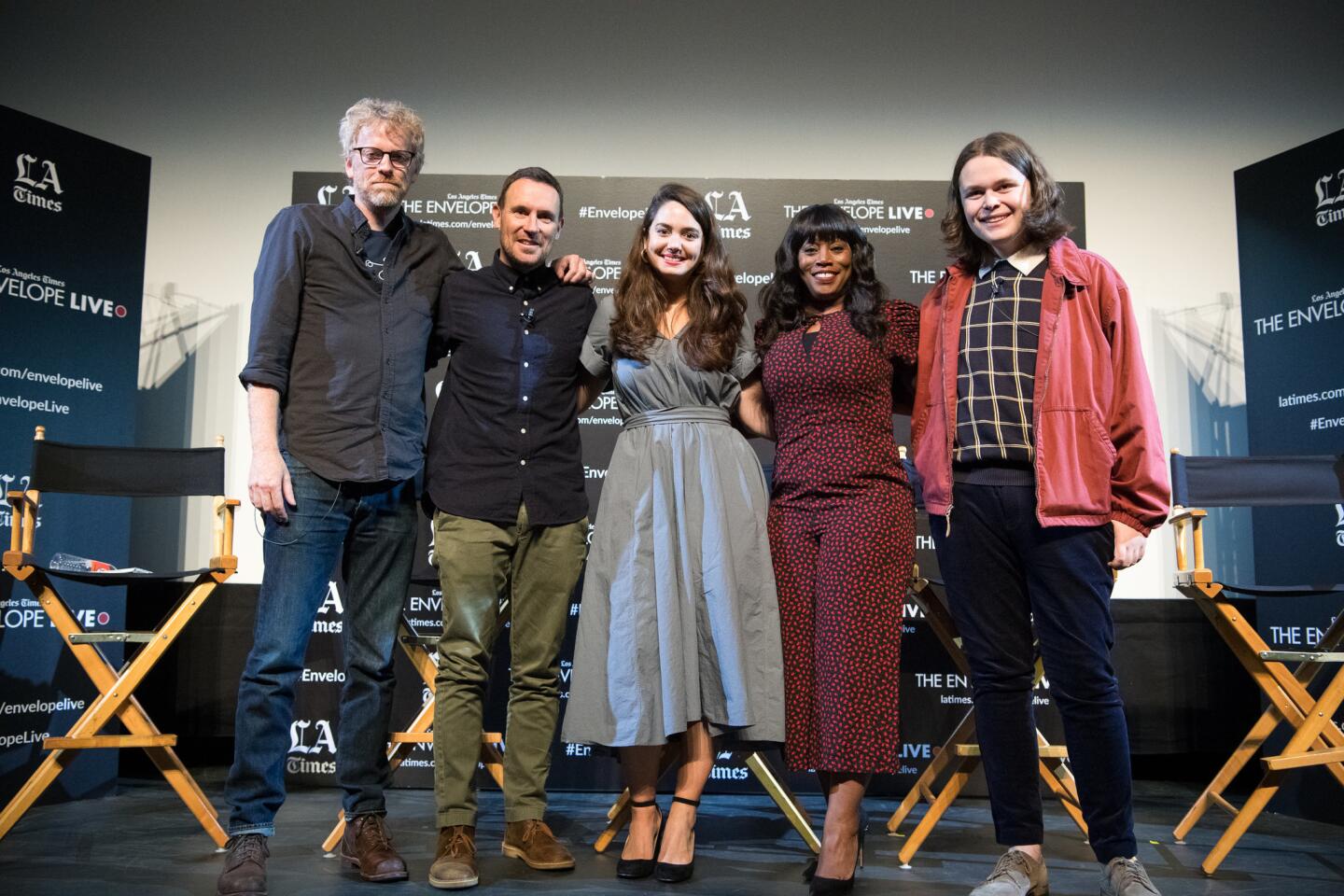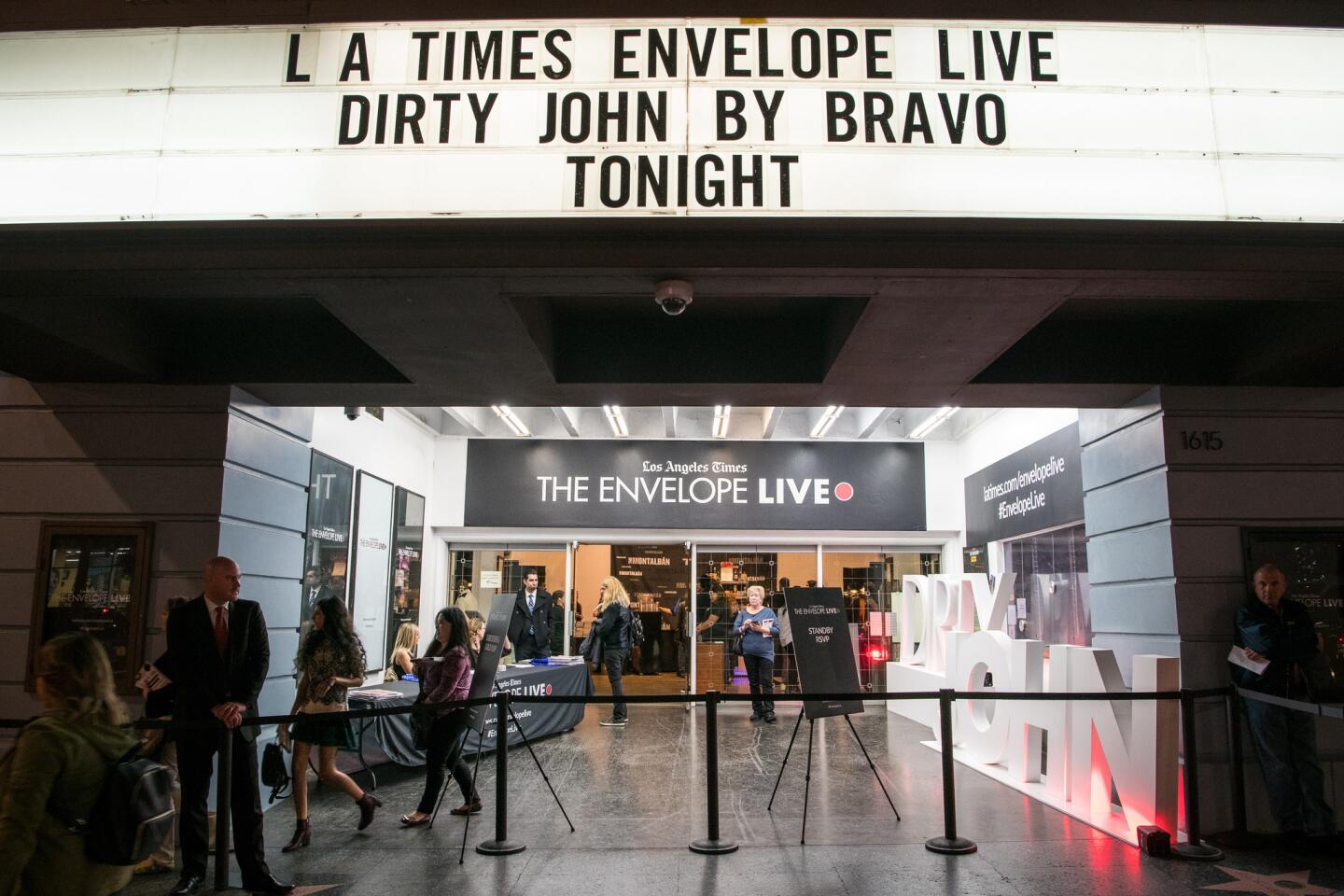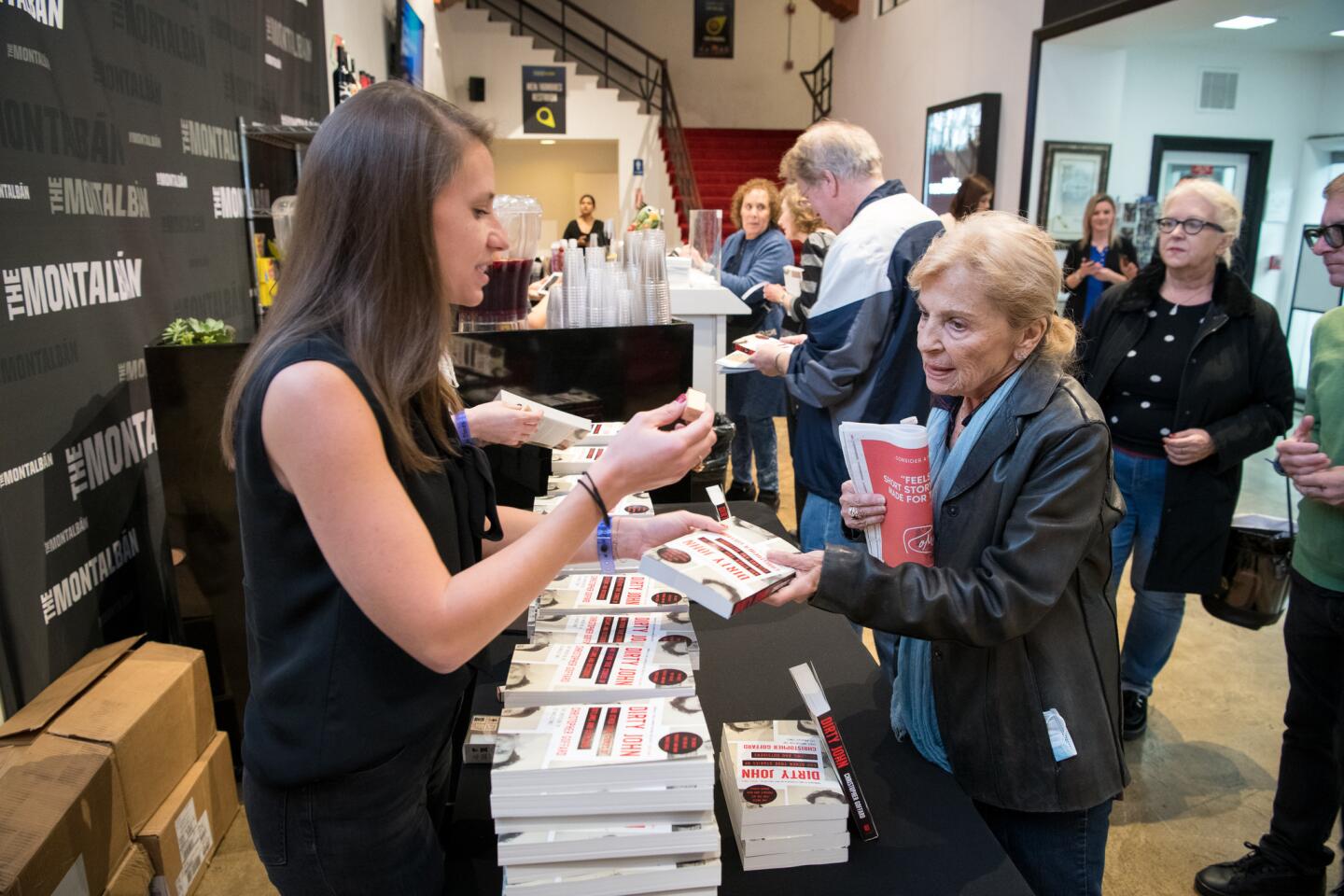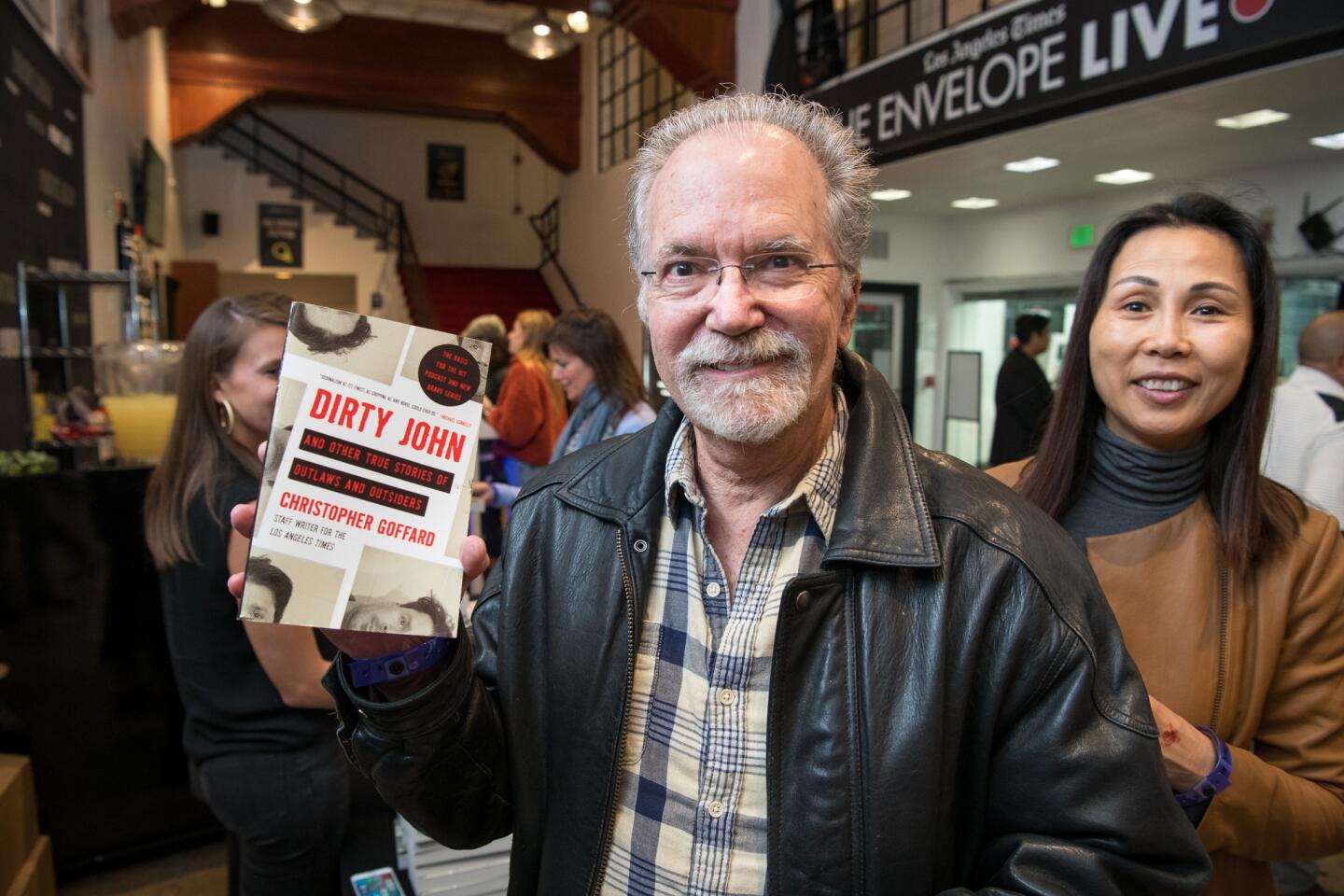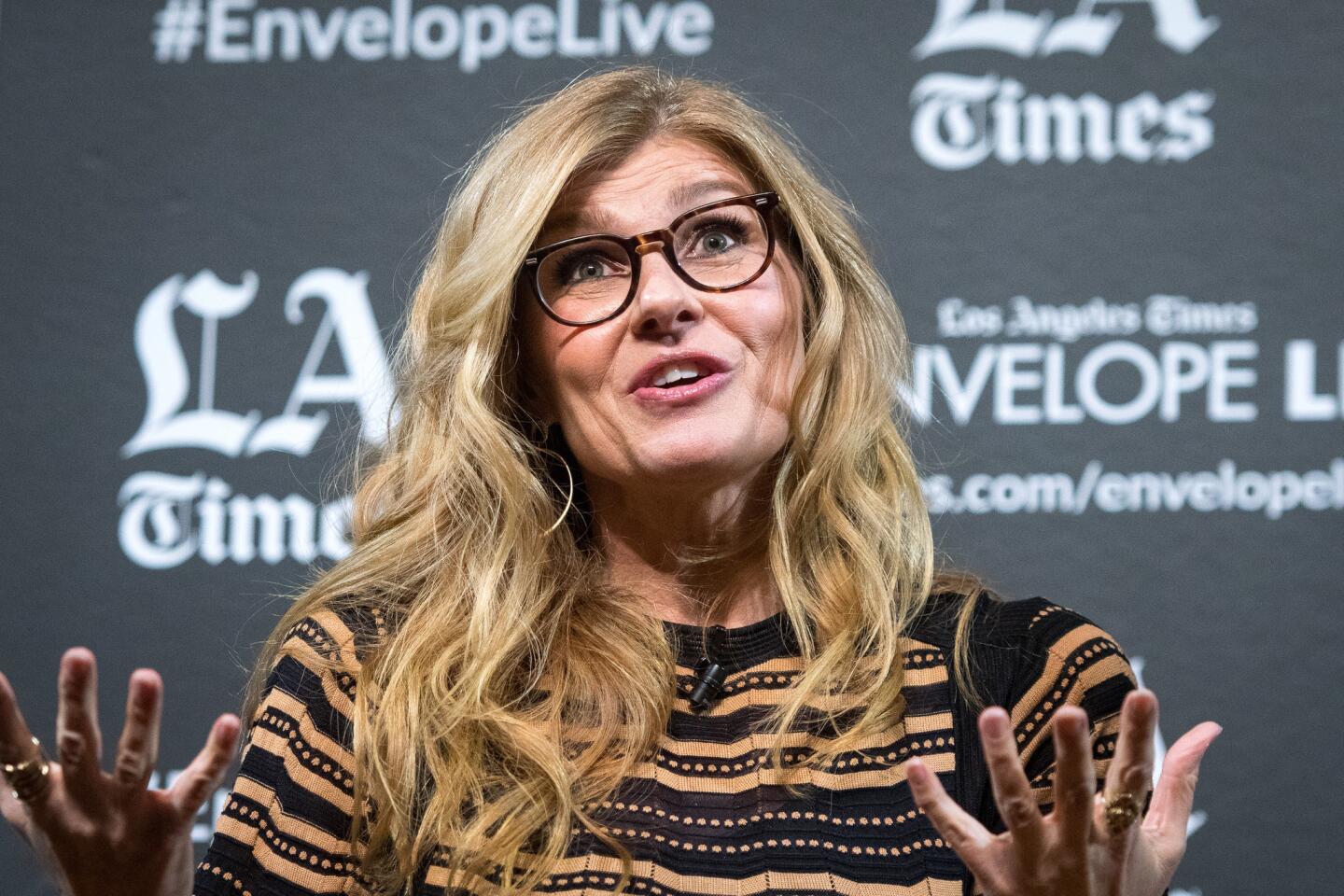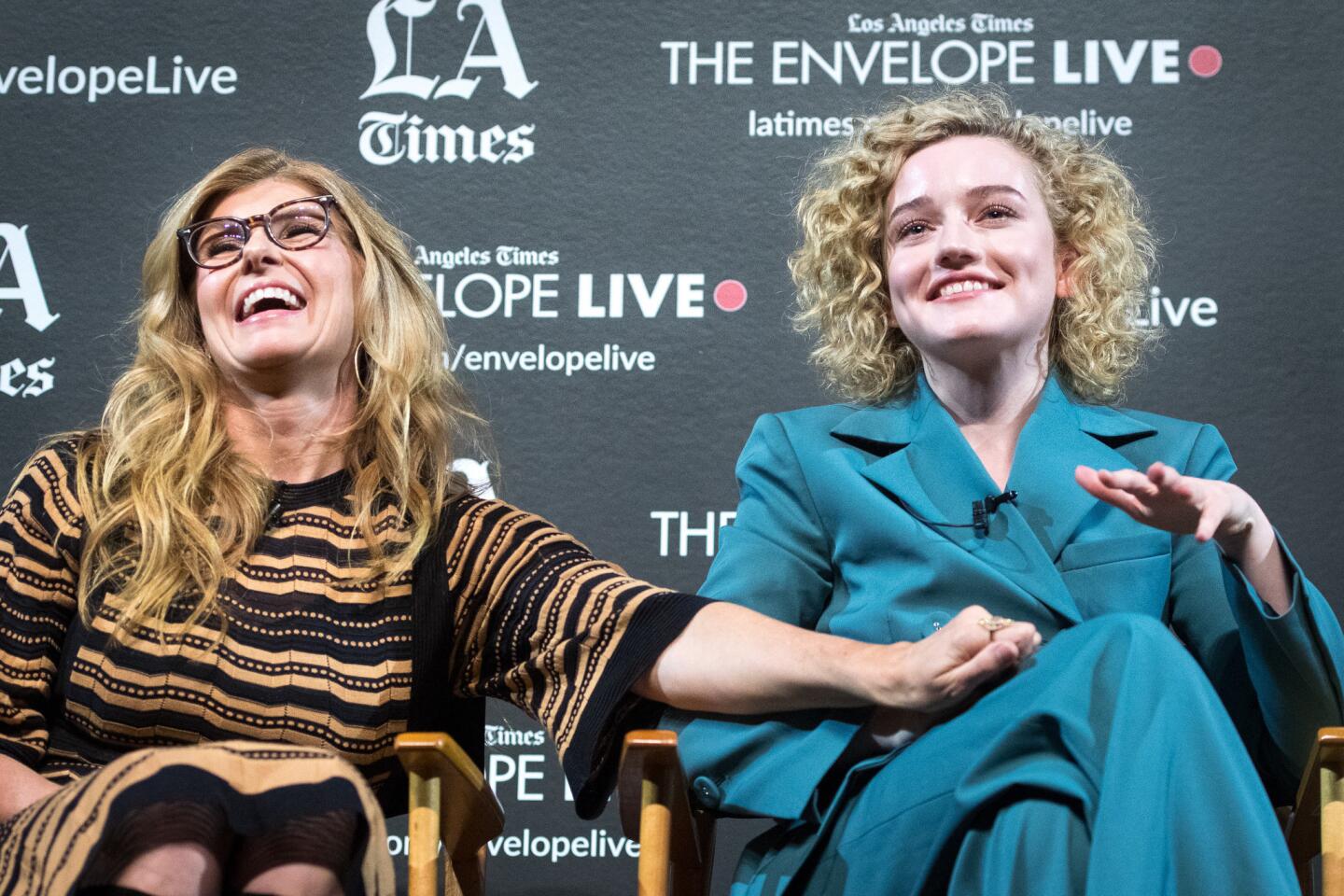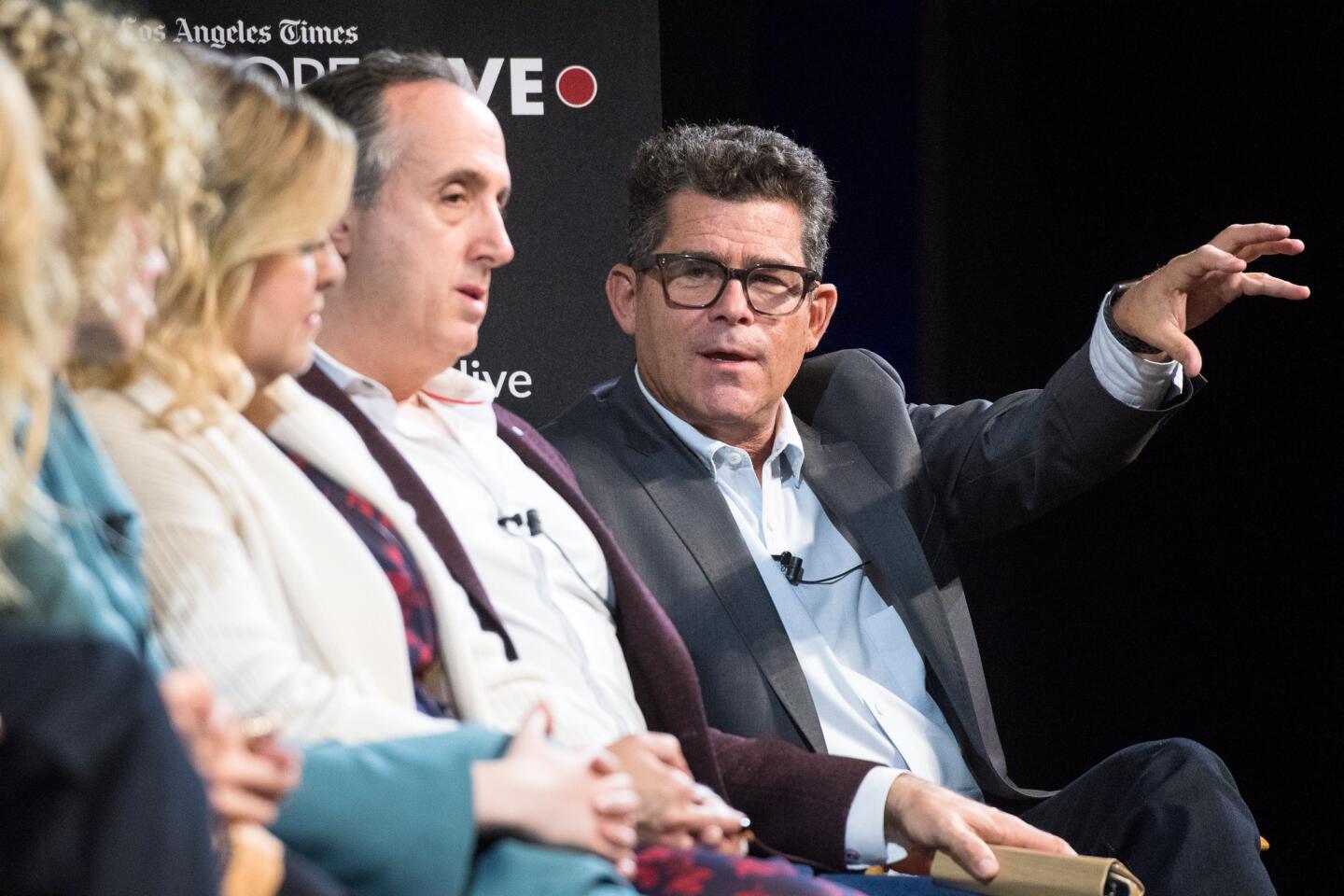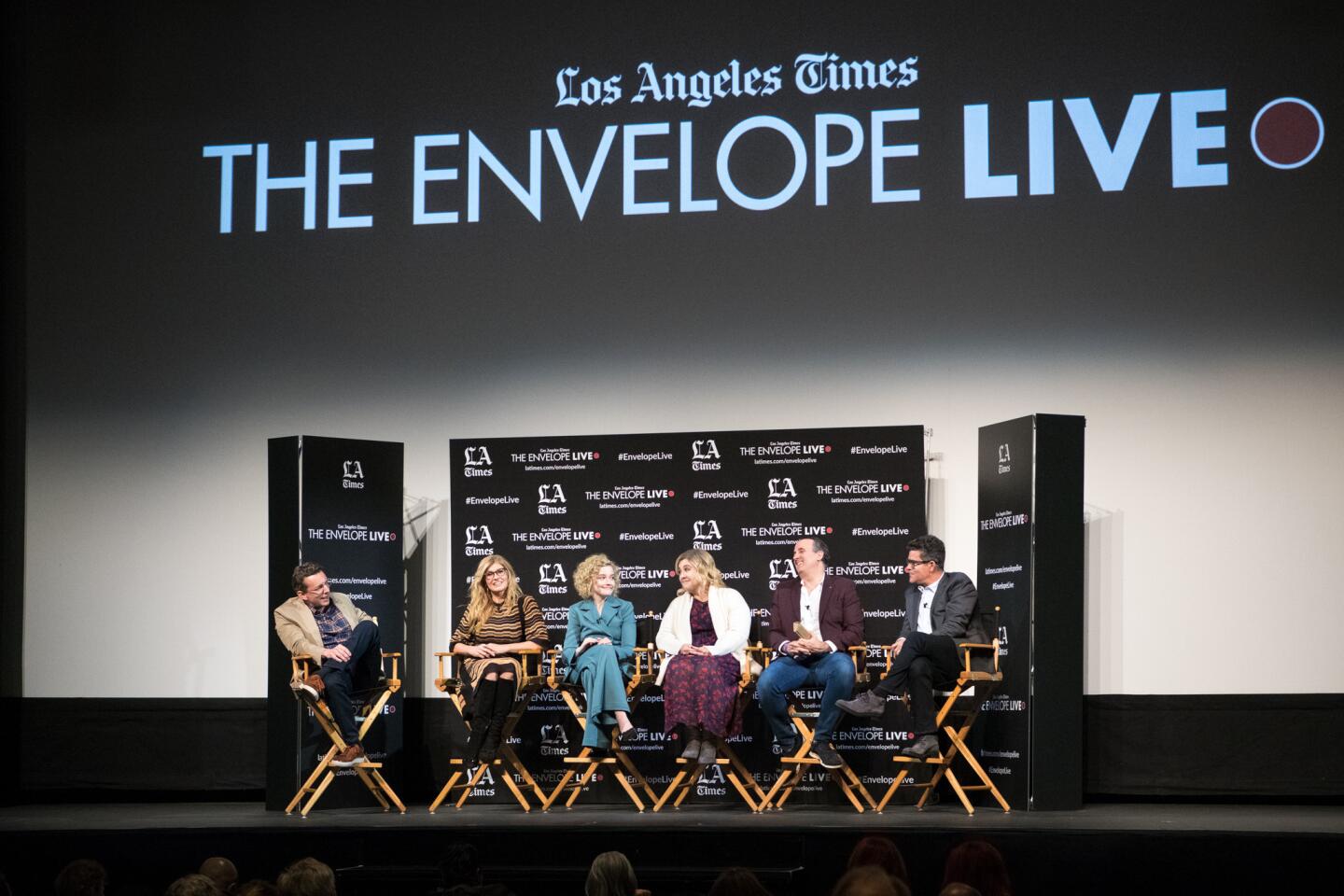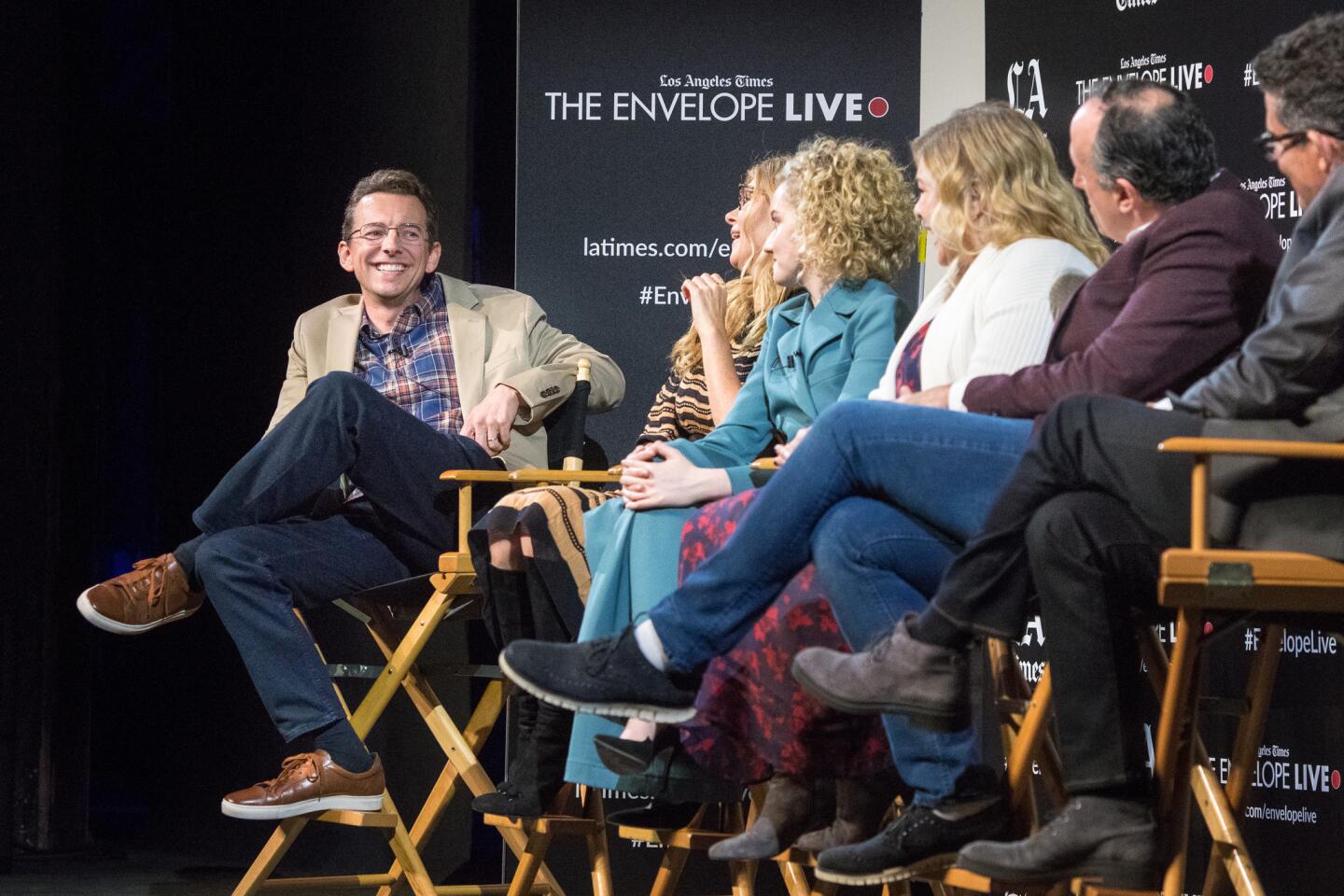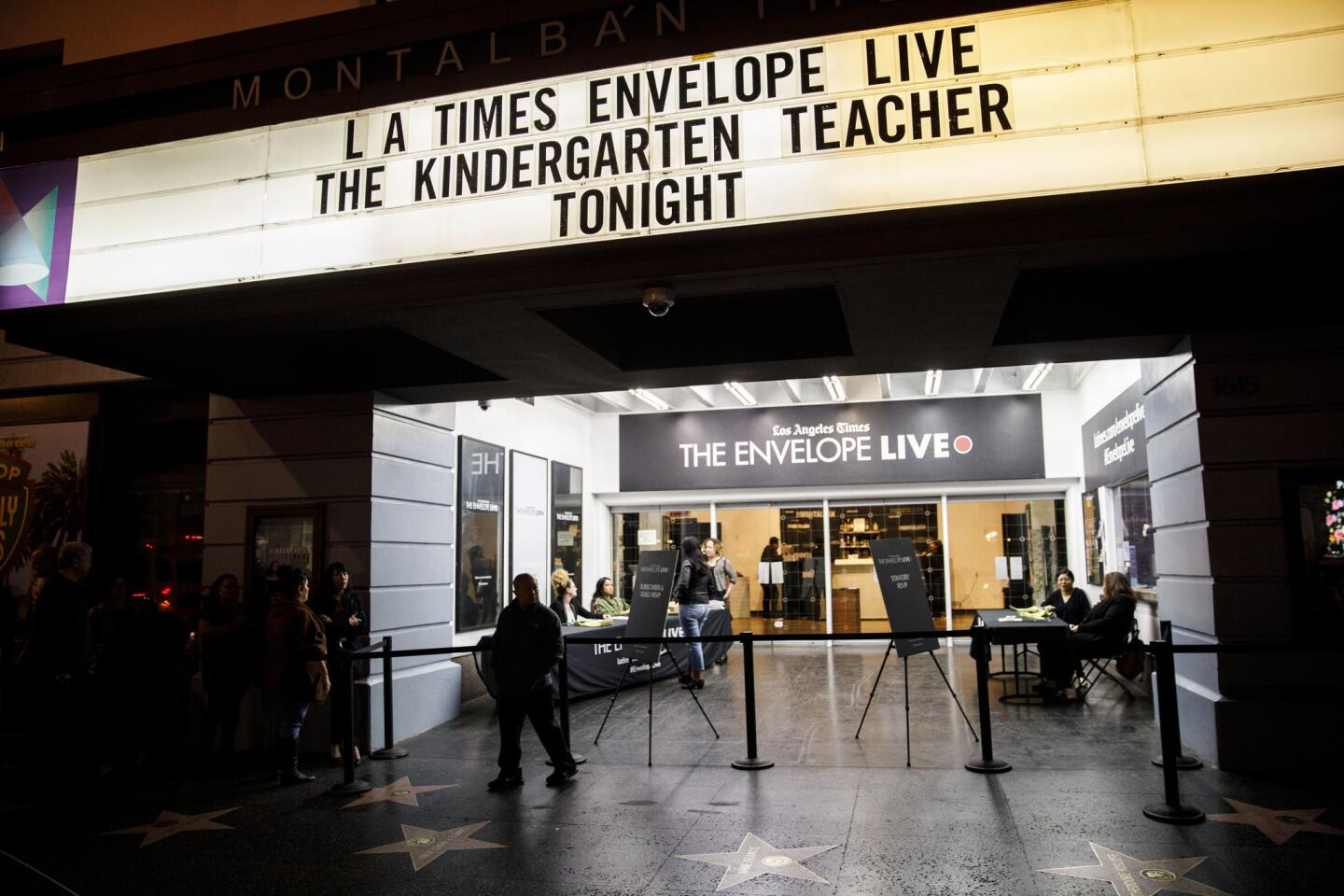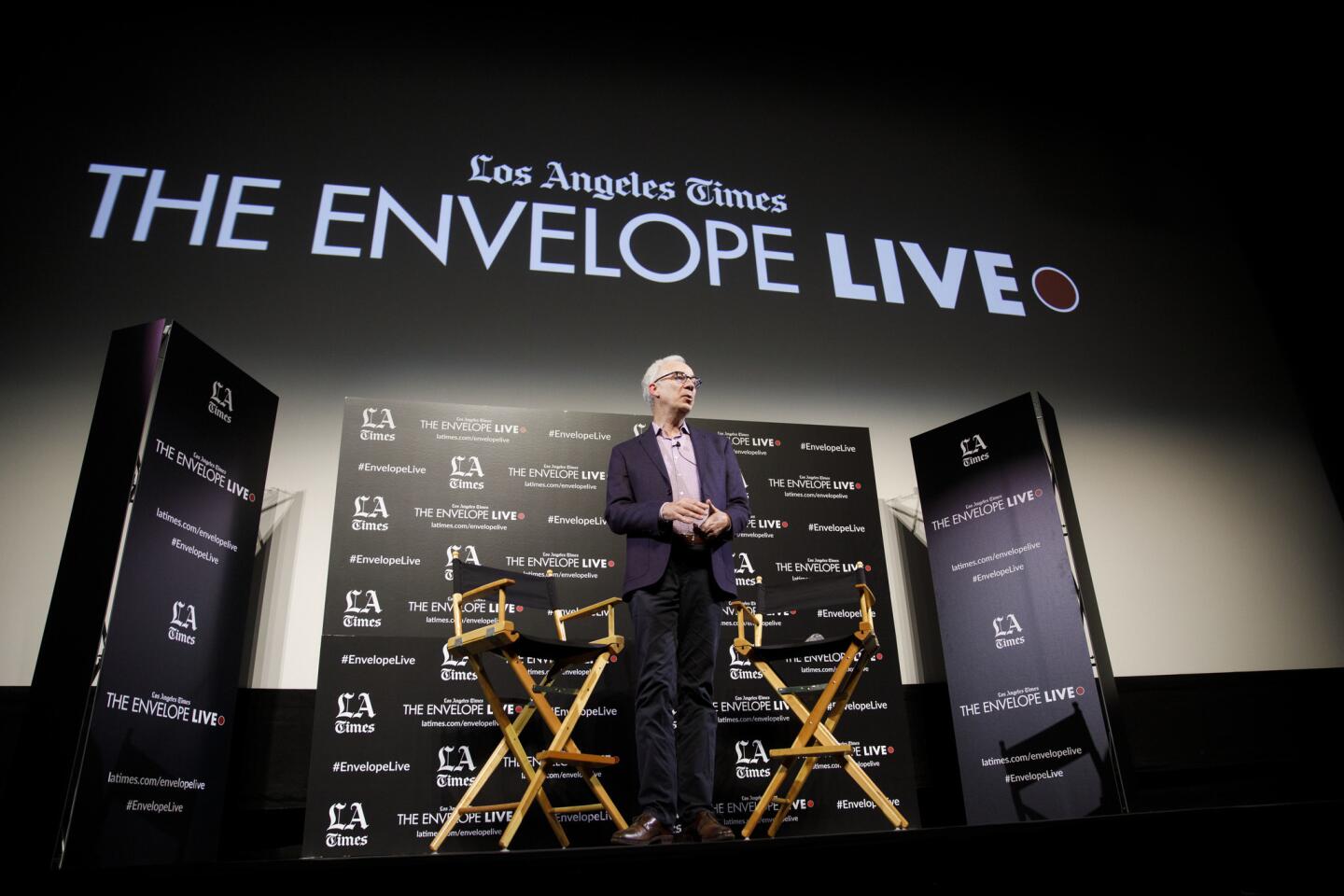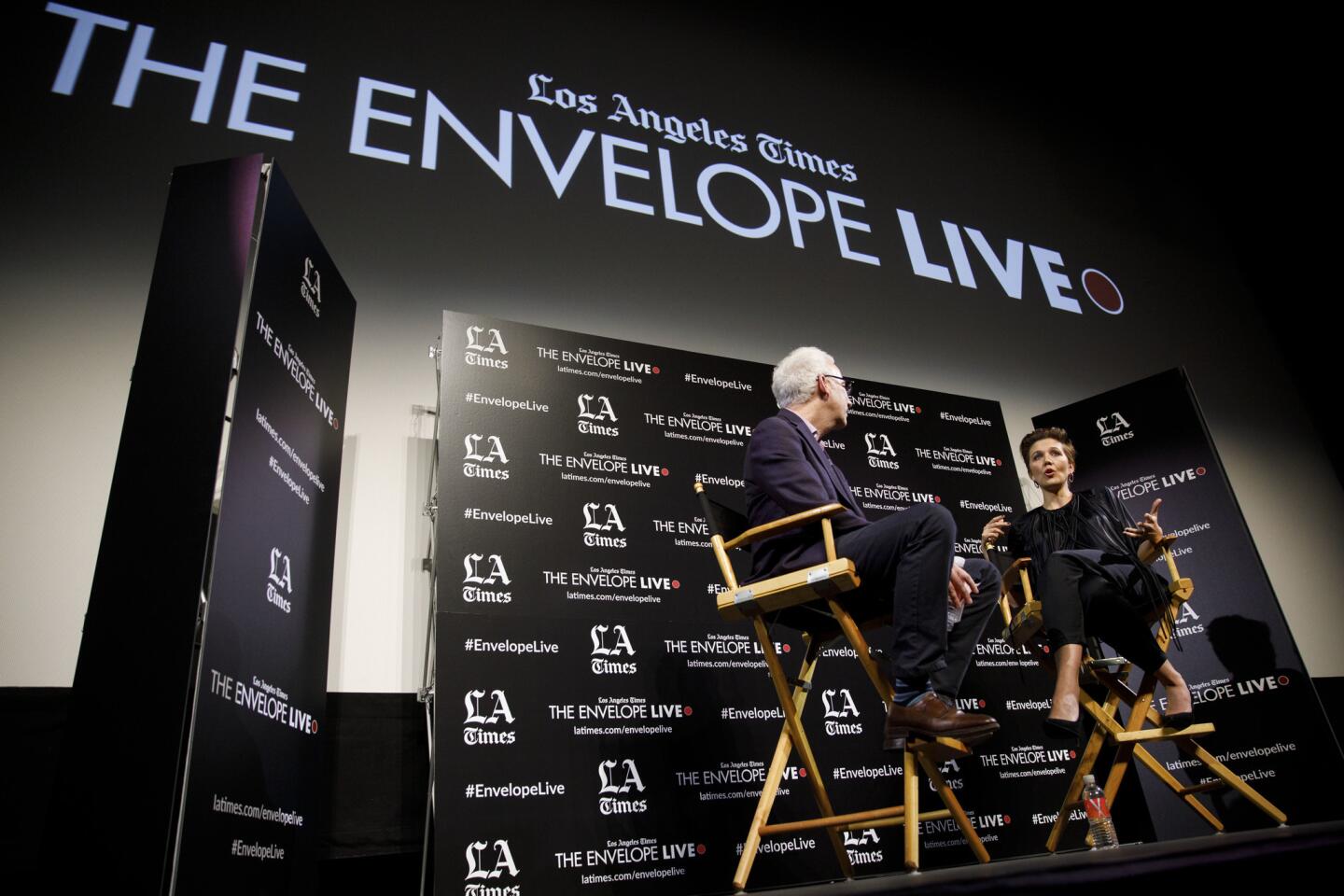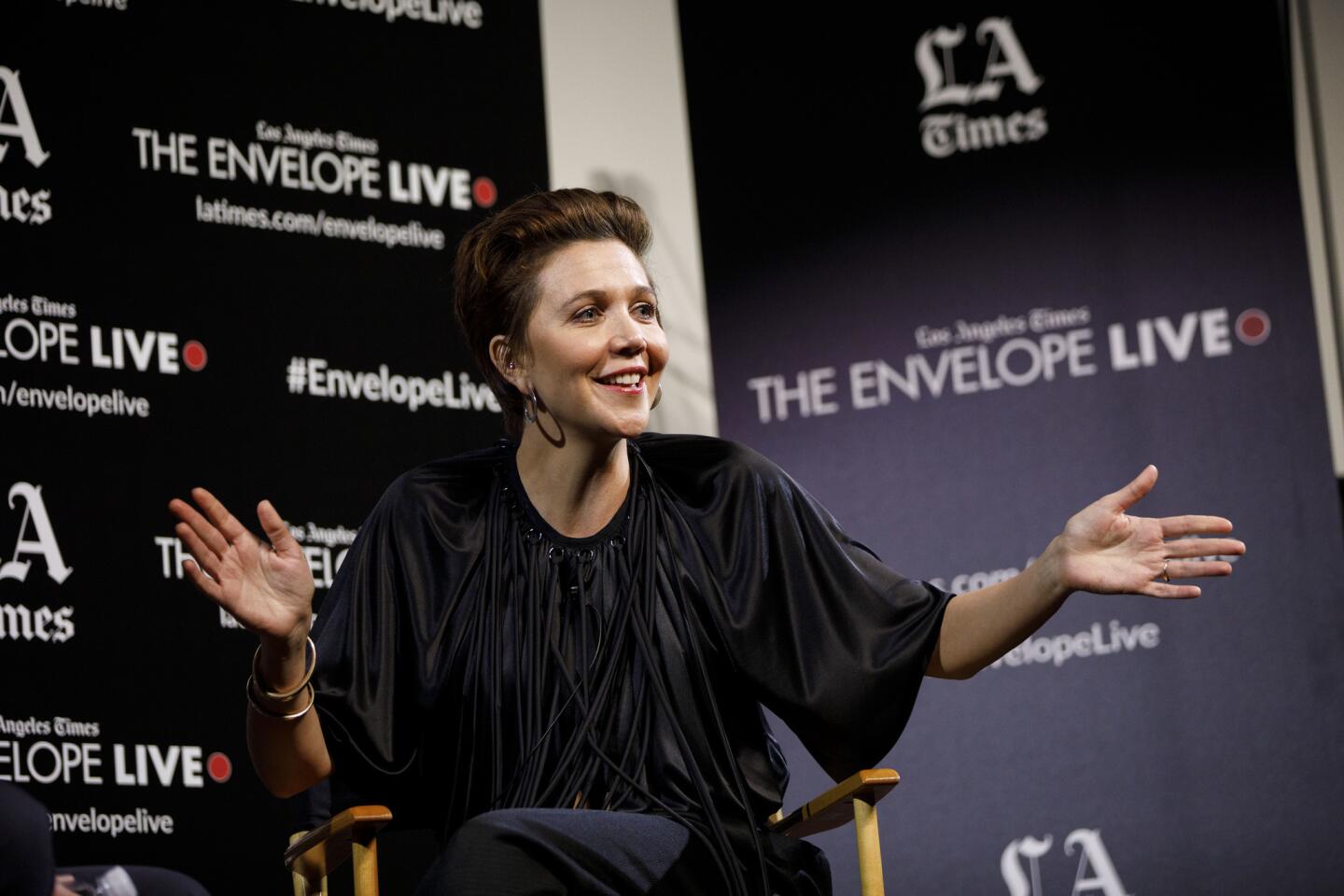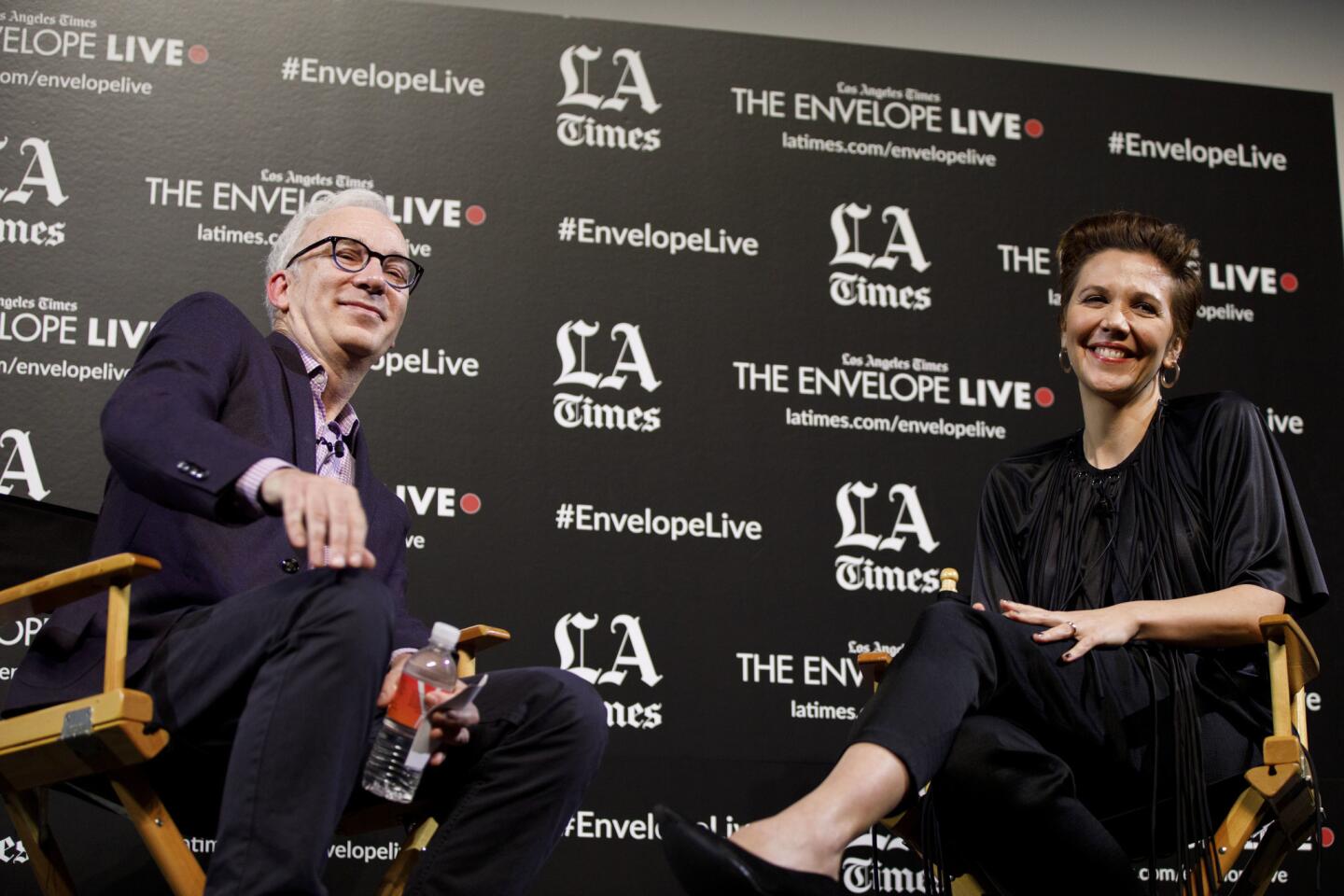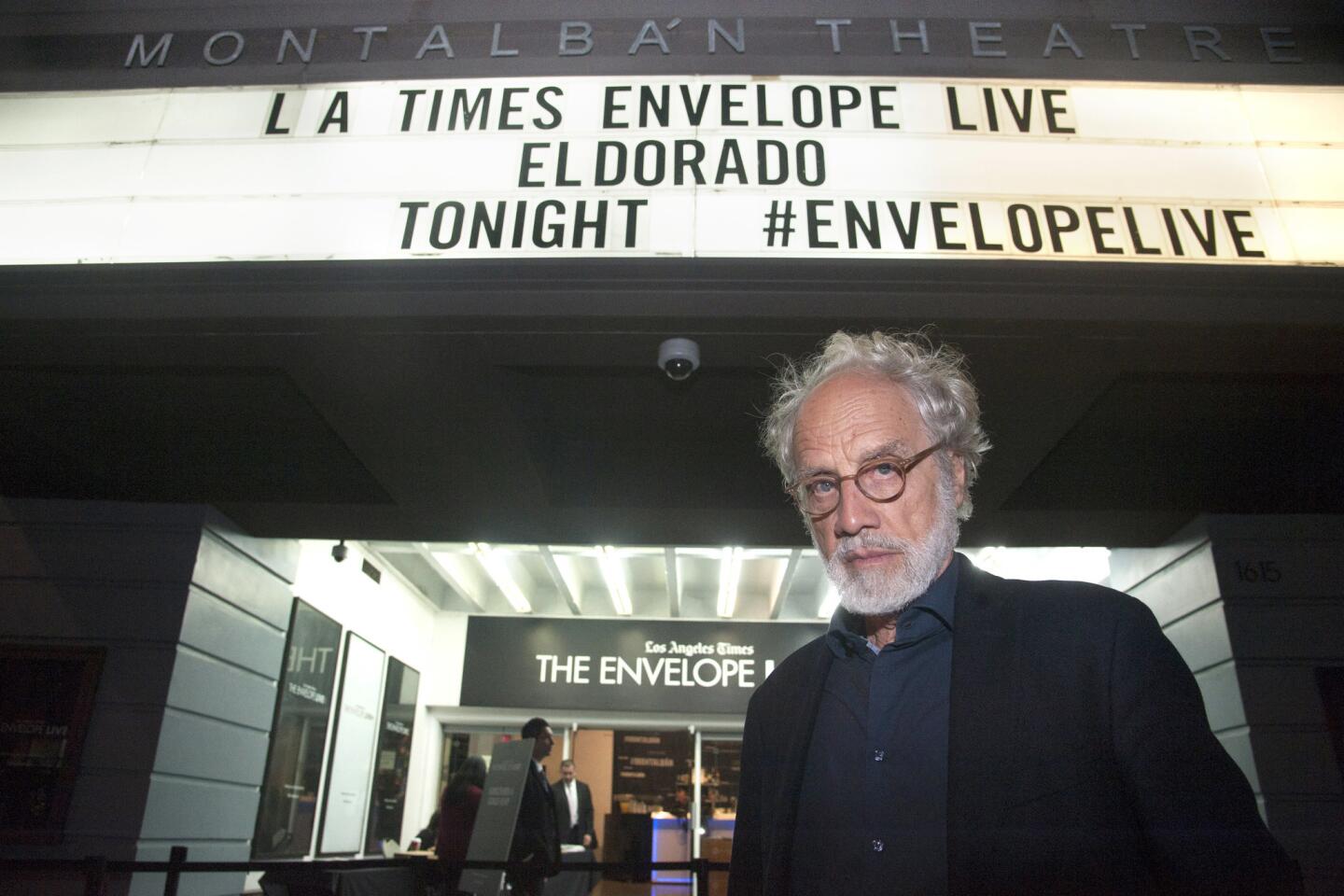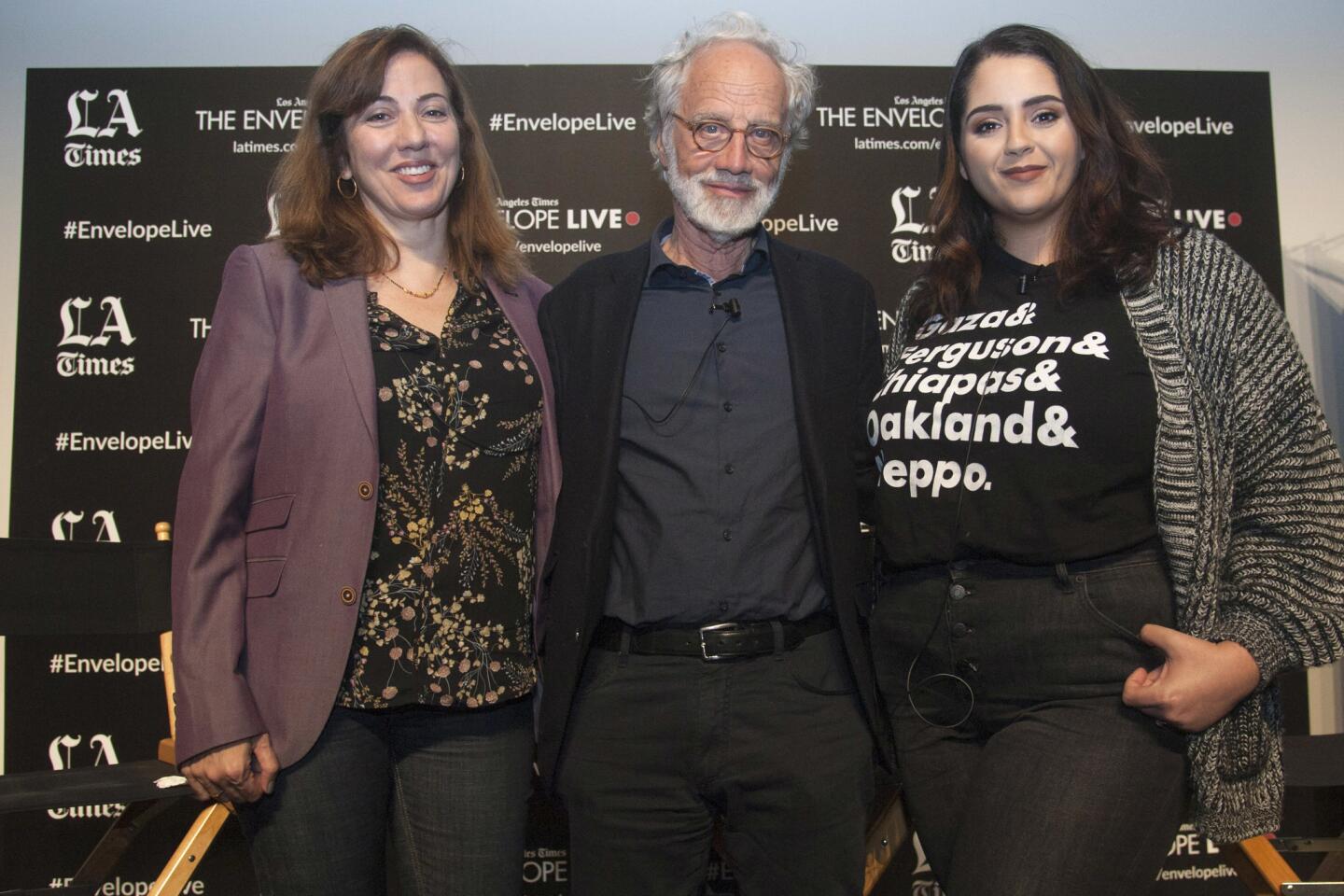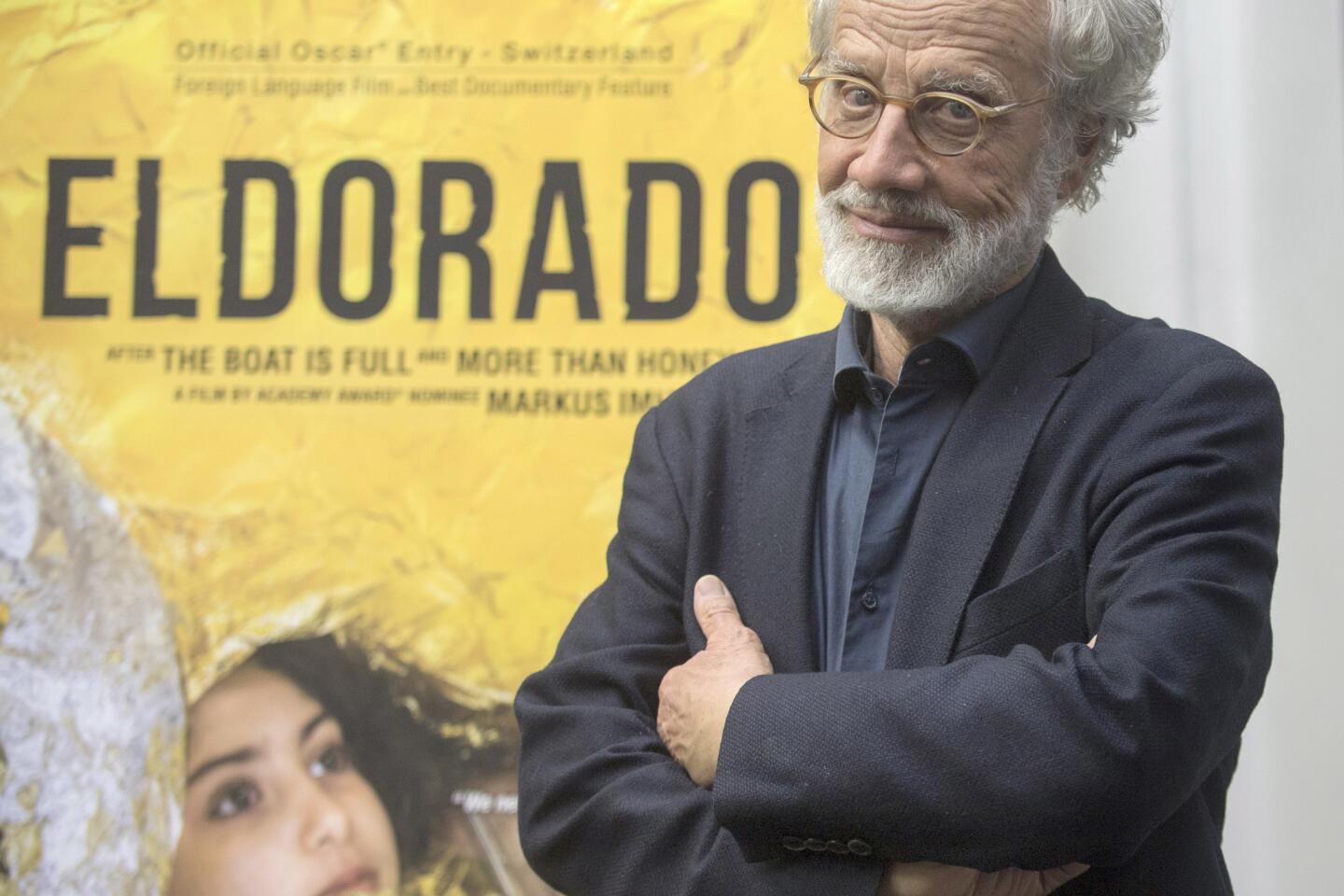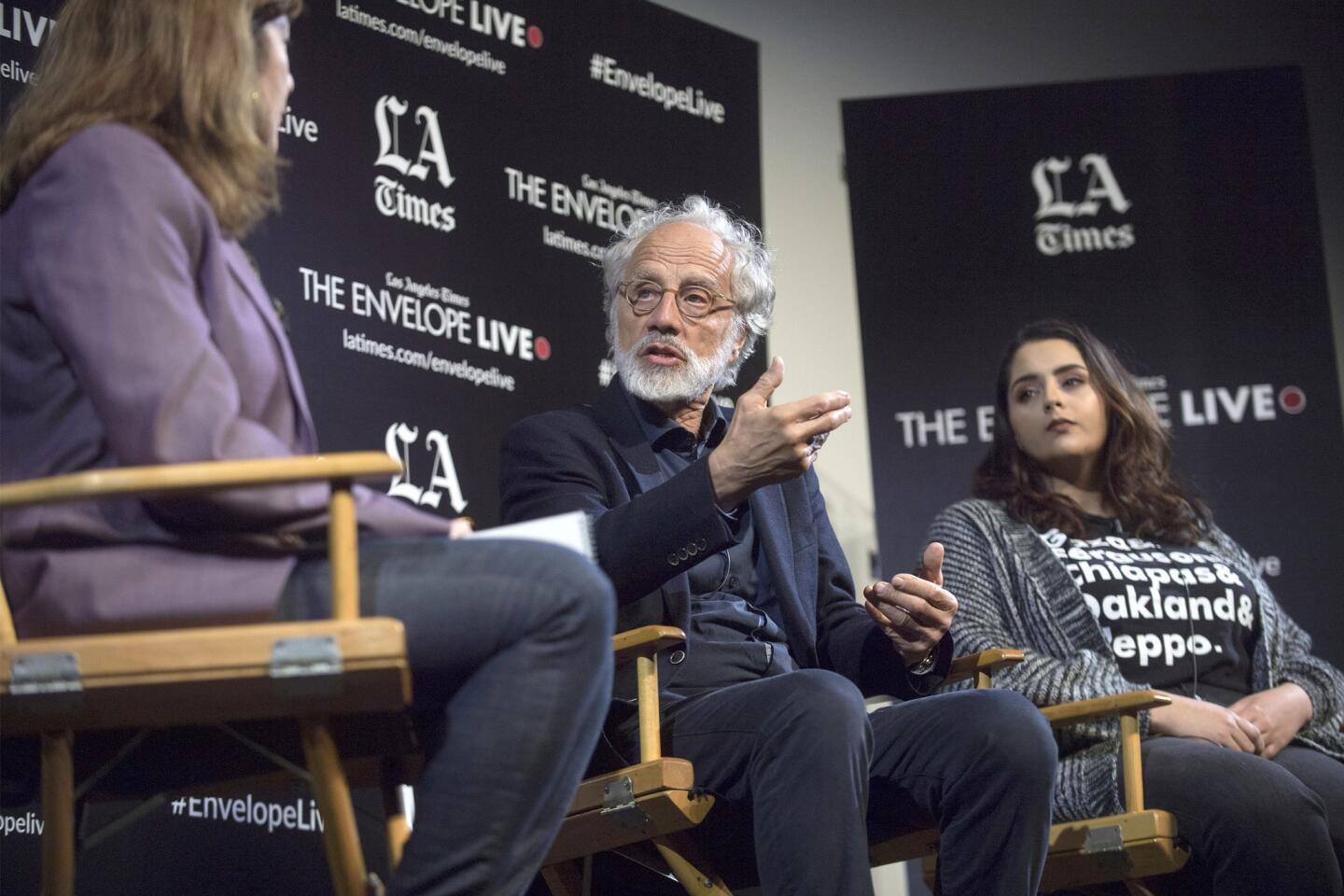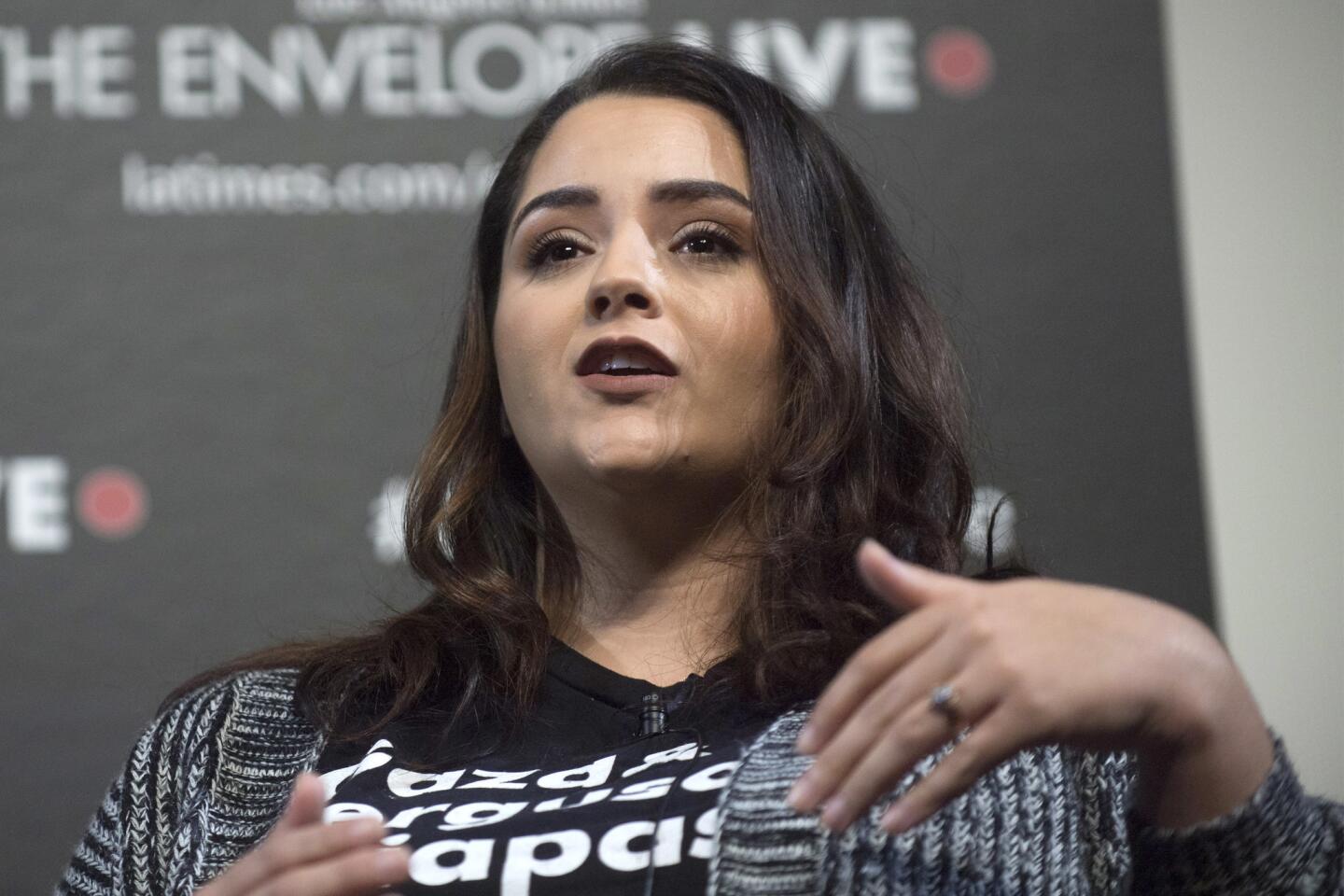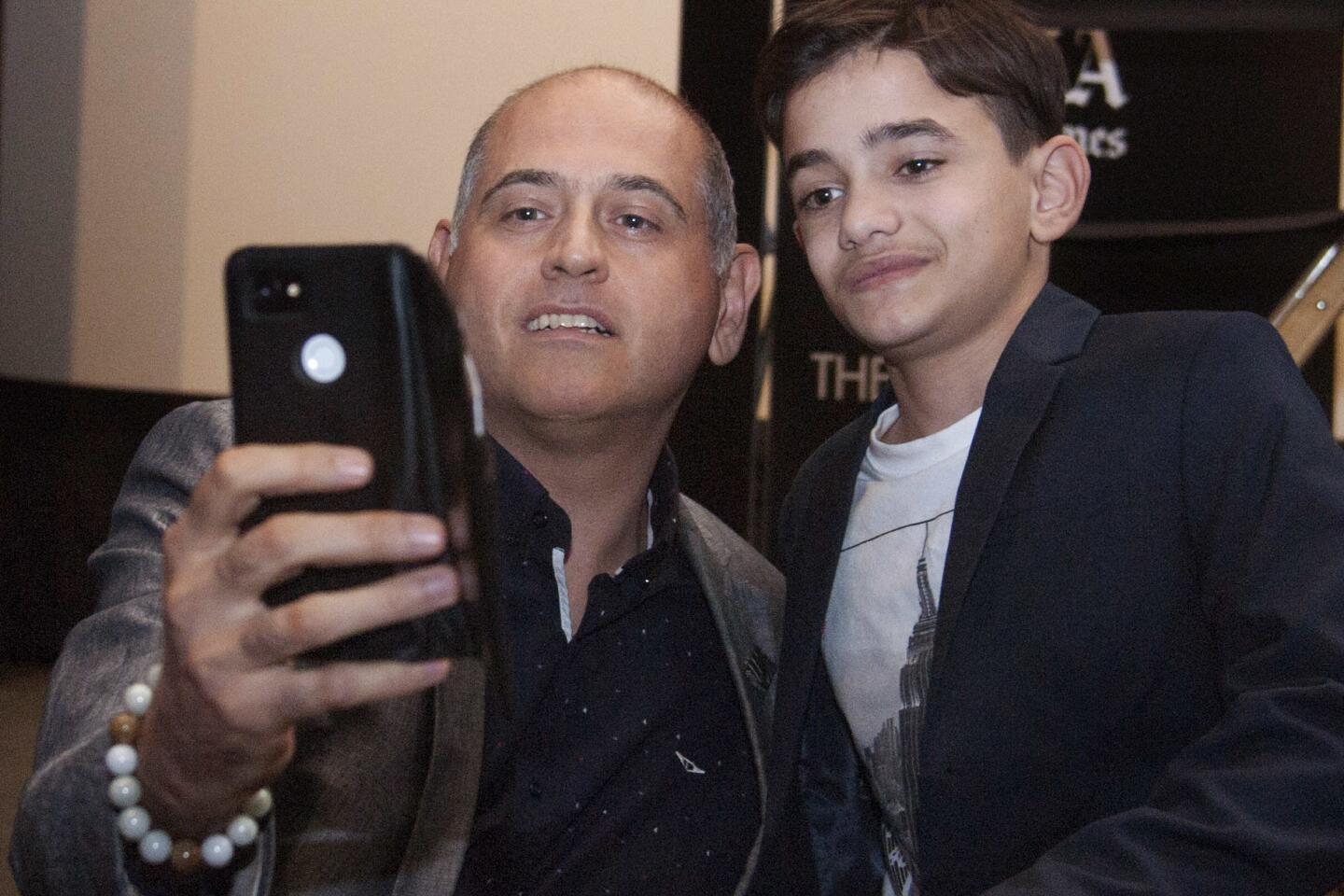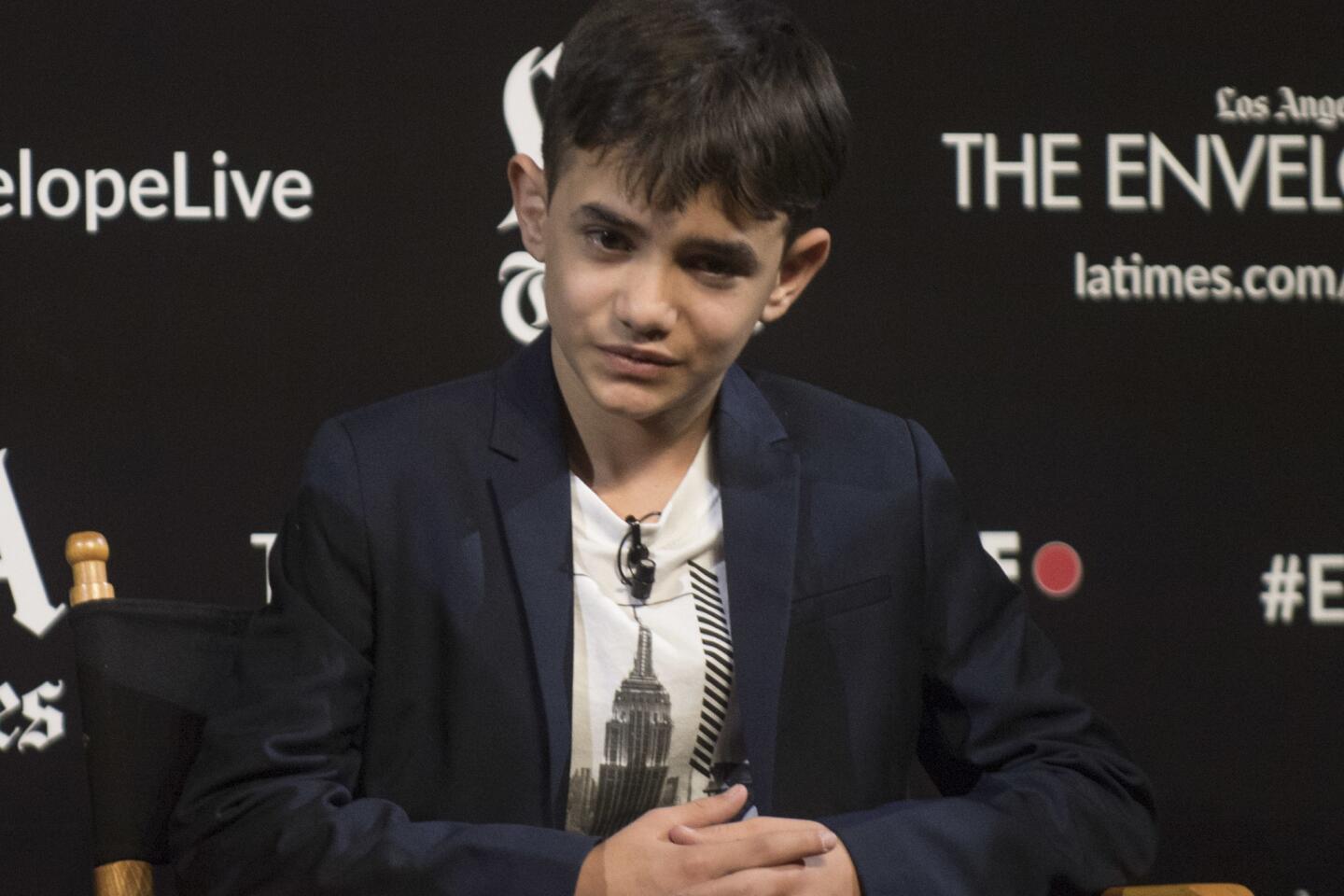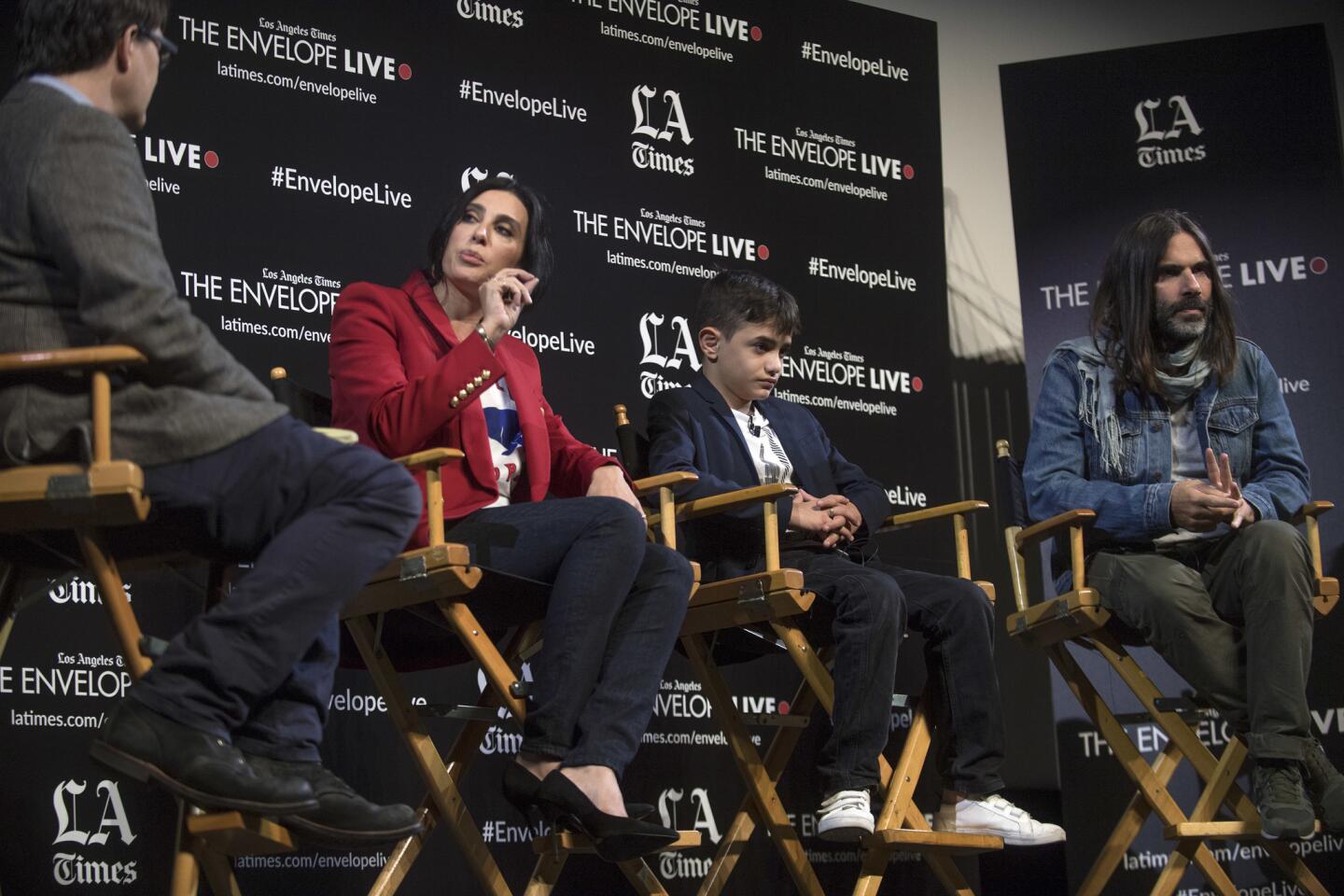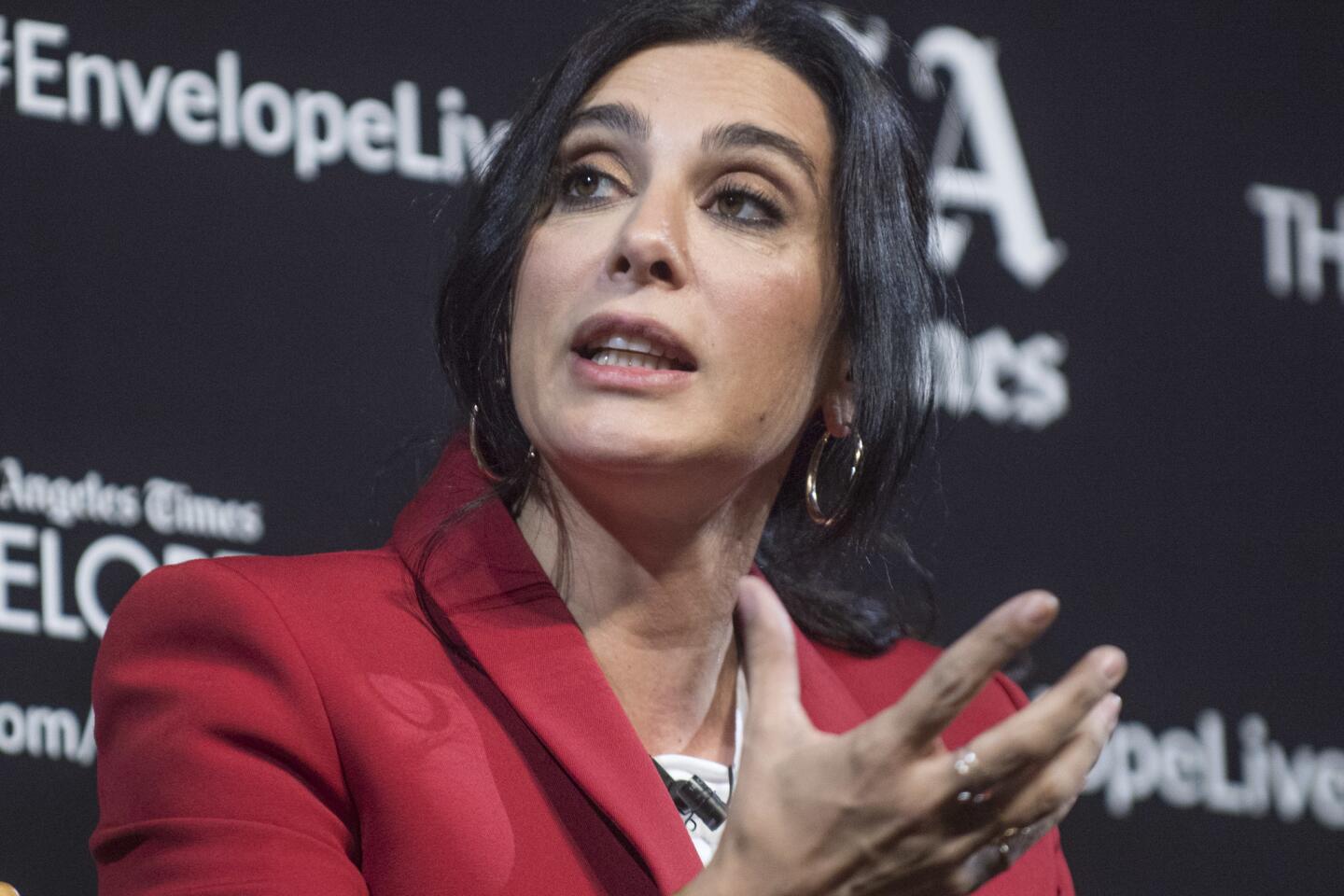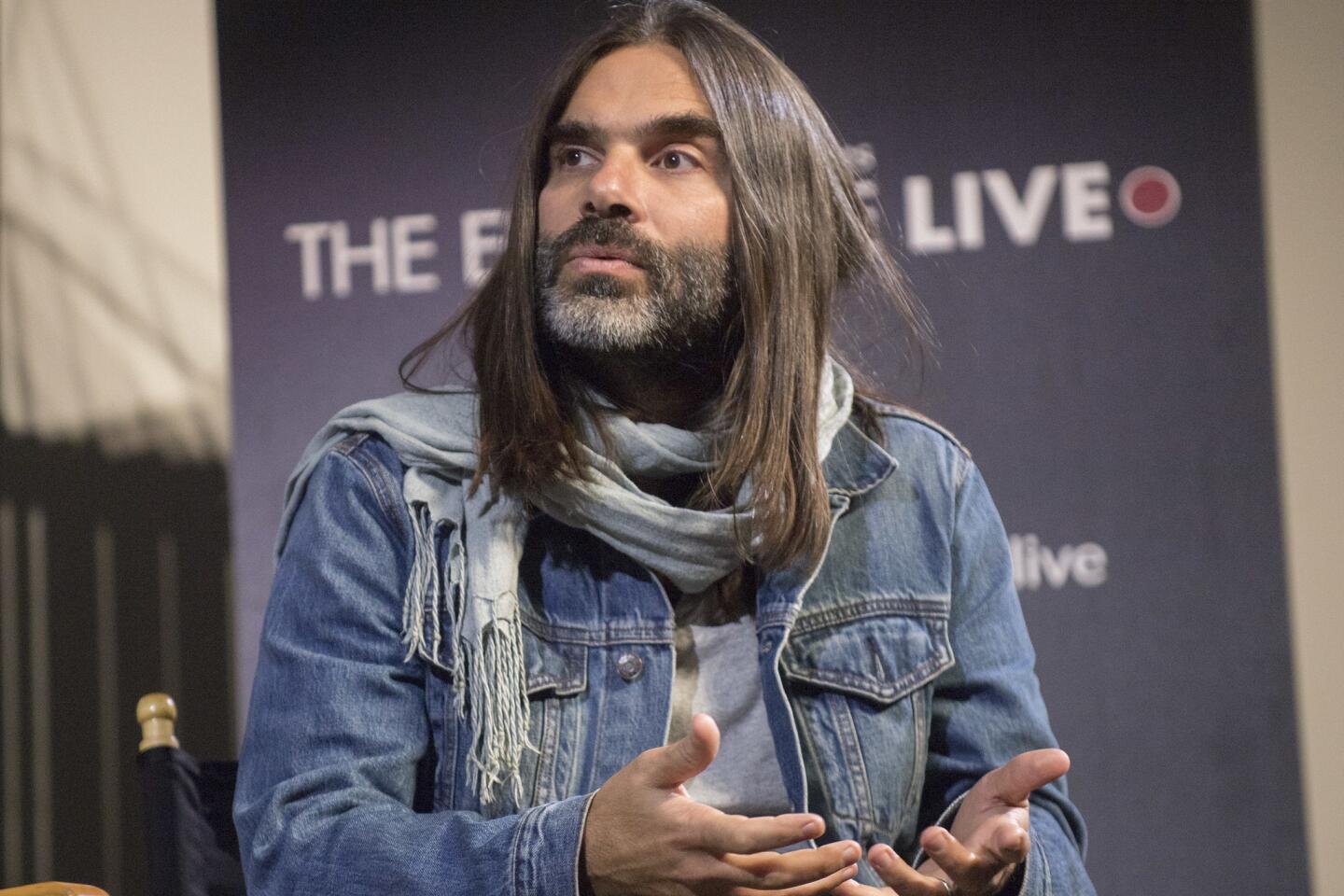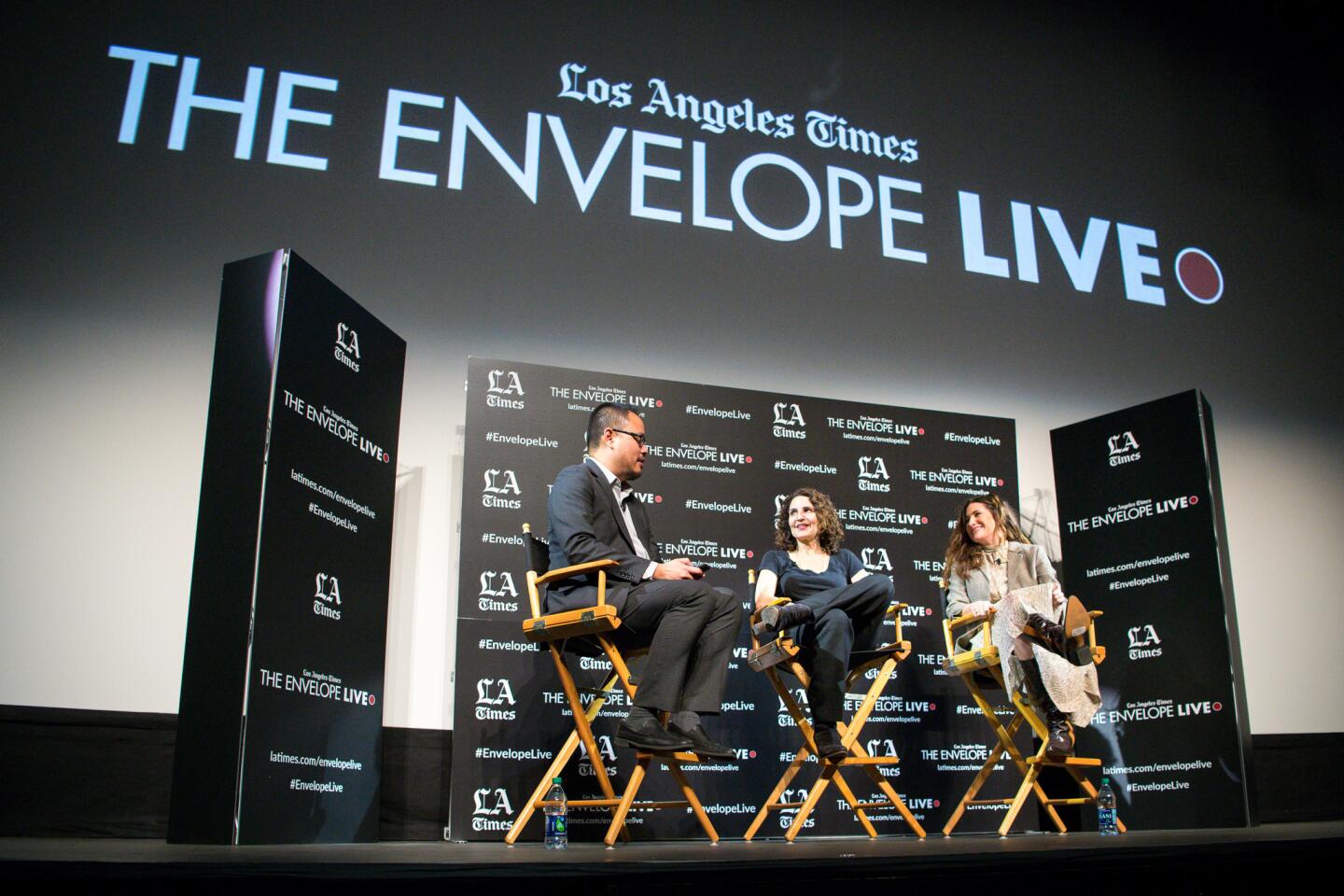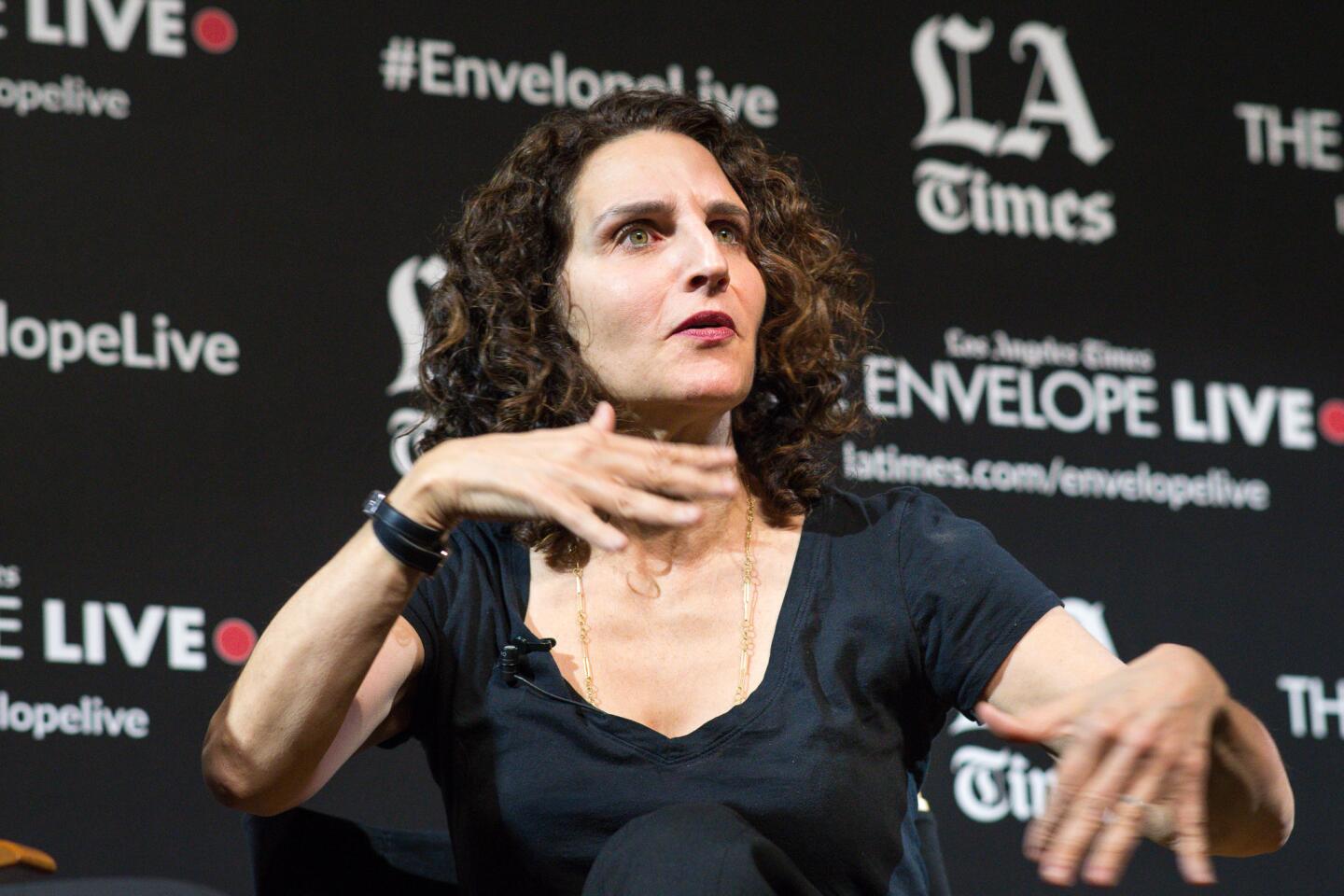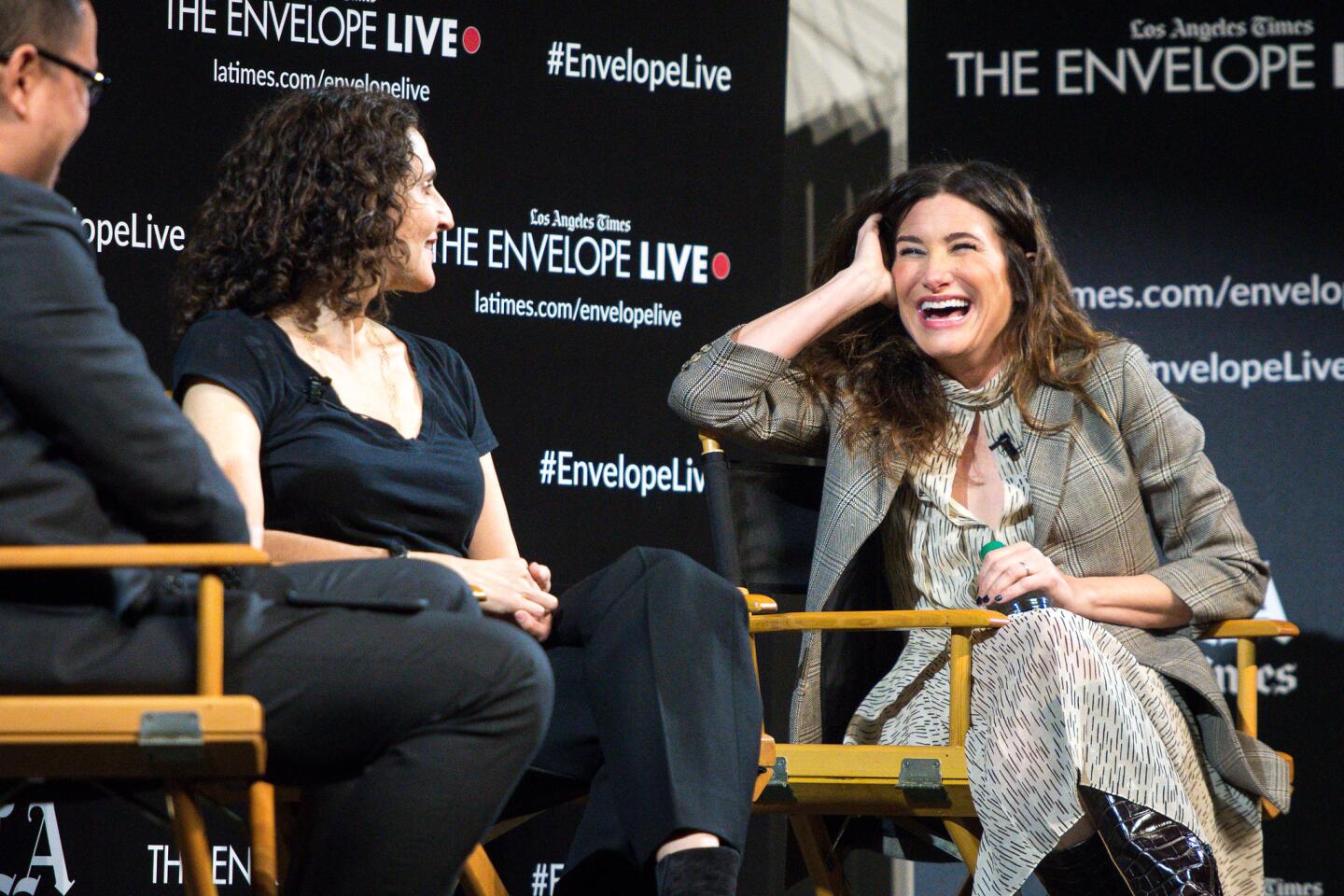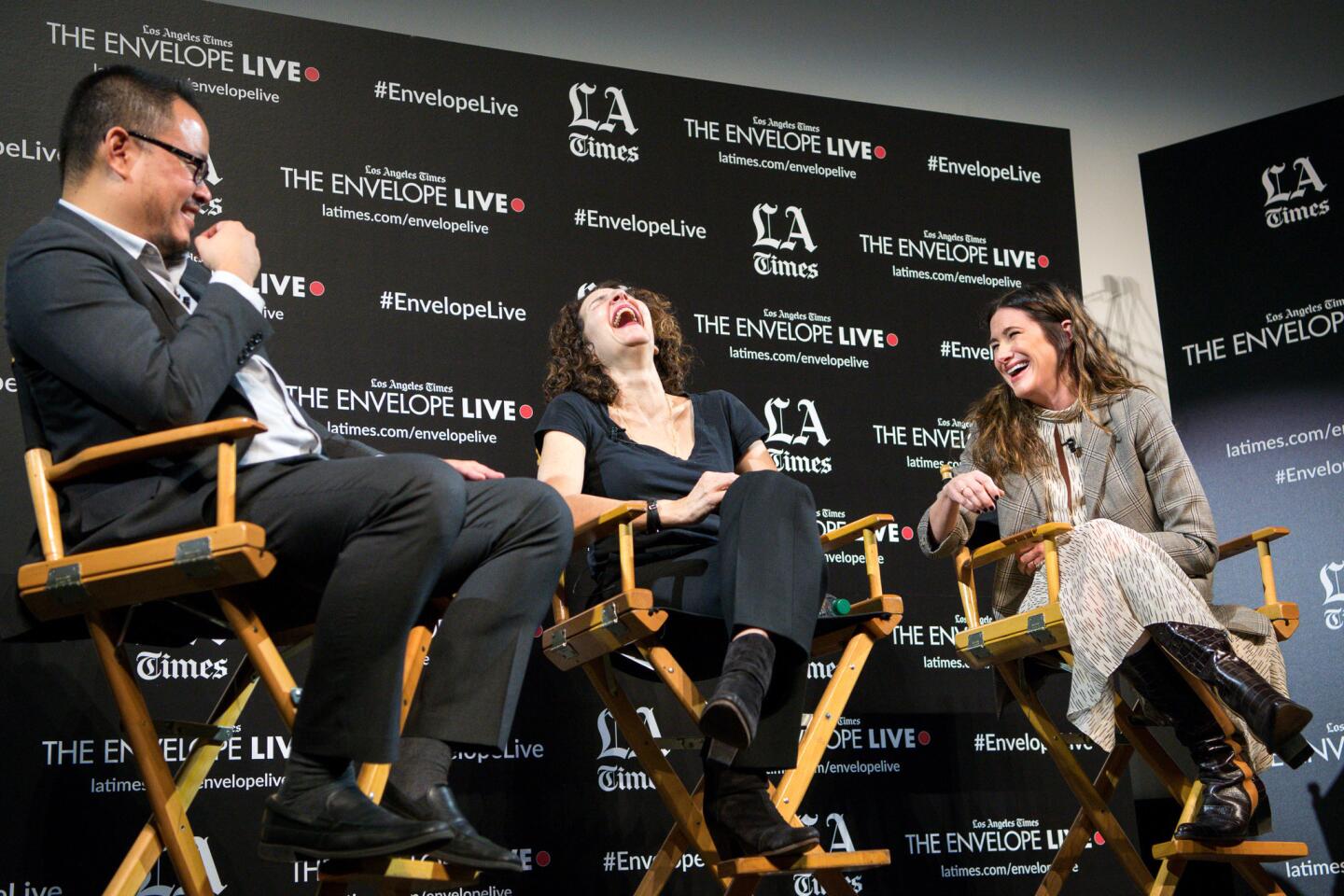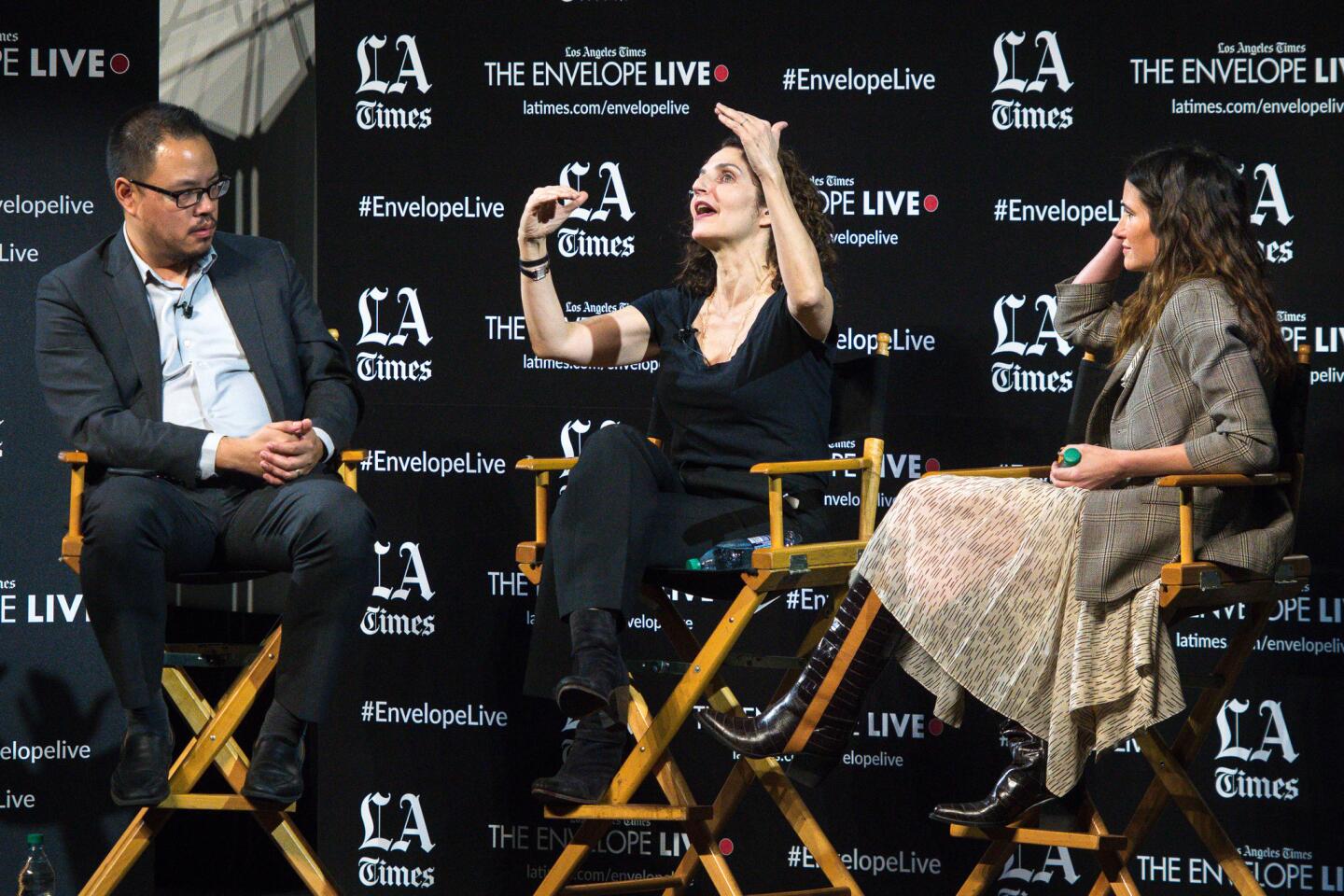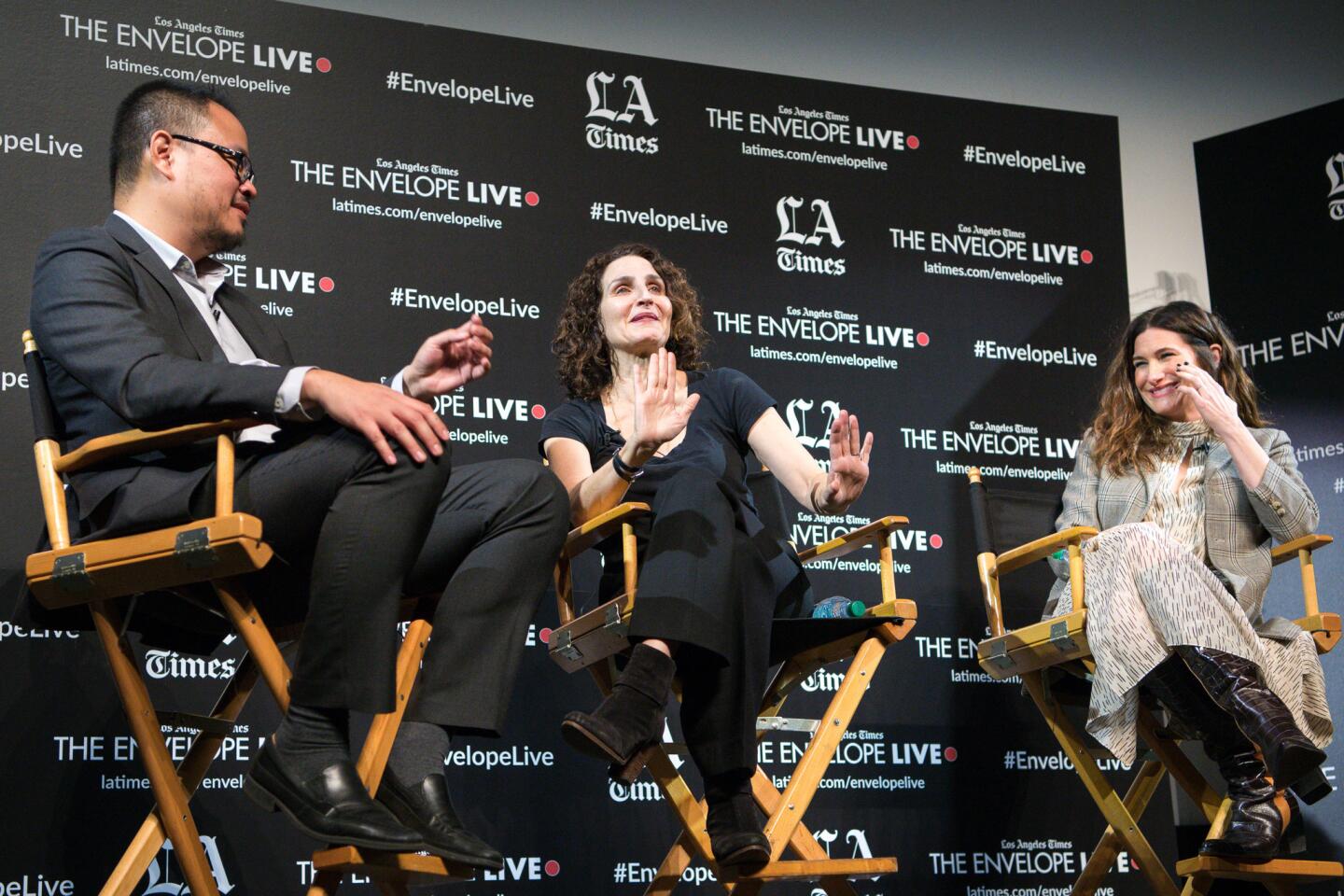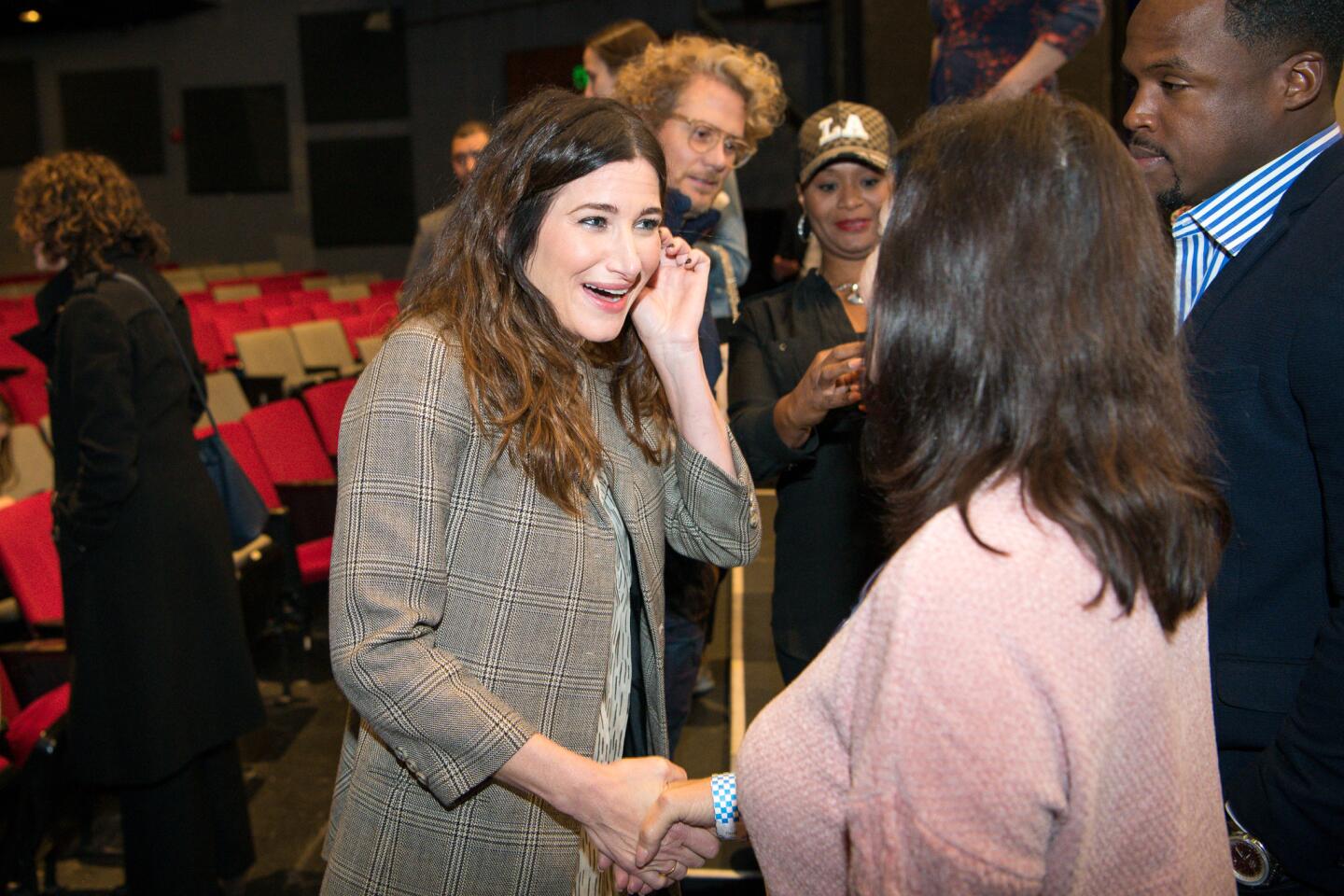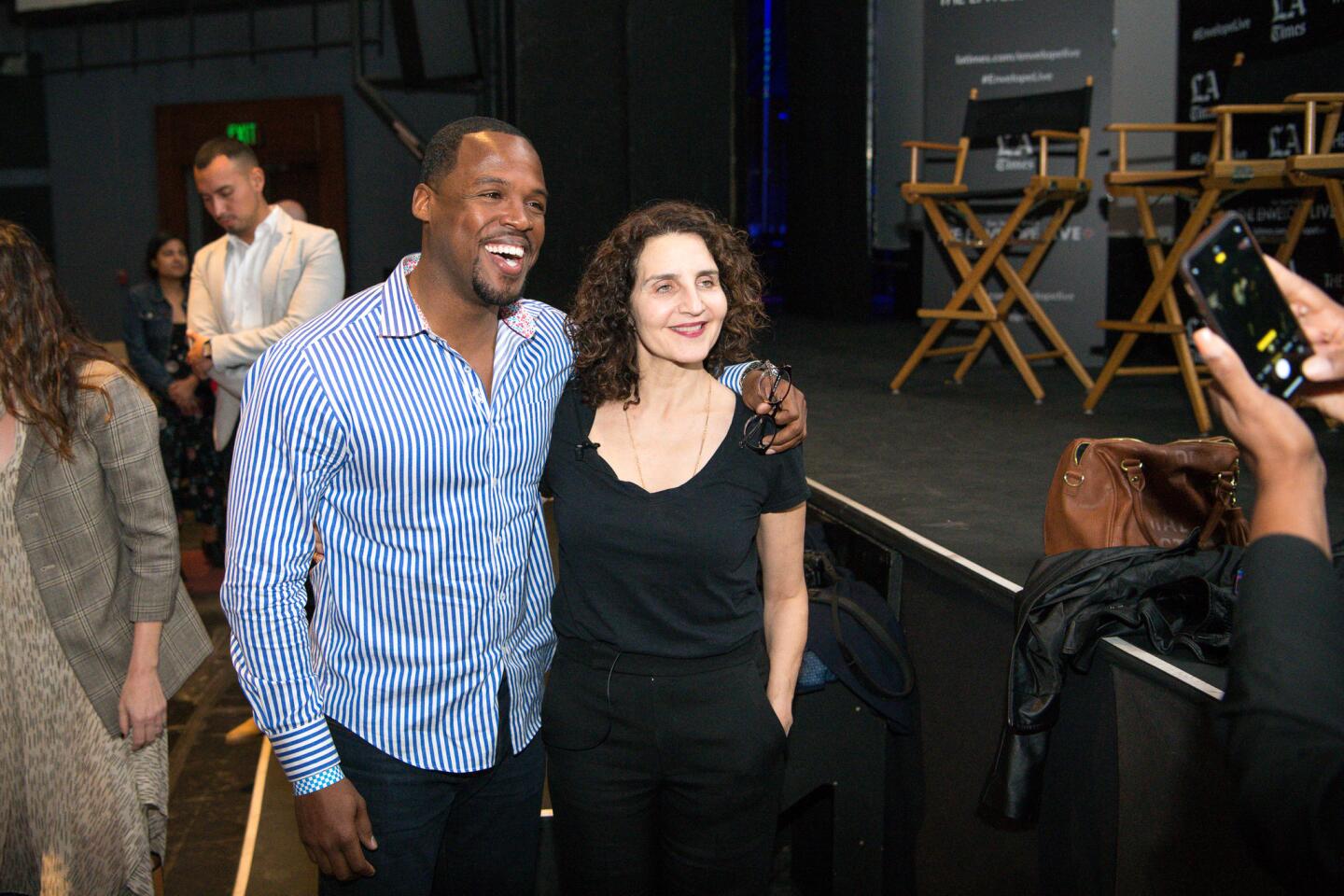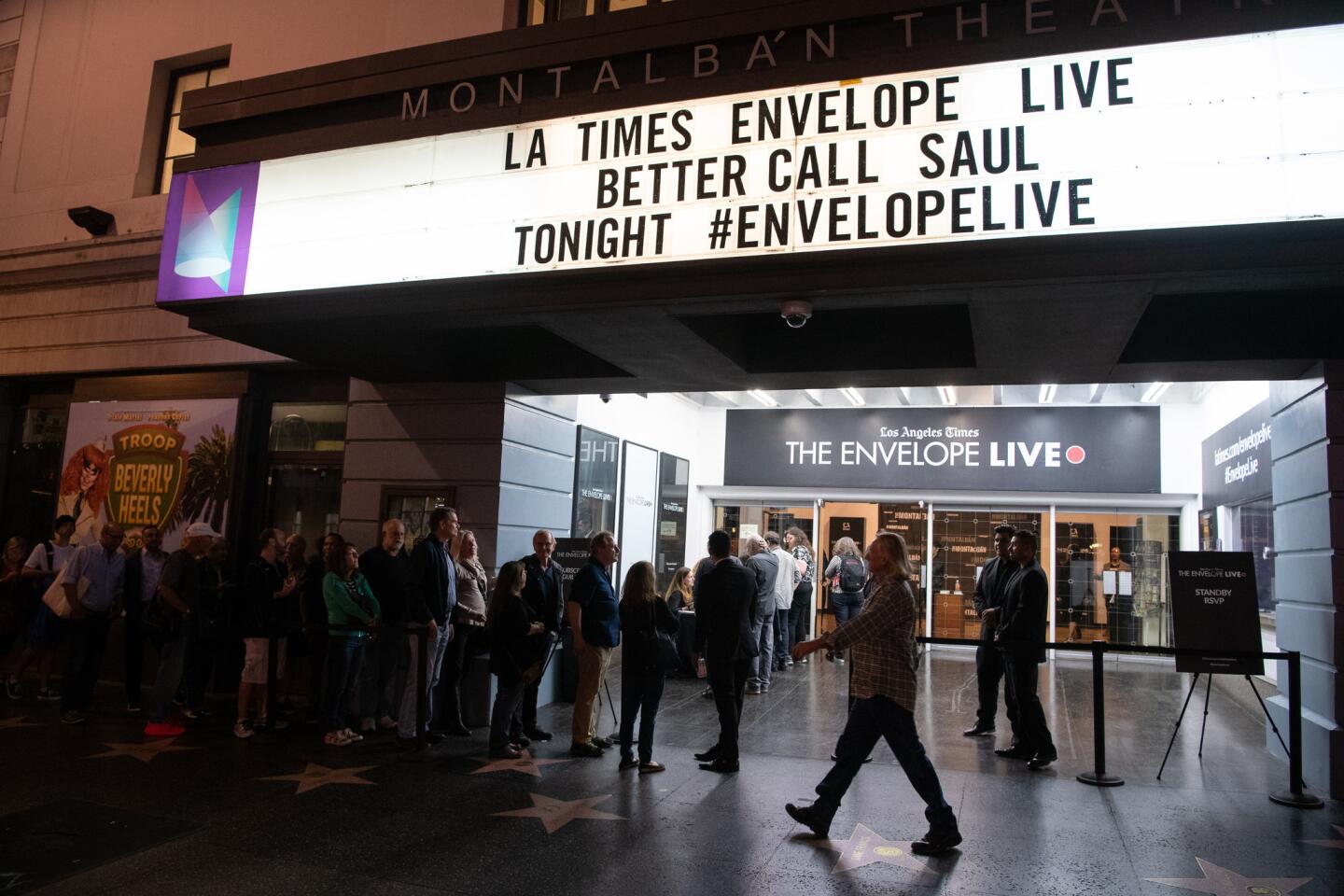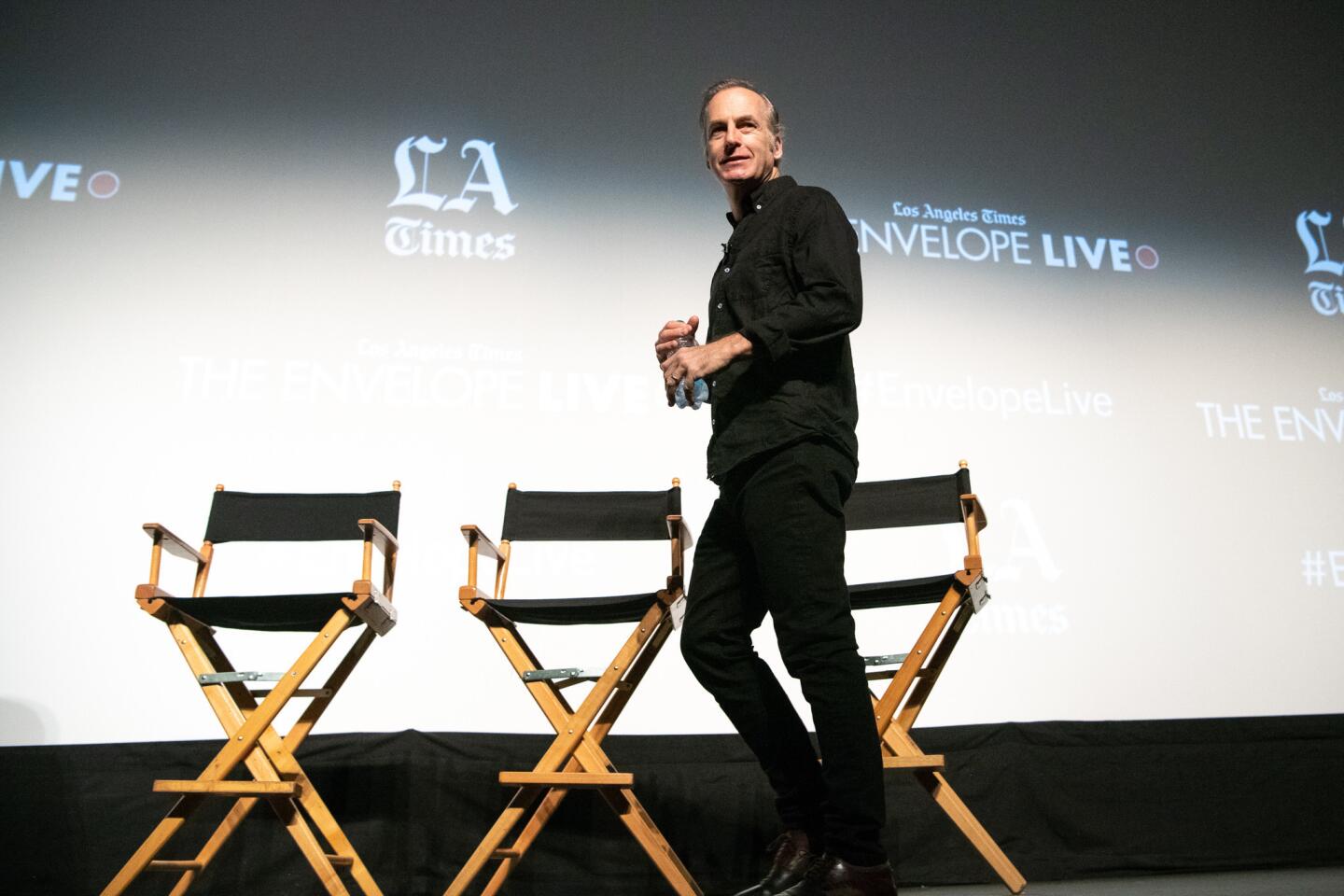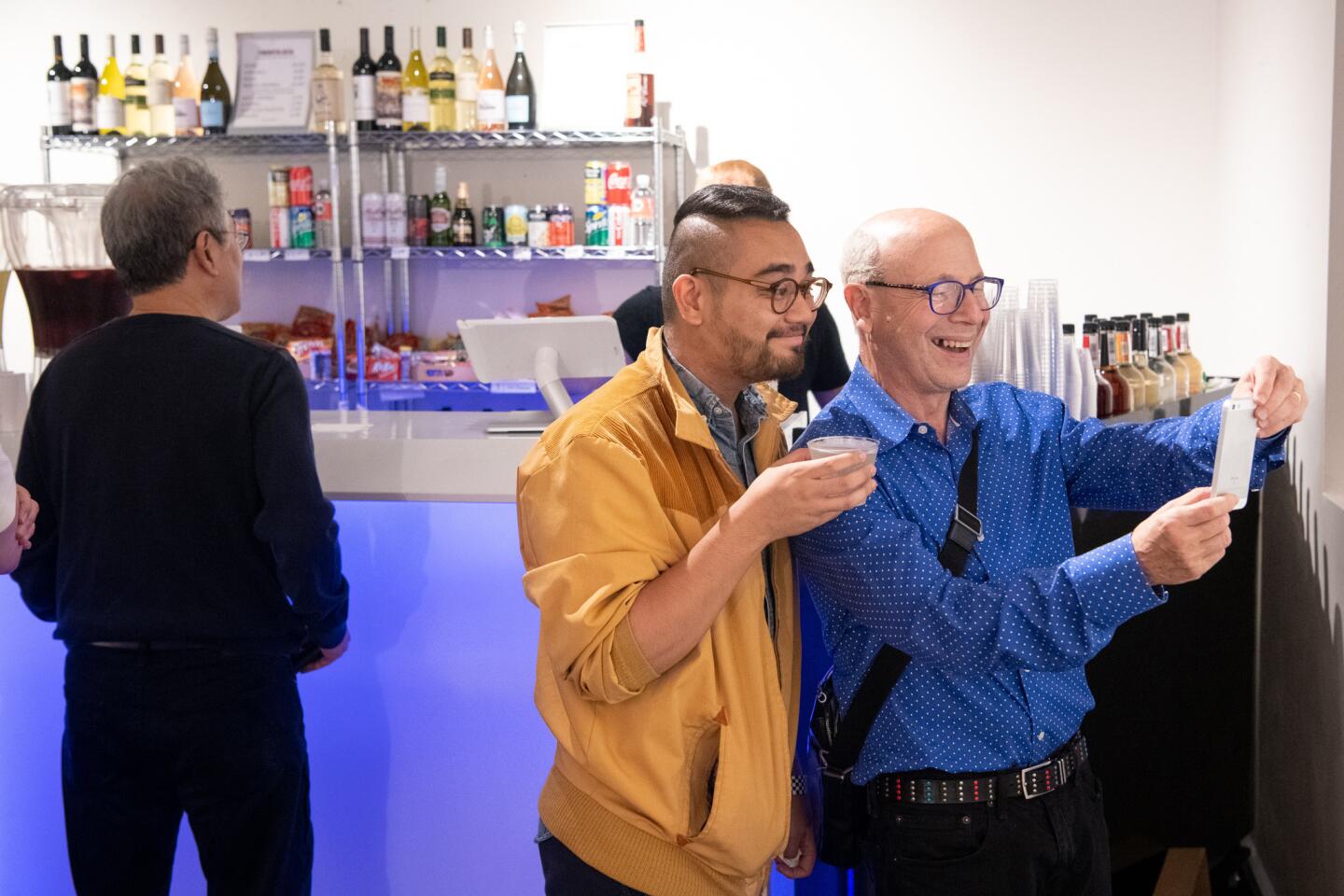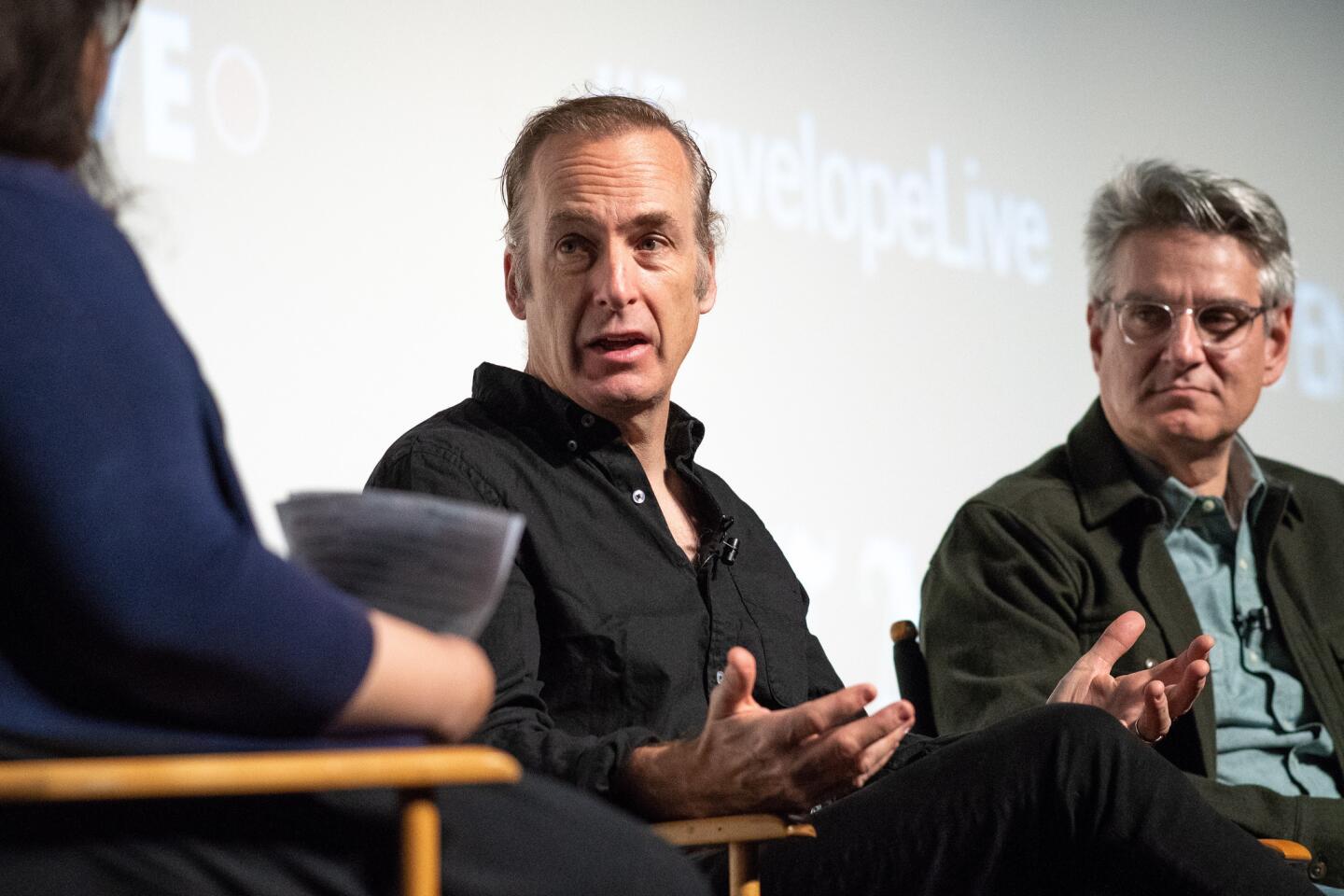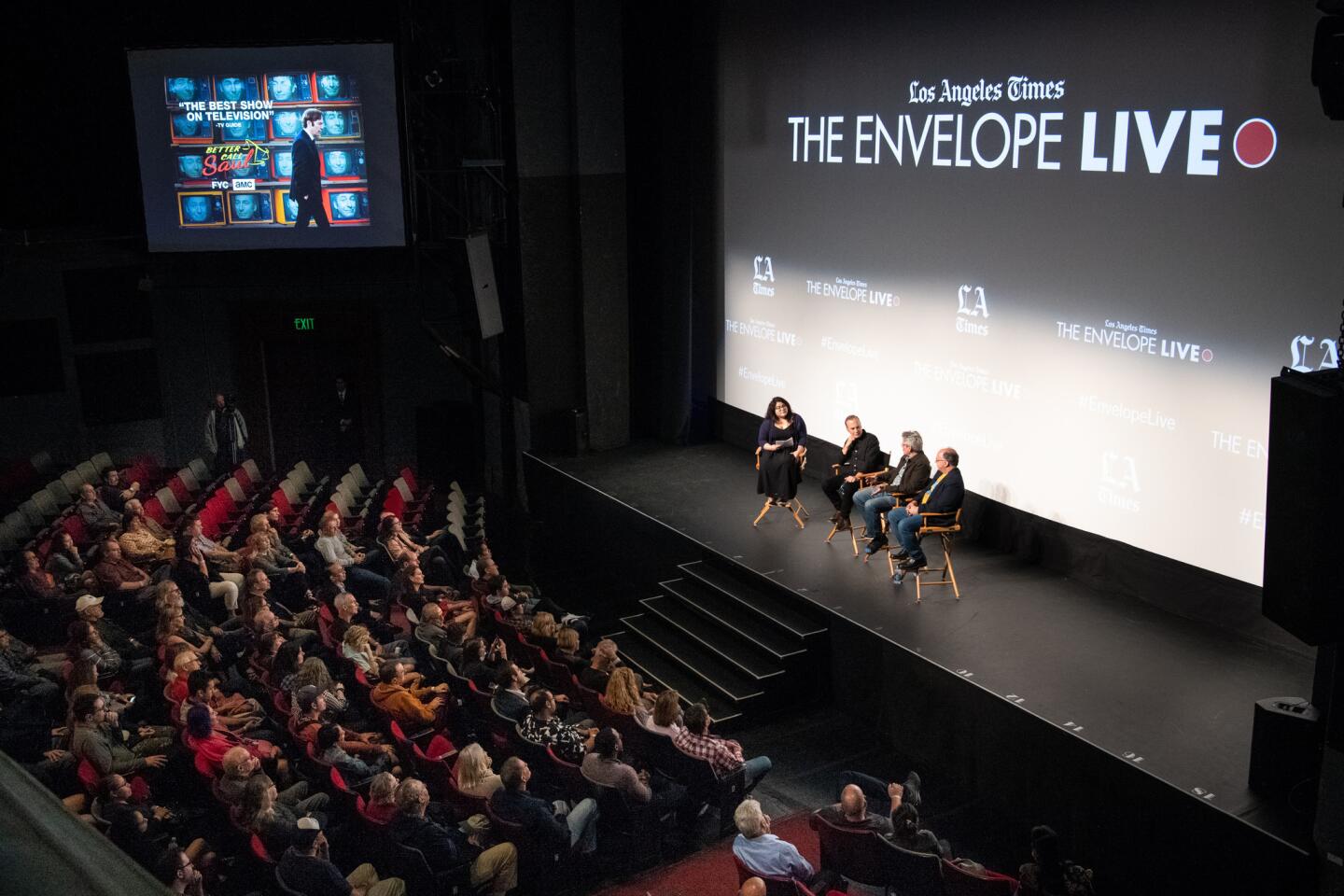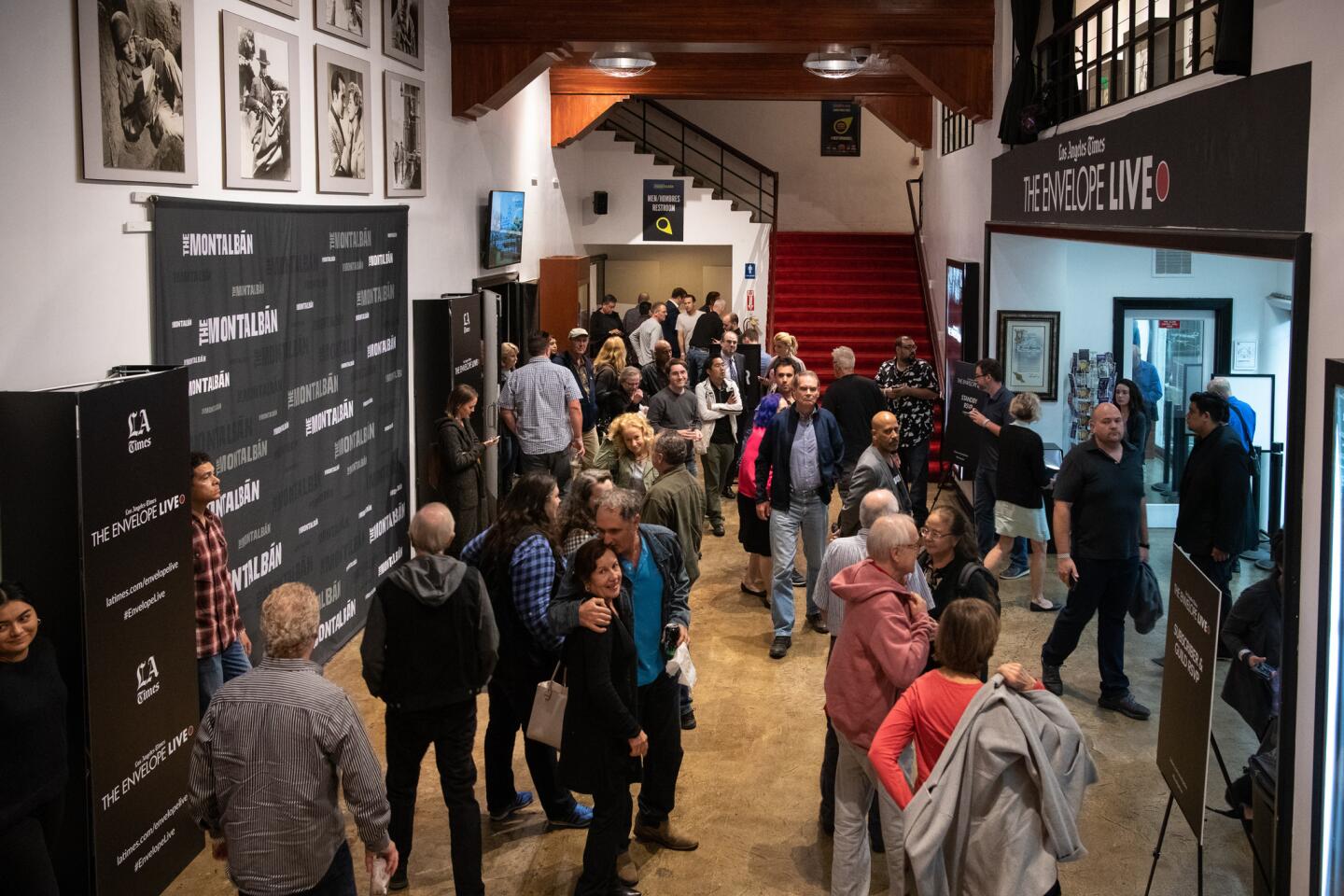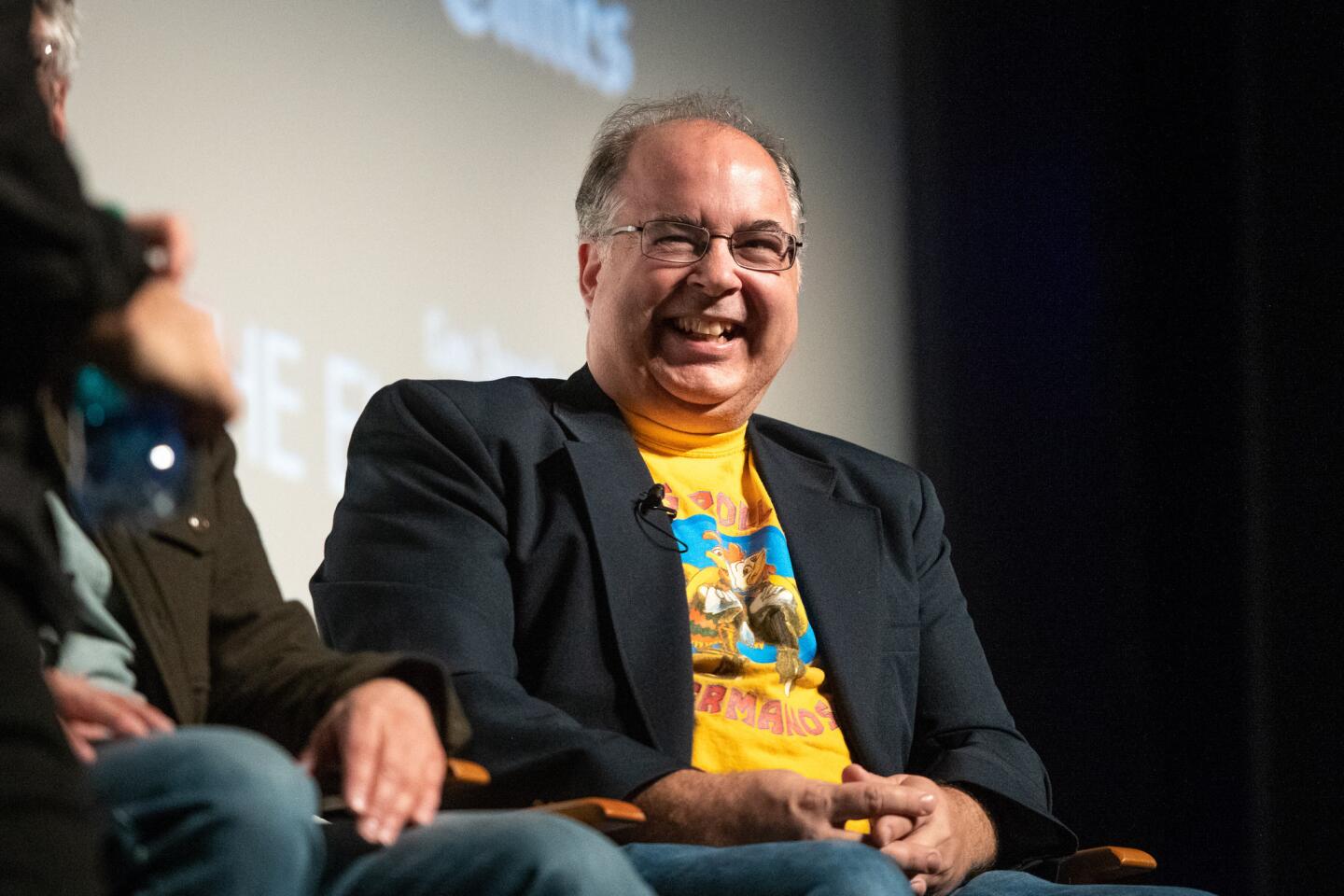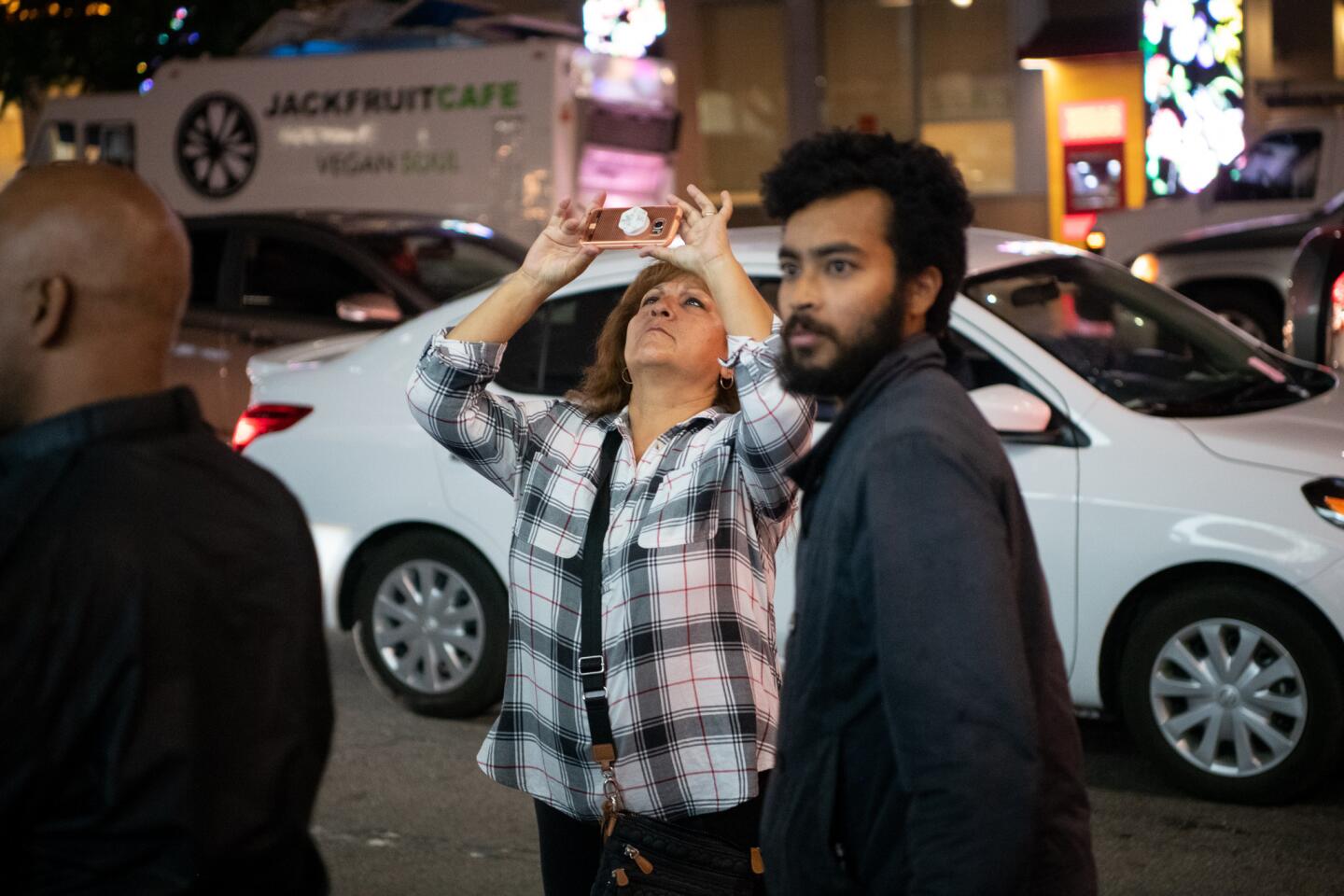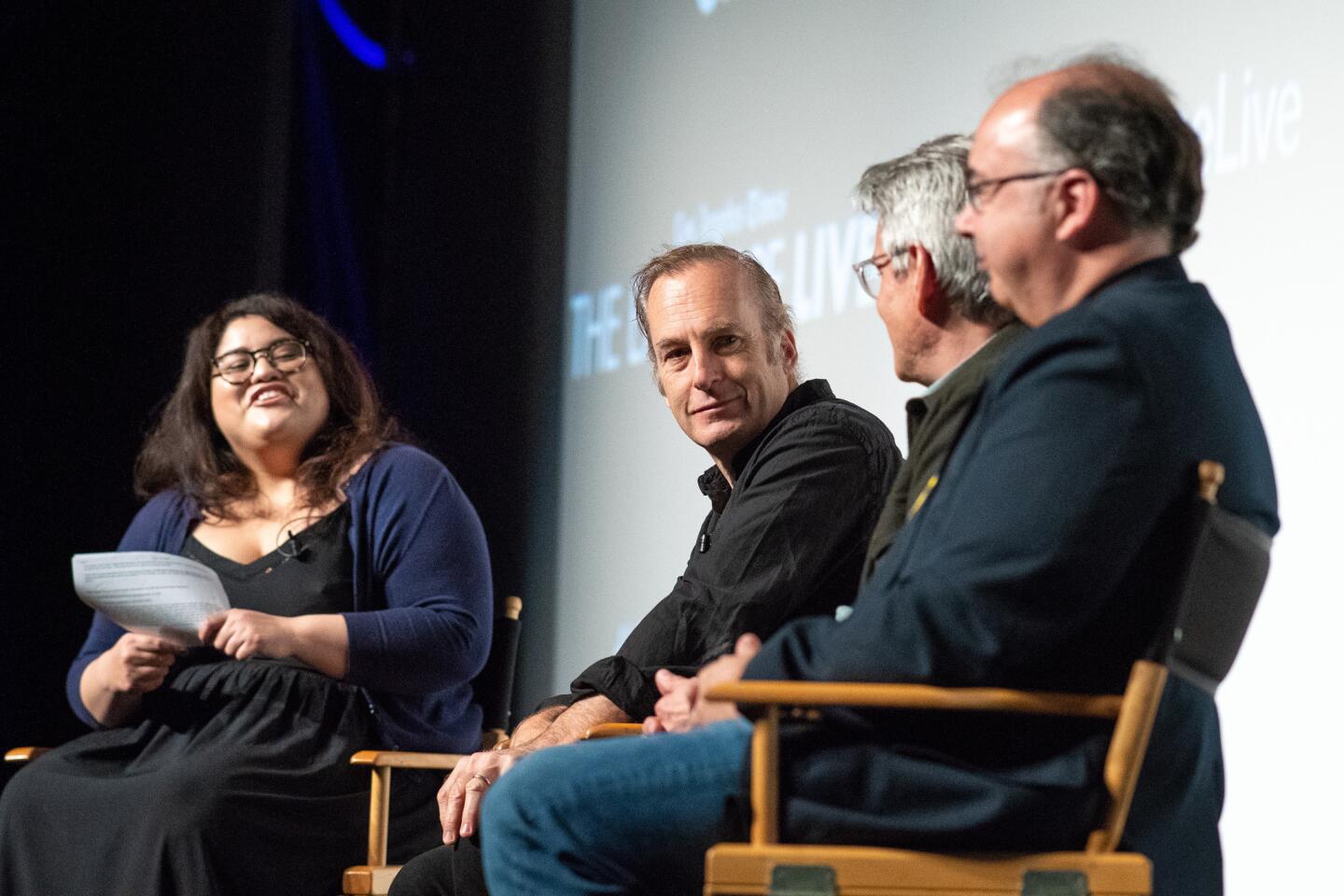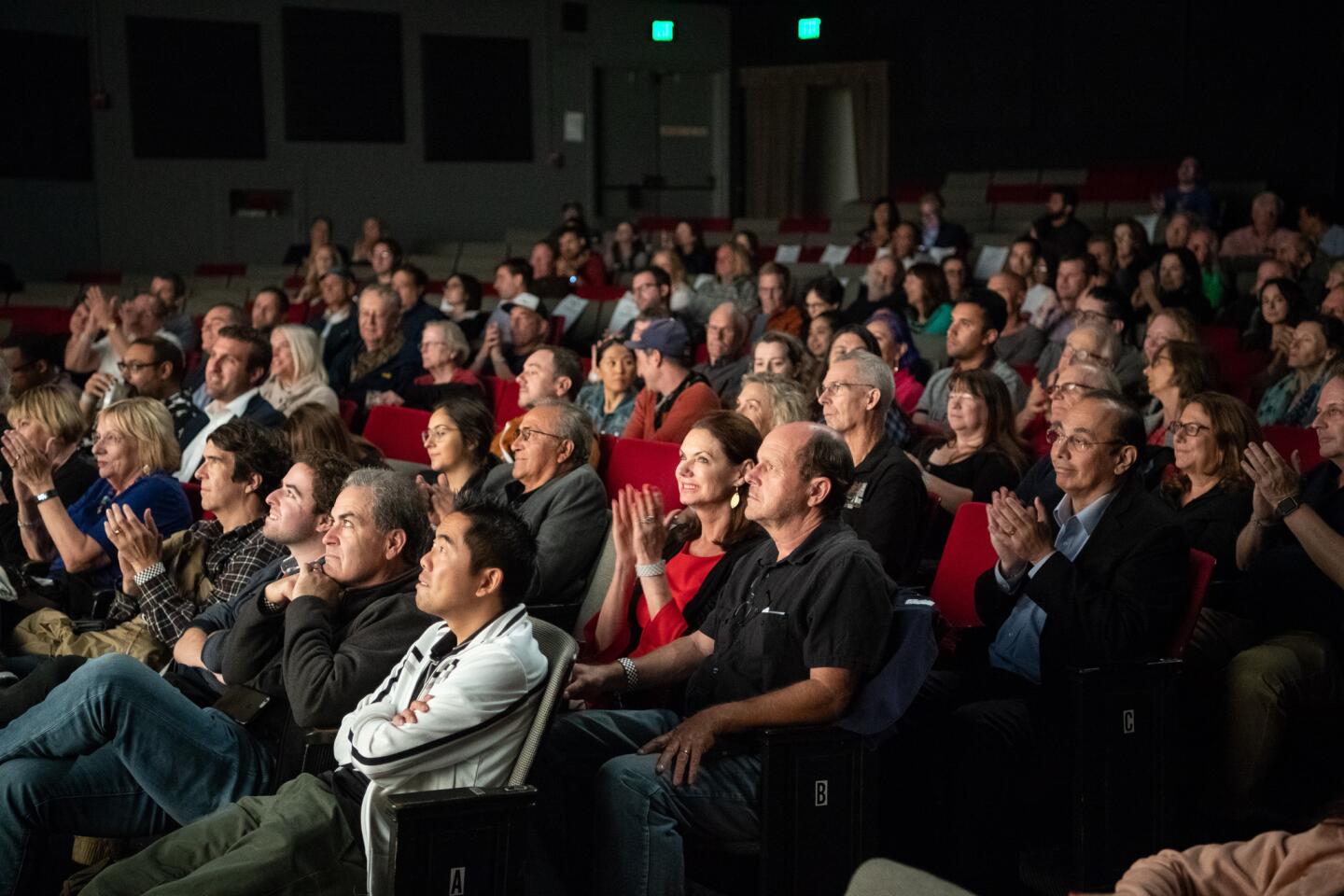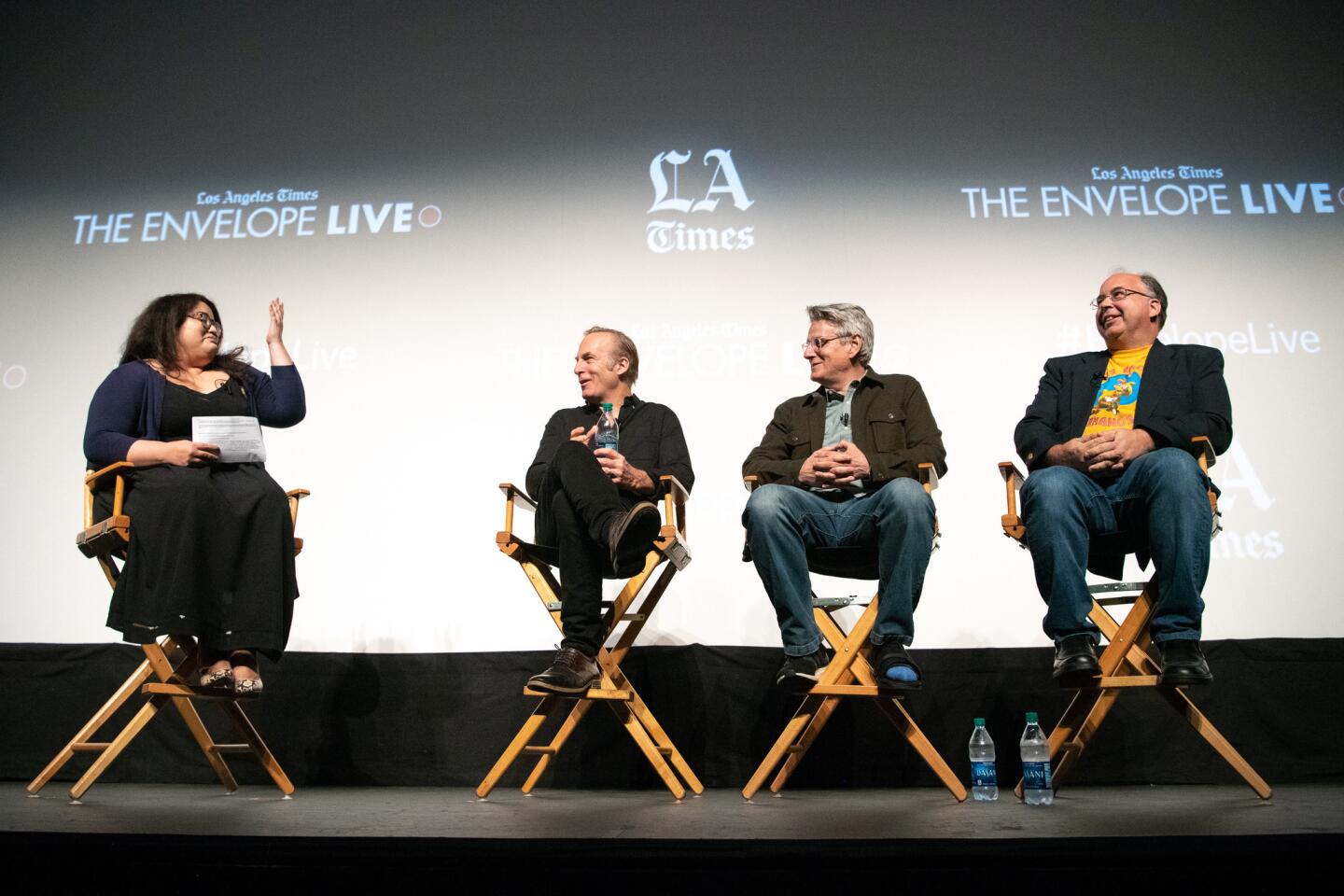The Lebanese drama “Capernaum” made waves at the Cannes Film Festival earlier this year when it opened to a lengthy standing ovation, was selected to compete for the Palme d’Or, and ultimately won the grand jury prize.
But unlike so many of the drama entries at the renowned film festival, “Capernaum” is unique in that it features a group of first-time actors. However, director Nadine Labaki said she wouldn’t have had it any another way.
“It was not even a choice,” she said at an Envelope Live screening of the film on Nov. 14. “It was, from the start, something that was imposed on me because I know how much the film can have a completely different impact on you when you know that you’re watching a real struggle on that big screen. You’re watching people who are really almost feeling the same circumstance and having the same struggle in their own life.”
Labaki was joined at the screening, held at the Montalban in Hollywood, by her husband, producer Khaled Mouzanar, and actor Zain Al Rafeea.
The last talked about tapping into his own experiences as a refugee leaving in Lebanon for the role — specifically for his dialogue in the film.
“It’s a mixture of what Nadine wanted me to say and also things that I invented myself,” he said.
“It was a real collaboration between what was written and also things that he would add from his own experience. Some of the things he said were really things that he experienced,” added Labaki. “Being in those very difficult neighborhoods, he’s seen a lot of things happening to other children.”
Envelope Live 2018: ‘Better Call Saul,’ ‘Private Life’ and more »
It wasn’t just Al Rafeea who had a personal stake in the project. Mouzanar explained that he had to take a mortgage on his and Labaki’s home and also delay payments for his son’s school in order to fund the film.
“Through the whole process we were feeling that we were working on something bigger than us,” he said. “We were carrying a bigger message, something very important.”
He explained he also had to keep the issues with his son’s tuition payments a secret from his wife. “So it was a very stressful process but the belief was always there,” he said.
Those extra sacrifices made the process of filming “a life-changing experience,” in the words of Labaki.
Thankfully, come festival season, it all paid off when the film opened to rave reviews and won the grand jury prize at Cannes in May.
“It’s also a victory for those actors who really, a week before they went to Cannes, almost all of them didn’t any papers to prove that they even exist in this life,” she explained. “They are struggling everyday to just get the most basic rights just to eat and drink and have their basics so it’s for them all of a sudden they are not only in Cannes but they are loved and appreciated by so many people.”
And that was just the beginning, according to Labaki. When discussing the film’s final scene, she elaborated on how the actors’ lives, specifically Al Rafeea’s, have changed since the film opened.
“Finally, he has a Norwegian passport. He’s resettled in Norway. He’s been there for the past three, four months. He’s going to school for the first time in his life. He’s learning how to read and write. He’s regained his childhood. He’s playing in a garden; he’s not playing anymore with knives and in garbage. He’s playing with reindeer in the forest,” she explained.
“This smile has a completely different meaning to me now.”
For more information on future Envelope Live screenings and events, click here.
1/99
“Vice” was the subject of an L.A. Times Envelope Live screening and Q&A at the Montalbán in Hollywood.
(Ana Venegas / For The Times) 2/99
An exhibit hangs in the mezzanine gallery at the the Montalbán in Hollywood, where “Vice” was screened at an L.A. Times Envelope Live event.
(Ana Venegas / For The Times) 3/99
Christian Bale as Dick Cheney shows onscreen as “Vice” is shown at the L.A. Times Envelope Live screening in Hollywood.
(Ana Venegas / For The Times) 4/99
L.A. Times awards columnist Glenn Whipp takes the stage to introduce the director and editor of “Vice” at the movie’s L.A. Times Envelope Live screening.
(Ana Venegas / For The Times) 5/99
“Vice” director Adam McKay makes a point in the Q&A session following the screening of the movie at an L.A. Times Envelope Live event at the Montalbán in Hollywood.
(Ana Venegas / For The Times) 6/99
“Vice” editor Hank Corwin talks with his hands during the Q&A session following the screening of the movie.
(Ana Venegas / For The Times) 7/99
L.A. Times columnist Glenn Whipp, left, moderates a discussion about “Vice” after it screens, chatting with director Adam McKay and editor Hank Corwin in Hollywood.
(Ana Venegas / For The Times) 8/99
A downpour didn’t stop Charlie Bennett from attending the L.A. Times Envelope Live screening of “BlacKkKlansman” at the Montalbán in Hollywood.
(Ana Venegas / For The Times) 9/99
Director Spike Lee, right, arrives to the L.A. Times Envelope Live screening of “BlacKkKlansman” in Hollywood.
(Ana Venegas / For The Times) 10/99
Attendees check in at the L.A. Times Envelope Live screening of “BlacKkKlansman” in Hollywood.
(Ana Venegas / For The Times) 11/99
Spike Lee and editor Barry Alexander Brown catch up in the green room before the Q&A for “BlacKkKlansman.”
(Ana Venegas / For The Times) 12/99
Popcorn was served up at the “BlacKkKlansman” screening in Hollywood.
(Ana Venegas / For The Times) 13/99
“BlacKkKlansman” screens at the L.A. Times Envelope Live event at the Montalbán in Hollywood.
(Ana Venegas / For The Times) 14/99
Director Spike Lee and editor Barry Alexander Brown talk about “BlacKkKlansman” at a Q&A at the L.A. Times Envelope Live screening at the Montalbán in Hollywood.
(Ana Venegas / For The Times) 15/99
Director Spike Lee and editor Barry Alexander Brown talk about “BlacKkKlansman” at a Q&A at the LA Times Envelope Live screening.
(Ana Venegas / For The Times) 16/99
Phil Lord, writer and producer of “Spider-Man: Into The Spider-Verse,” meets a fan at the Montalbán in Hollywood.
(Ana Venegas / For The Times) 17/99
A line formed for “Spider-Man: Into The Spider-Verse” at the L.A. Times Envelope Live screening at the Montalbán in Hollywood.
(Ana Venegas / For The Times) 18/99
The audience watches “Spider-Man: Into The Spider-Verse” at it’s L.A. Times Envelope Live screening at the Montalbán.
(Ana Venegas / For The Times) 19/99
“Spider-Man: Into The Spider-Verse” attracted a full house at its L.A. Times Envelope Live screening at the Montalbán.
(Ana Venegas / For The Times) 20/99
Bob Persichetti listens at the Q&A for “Spider-Man: Into the Spider-Verse” at the L.A. Times Envelope Live screening.
(Ana Venegas / For The Times) 21/99
Chris Miller was part of the creation of “Spider-Man: Into The Spider-Verse.” The movie screened as part of L.A. Times Envelope Live at the Montalbán in Hollywood.
(Ana Venegas / For The Times) 22/99
Rodney Rothman talks about the creation of “Spider-Man: Into The Spider-Verse” at the L.A. Times Envelope Live screening at the Montalbán in Hollywood.
(Ana Venegas / For The Times) 23/99
Peter Ramsey, center, one of the directors of “Spider-Man: Into The Spider-Verse,” speaks at the movie’s L.A. Times Envelope Live screening in Hollywood.
(Ana Venegas / For The Times) 24/99
The marquee outside of the L.A. Times Envelope Live screening of “Won’t You Be My Neighbor?,” with a Q&A moderated by Los Angeles Times writer Lorraine Ali to follow with director Morgan Neville.
(Ringo H.W. Chiu / For The Times) 25/99
Fans take photos at the L.A. Times Envelope Live screening of “Won’t You Be My Neighbor?”
(Ringo H.W. Chiu / For The Times) 26/99
At the L.A. Times Envelope Live screening of the documentary “Won’t You Be My Neighbor?,” director Morgan Neville sits down for a moderated chat with L.A. Times writer Lorraine Ali.
(Ringo H.W. Chiu / For The Times) 27/99
Moderator Lorraine Ali of the Los Angeles Times questions “Won’t You Be My Neighbor?” director Morgan Neville at the L.A. Times Envelope Live screeening of the movie.
(Ringo H.W. Chiu / For The Times) 28/99
“Won’t You Be My Neighbor?” director Morgan Neville smiles at a Q&A moderated by Los Angeles Times writer Lorraine Ali.
(Ringo H.W. Chiu / For The Times) 29/99
Director Morgan Neville chats with onlookers at the L.A. Times Envelope Live screening of the documentary “Won’t You Be My Neighbor?”
(Ringo H.W. Chiu / For The Times) 30/99
Los Angeles Times writer Mark Olsen, left, discusses “The Hate U Give” with actors Regina Hall, Amandla Stenberg and director George Tillman Jr. at an Envelope Live screening at the Montalbán.
(Michael Owen Baker / For The Times) 31/99
Actor Amandla Stenberg discusses “The Hate U Give” at an Envelope Live screening.
(Michael Owen Baker / For The Times) 32/99
Director George Tillman Jr. discusses “The Hate U Give.”
(Michael Owen Baker / For The Times) 33/99
Actors Regina Hall, left, Amandla Stenberg and director George Tillman Jr. at The Envelope Live’s presentation of “The Hate U Give.”
(Michael Owen Baker / For The Times) 34/99
Actor Amandla Stenberg, center, takes a picture with a fan at the Los Angeles Times Envelope Live screening of “The Hate U Give” at the Montalbán.
(Michael Owen Baker / For The Times) 35/99
Actor Regina Hall, center, talks with attendees at the Los Angeles Times Envelope Live screening of “The Hate U Give.”
(Michael Owen Baker / For The Times) 36/99
The marquee for the Los Angeles Times Envelope Live’s “Rise of the Documentary” panel at The Montalbán.
(Michael Owen Baker / For The Times) 37/99
Los Angeles Times writer Amy Kaufman moderates a “Rise of the Documentary” discussion with documentary directors Elizabeth Chai Vasarhelyi (“Free Solo”), left, Tim Wardle (“Three Identical Strangers”), Betsy West (“RBG”), Morgan Neville (“Won’t You Be My Neighbor”) and Sandi Tan (“Shirkers”) during a Los Angeles Times Envelope Live event at The Montalbán.
(Michael Owen Baker / For The Times) 38/99
“Won’t You Be My Neighbor” director Morgan Neville discusses his, and other, documentaries during a Los Angeles Times Envelope Live event at The Montalbán.
(Michael Owen Baker / For The Times) 39/99
Director Sandi Tan (“Shirkers”) discusses the “Rise of the Documentary” during a Los Angeles Times Envelope Live event at The Montalbán.
(Michael Owen Baker / For The Times) 40/99
Director Tim Wardle of “Three Identical Strangers” discusses with other documentarians the “Rise of the Documentary” during a Los Angeles Times Envelope Live event.
(Michael Owen Baker / For The Times) 41/99
“Free Solo” director Elizabeth Chai Vasarhelyi talks during the “Rise of the Documentary” panel during a Los Angeles Times Envelope Live event.
(Michael Owen Baker / For The Times) 42/99
The director of “RBG,” Betsy West, takes part in a panel -- “Rise of the Documentary” -- during a Los Angeles Times Envelope Live event at The Montalbán.
(Michael Owen Baker / For The Times) 43/99
“Free Solo” director Elizabeth Chai Vasarhelyi, center, talks with attendees at a reception following “Rise of the Documentary” at a Los Angeles Times Envelope Live event.
(Michael Owen Baker / For The Times) 44/99
“Three Identical Strangers” director Tim Wardle, center, talks with attendees at a reception following the “Rise of the Documentary” panel.
(Michael Owen Baker / For The Times) 45/99
At the Los Angeles Times Envelope Live screening of “Science Fair,” following the “Rise of the Documentaries” panel at The Montalbán.
(Michael Owen Baker / For The Times) 46/99
Directors Darren Foster, left, Cristina Constantini, actor Robbie Barrat, Ava DuVernay and actor Serena McCalla at the Los Angeles Times Envelope Live screening of “Science Fair” at The Montalbán.
(Michael Owen Baker / For The Times) 47/99
A fan of the film, director Ava DuVernay introduces “Science Fair” at Los Angeles Times Envelope Live screening at The Montalbán.
(Michael Owen Baker / For The Times) 48/99
Closer on Ava DuVernay, who is introducing a screening of “Science Fair” at Los Angeles Times Envelope Live.
(Michael Owen Baker / For The Times) 49/99
Directors Cristina Constantin and Darren Fosteri stand on stage at the Los Angeles Times Envelope Live screening of “Science Fair” at The Montalbán.
(Michael Owen Baker / For The Times) 50/99
Los Angeles Times writer Chris Barton, left, directors Darren Foster, Cristina Constantini, actors Serena McCalla and Robbie Barrat discuss “Science Fair.”
(Michael Owen Baker / For The Times) 51/99
Director Darren Foster looks out at the crowd during the q&a session at the Los Angeles Times Envelope Live screening of “Science Fair” at The Montalbán.
(Michael Owen Baker / For The Times) 52/99
Actor Robbie Barrat makes a point at the Los Angeles Times Envelope Live screening of “Science Fair.”
(Michael Owen Baker / For The Times) 53/99
Director Cristina Constantini listens while onstage at the Los Angeles Times Envelope Live screening of “Science Fair.”
(Michael Owen Baker / For The Times) 54/99
Teacher/actor Serena McCalla smiles during he q&a seession at the Los Angeles Times Envelope Live screening of “Science Fair.”
(Michael Owen Baker / For The Times) 55/99
Los Angeles Times writer Chris Barton, left, poses a question to the assembled panel including directors Darren Foster and Cristina Constantini, and actors Serena McCalla and Robbie Barrat while discussing “Science Fair” during a Los Angeles Times Envelope Live screening.
(Michael Owen Baker / For The Times) 56/99
Los Angeles Times writer Chris Barton, left, directors Darren Foster and Cristina Constantini discuss “Science Fair.”
(Michael Owen Baker / For The Times) 57/99
Los Angeles Times writer Chris Barton, left, directors Darren Foster, Cristina Constantini, actors Serena McCalla and Robbie Barrat pose onstage at the Los Angeles Times Envelope Live screening of “Science Fair” at The Montalbán.
(Michael Owen Baker / For The Times) 58/99
L.A. Times Envelope Live screening of “Dirty John” at The Montalbán.
(Michael Owen Baker / For The Times) 59/99
Free “Dirty John” books for attendees at L.A. Times Envelope Live screening of “Dirty John” at The Montalbán.
(Michael Owen Baker / For The Times) 60/99
Free “Dirty John” books are given to attendees at the L.A. Times Envelope Live screening of “Dirty John” at The Montalbán.
(Michael Owen Baker / For The Times) 61/99
Actor Connie Britton at the Envelope Live screening of “Dirty John” at The Montalbán.
(Michael Owen Baker / For The Times) 62/99
Actors Connie Britton, left, and Julia Garner at the L.A. Times Envelope Live screening of “Dirty John” at The Montalbán.
(Michael Owen Baker / For The Times) 63/99
Director Jeffery Reiner, right, at the Envelope Live screening of “Dirty John” at The Montalbán.
(Michael Owen Baker / For The Times) 64/99
Los Angeles Times writer Christopher Goffard, from left, moderates a discussion with actors Connie Britton, Julia Garner, showrunner Alexandra Cunningham, executive producer Richard Suckle and director Jeffery Reiner at the L.A. Times Envelope Live screening of “Dirty John” at The Montalbán.
(Michael Owen Baker / For The Times) 65/99
Los Angeles Times writer Christopher Goffard, from left, moderates a discussion with actors Connie Britton, Julia Garner, showrunner Alexandra Cunningham, executive producer Richard Suckle and director Jeffery Reiner at the Envelope Live screening of “Dirty John” at The Montalbán.
(Michael Owen Baker / For The Times) 66/99
Attendees arrive for the Envelope Live screening of “The Kindergarten Teacher” at the Montalban in Los Angeles.
(Patrick T. Fallon / For The Times) 67/99
Reporter Glenn Whipp speaks during the Envelope Live screening of “The Kindergarten Teacher.”
(Patrick T. Fallon / For The Times) 68/99
Actress Maggie Gyllenhaal speaks with reporter Glenn Whipp during the Envelope Live screening of “The Kindergarten Teacher” at the Montalbán in Los Angeles.
(Patrick T. Fallon / For The Times) 69/99
Actress Maggie Gyllenhaal speaks during the Envelope Live screening of “The Kindergarten Teacher.”
(Patrick T. Fallon / For The Times) 70/99
Actress Maggie Gyllenhaal speaks with reporter Glenn Whipp during the Envelope Live screening of “The Kindergarten Teacher” at the Montalbán in Los Angeles.
(Patrick T. Fallon / For The Times) 71/99
Director Markus Imhoof attends the LA Times Envelope Live screening of his movie “El Dorado” at the Montalbán.
(Ana Venegas / For The Times) 72/99
Los Angeles Times critic Lorraine Ali, left, director Markus Imhoof and Muna Sharif of Amnesty International at the LA Times Envelope Live screening for “El Dorado.”
(Ana Venegas / For The Times) 73/99
Director Markus Imhoof attended the LA Times Envelope Live screening of his movie “El Dorado.”
(Ana Venegas / For The Times) 74/99
Director Markus Imhoof, center, in a Q&A for his movie “El Dorado” with Los Angles Times critic Lorraine Ali, left, and Muna Sharif at the LA Times Envelope Live screening.
(Ana Venegas / For The Times) 75/99
Muna Sharif, a field organizer with Amnesty International, in a Q&A for “El Dorado.”
(Ana Venegas / For The Times) 76/99
Actor Zain Al Refeea, right, poses for photos at the “Capernaum” screening.
(Ana Venegas / For The Times) 77/99
Actor Zain Al Rafeea at the Envelope Live screening of “Capernaum.”
(Ana Venegas / For The Times) 78/99
Times reporter Mark Olsen, left, discusses “Capernaum” with director Nadine Labaki, actor Zain Al Rafeea and producer Khaled Mouzanar at an Envelope Live screening of the movie.
(Ana Venegas / For The Times) 79/99
Director Nadine Labaki discusses “Capernaum” at the movie’s Envelope Live screening.
(Ana Venegas / For The Times) 80/99
Producer Khaled Mouzanar discusses “Capernaum” at the L.A. Times Envelope Live screening of the movie at The Montalban.
(Ana Venegas / For The Times) 81/99
Los Angeles Times film critic Justin Chang, left, moderates a discussion with writer-director-producer Tamara Jenkins and actress Kathryn Hahn at The Times’ Envelope Live screening of “Private Life.”
(Michael Owen Baker / For The Times) 82/99
Writer-director-producer Tamara Jenkins at the Envelope Live screening of “Private Life.”
(Michael Owen Baker / For The Times) 83/99
Actress Kathryn Hahn, right, writer-director-producer Tamara Jenkins and Times film critic Justin Chang discuss “Private Life” at the L.A. Times Envelope Live screening of the film.
(Michael Owen Baker / For The Times) 84/99
Times film critic Justin Chang, left, writer-director-producer Tamara Jenkins and actress Kathryn Hahn have a hearty laugh during their discusion of “Private Life.”
(Michael Owen Baker / For The Times) 85/99
Writer-director-producer Tamara Jenkins, center, gets into the conversation with Times film critic Justin Chang and actress Kathryn Hahn at The Times’ Envelope Live screening of “Private Life” at the Montalban.
(Michael Owen Baker / For The Times) 86/99
Times film critic Justin Chang, left, moderates a discussion with writer-director-producer Tamara Jenkins and actress Kathryn Hahn at The Times’ Envelope Live screening of “Private Life.”
(Michael Owen Baker / For The Times) 87/99
Actress Kathryn Hahn, left, greets fans at the L.A. Times Envelope Live screening of “Private Life.”
(Michael Owen Baker / For The Times) 88/99
Writer-director-producer Tamara Jenkins pauses for a photo with a fan at the L.A. Times Envelope Live screening of “Private Life.”
(Michael Owen Baker / For The Times) 89/99
The L.A. Times Envelope Live screened “Better Call Saul” at the Montalban in Hollywood.
(Michael Owen Baker / For The Times) 90/99
Bob Odenkirk takes the stage at the L.A. Times Envelope Live screening of “Better Call Saul.”
(Michael Owen Baker / For The Times) 91/99
Audience members take a selfie at the L.A. Times Envelope Live screening of “Better Call Saul” at the Montalban.
(Michael Owen Baker / For The Times) 92/99
“Better Call Saul” actor Bob Odenkirk with co-creator/executive producer Peter Gould at the L.A. Times Envelope Live screening.
(Michael Owen Baker / For The Times) 93/99
Los Angeles Times reporter Yvonne Villarreal moderates a discussion at the L.A. Times Envelope Live screening of “Better Call Saul” with actor Bob Odenkirk, co-creator/executive producer Peter Gould and writer/executive producer Thomas Schnauz.
(Michael Owen Baker / For The Times) 94/99
The lobby at the L.A. Times Envelope Live screening of “Better Call Saul” at the Montalban.
(Michael Owen Baker / For The Times) 95/99
“Better Call Saul” writer/executive producer Thomas Schnauz takes part in a discussion following the L.A. Times Envelope Live screening of the Season 4 finale.
(Michael Owen Baker / For The Times) 96/99
A woman takes a photo outside the L.A. Times Envelope Live screening of “Better Call Saul” at the Montalban.
(Michael Owen Baker / For The Times) 97/99
Los Angeles Times reporter Yvonne Villarreal moderates a discussion for “Better Call Saul” with actor Bob Odenkirk, co-creator/executive producer Peter Gould and writer/executive producer Thomas Schnauz as part of The Envelope Live.
(Michael Owen Baker / For The Times) 98/99
Audience members react to the panel at the L.A. Times Envelope Live screening of “Better Call Saul” at the Montalban.
(Michael Owen Baker / For The Times) 99/99
Los Angeles Times reporter Yvonne Villarreal moderates a discussion about “Better Call Saul” with actor Bob Odenkirk, co-creator/executive producer Peter Gould and writer/executive producer Thomas Schnauz for The Envelope Live.
(Michael Owen Baker / For The Times) 